Mar 22, 2017 | Senza categoria
STREAMING by Česká Televize – Cardinal Dominik Duka OP, Archbishop of Prague, relatives and friends of the Focolare Movement, announce that the funeral of Cardinal Miloslav Vlk will be held Saturday, March 25, at 11.00 am, in the Cathedral of Saints Vitus, Wenceslaus and Adalbert in Prague. He will be buried in the Archbishops’ tomb in the Cathedral. Miloslav Vlk, Archbishop Emeritus of Prague and Primate Emeritus of Bohemia, is the 62nd successor of Saint Adalbert and in the 35th Archbishop of Prague.
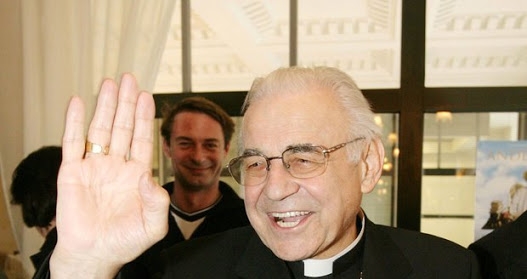
Mar 21, 2017 | Non categorizzato
 “A precious gift,” a “strong witness of the Charism of unity,” and “a Word really lived,” was how Maria Voce, President of the Focolare Movement spoke of Cardinal Miloslav Vlk, who passed away on Saturday, 16 March in Prague. In a communication to all the members of the Movement, Maria Voce highlighted the “edifying” way in which Vlk lived the last period of his life, marked by a great weakening but at the same time by “a continuous attitude of gratitude to God for the gifts he had received from Him.” She underlined the “very deep bond” the Cardinal had with the Focolare Movement “since the start of his clandestine ministry in the time when Czechoslovakia was under the communist regime.” She expressed immense gratitude for his commitment and devotion with which for 18 years, he carried out his role as moderator of the group of Bishops who declare themselves “friends of the Movement,” activities he followed with great interest and participation even from the hospital. Maria Voce denoted that Cardinal Miloslav was “surrounded by prayers of the Diocesan community, members of the Movement, friends of other Christian denominations, and both Jews and Muslims with whom he had undertaken years of dialogue.” She also cited the “many testimonials of his example of humility, communion and evangelical wisdom, which underlined the way he made himself simply a “brother” to all, and also his authority as a “father” who was able to give enthusiasm and motivate those around him.” “We have a great heritage before us,” Maria Voce concluded, and it is “A heritage to treasure and discover more deeply.”
“A precious gift,” a “strong witness of the Charism of unity,” and “a Word really lived,” was how Maria Voce, President of the Focolare Movement spoke of Cardinal Miloslav Vlk, who passed away on Saturday, 16 March in Prague. In a communication to all the members of the Movement, Maria Voce highlighted the “edifying” way in which Vlk lived the last period of his life, marked by a great weakening but at the same time by “a continuous attitude of gratitude to God for the gifts he had received from Him.” She underlined the “very deep bond” the Cardinal had with the Focolare Movement “since the start of his clandestine ministry in the time when Czechoslovakia was under the communist regime.” She expressed immense gratitude for his commitment and devotion with which for 18 years, he carried out his role as moderator of the group of Bishops who declare themselves “friends of the Movement,” activities he followed with great interest and participation even from the hospital. Maria Voce denoted that Cardinal Miloslav was “surrounded by prayers of the Diocesan community, members of the Movement, friends of other Christian denominations, and both Jews and Muslims with whom he had undertaken years of dialogue.” She also cited the “many testimonials of his example of humility, communion and evangelical wisdom, which underlined the way he made himself simply a “brother” to all, and also his authority as a “father” who was able to give enthusiasm and motivate those around him.” “We have a great heritage before us,” Maria Voce concluded, and it is “A heritage to treasure and discover more deeply.”
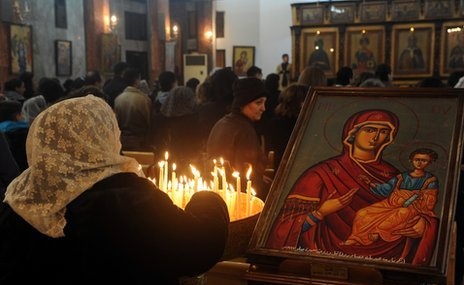
Mar 21, 2017 | Non categorizzato
 For more than 25 years I have been in constant contact with Fr. Nabil, a Catholic- Melchite priest of Syria, married and father of five. We met as seminarians during a meeting of the Focolare Movement . Since the start of the terrible war in Syria, it comes spontaneously to live the situation together. There are so many people praying for the people in Syria, invoking peace! Thus a spiritual communion was born, uniting also the two parish communities, his in Syria and ours in Switzerland. When his two older daughters couldn’t continue their studies in Syria, our community in Basel welcomed them. Last summer, since I had to change parish, I was able to take some time off to visit them. So the 40 days in Syria began! I arrived in Beirut at 3:00 in the morning, where Fr. Nabil welcomed me at the airport. With a car full of people and luggage we headed for Syria. At the border we were warmly welcomed by the office director. While the car and documents were being checked, we were his guests. Then we continued our journey, along secondary streets – since the main ones were closed – passing through numerous checkpoints until we reached Fr. Nabil’s town, five km away from the city of Hama. We were accommodated in various houses and experienced a warm and joyful welcome. I discovered a lively community. Every evening in the parish, over 200 children and young people took turns to meet us. All in all, more than 900 people passed some hours together. It is a daily celebration. The 70 youths in charge are strongly committed despite the fact that they go to school or the university, or are studying for their exams. As days passed I started to understand that this busy life is lived against a background of tearing pain. I discovered that the noise they hear daily come from the air raids. I found out that the stations of the “rebels” are just a few kilometers away, and that a week earlier, even a Christian village 12 km away had been attacked, with the death of many people. Various families can no longer buy the necessary living commodities. At night all is dark, and there are only LED lights with batteries. In many homes I saw photos of their sons who have died in the war. Almost none of the families is intact because over 3,000 youths have left the country. One day during a funeral, two grenades exploded and killed two people. I asked myself: where do these people find the strength not to despair? The fact is that for several years now, a great community has developed, and draws inspiration from the Spirituality of unity. There are over 200 people organised in small groups, who nurture themselves with the Word of God and take care of the disadvantaged people and children. They have set up a small social centre which assists people with serious diseases and provide with the help of the solidarity of their fellow citizens and international friends, for the medicines and treatments. They regularly visit up to 450 families to support them in their serious needs. Even the relationships between the various religious groups are well taken care of. And so we were invited, along with the other priests of the city, for the Ramadan dinner with more than 200 Imams of the City of Hama. Over the last week I had the chance to participate in the Mariapolis. There were over 200 people from various cities and regions of the country: Damascus, Homs, Hama, Aleppo and Latakia. For the first time since the start of the war, they could risk travelling and meeting one another. All have suffered immensely and lost their homes, jobs and even beloved relatives. But they have not lost their faith and love. (Ruedi Beck) Source: Gens magazine January – March 2017, p. 38-40
For more than 25 years I have been in constant contact with Fr. Nabil, a Catholic- Melchite priest of Syria, married and father of five. We met as seminarians during a meeting of the Focolare Movement . Since the start of the terrible war in Syria, it comes spontaneously to live the situation together. There are so many people praying for the people in Syria, invoking peace! Thus a spiritual communion was born, uniting also the two parish communities, his in Syria and ours in Switzerland. When his two older daughters couldn’t continue their studies in Syria, our community in Basel welcomed them. Last summer, since I had to change parish, I was able to take some time off to visit them. So the 40 days in Syria began! I arrived in Beirut at 3:00 in the morning, where Fr. Nabil welcomed me at the airport. With a car full of people and luggage we headed for Syria. At the border we were warmly welcomed by the office director. While the car and documents were being checked, we were his guests. Then we continued our journey, along secondary streets – since the main ones were closed – passing through numerous checkpoints until we reached Fr. Nabil’s town, five km away from the city of Hama. We were accommodated in various houses and experienced a warm and joyful welcome. I discovered a lively community. Every evening in the parish, over 200 children and young people took turns to meet us. All in all, more than 900 people passed some hours together. It is a daily celebration. The 70 youths in charge are strongly committed despite the fact that they go to school or the university, or are studying for their exams. As days passed I started to understand that this busy life is lived against a background of tearing pain. I discovered that the noise they hear daily come from the air raids. I found out that the stations of the “rebels” are just a few kilometers away, and that a week earlier, even a Christian village 12 km away had been attacked, with the death of many people. Various families can no longer buy the necessary living commodities. At night all is dark, and there are only LED lights with batteries. In many homes I saw photos of their sons who have died in the war. Almost none of the families is intact because over 3,000 youths have left the country. One day during a funeral, two grenades exploded and killed two people. I asked myself: where do these people find the strength not to despair? The fact is that for several years now, a great community has developed, and draws inspiration from the Spirituality of unity. There are over 200 people organised in small groups, who nurture themselves with the Word of God and take care of the disadvantaged people and children. They have set up a small social centre which assists people with serious diseases and provide with the help of the solidarity of their fellow citizens and international friends, for the medicines and treatments. They regularly visit up to 450 families to support them in their serious needs. Even the relationships between the various religious groups are well taken care of. And so we were invited, along with the other priests of the city, for the Ramadan dinner with more than 200 Imams of the City of Hama. Over the last week I had the chance to participate in the Mariapolis. There were over 200 people from various cities and regions of the country: Damascus, Homs, Hama, Aleppo and Latakia. For the first time since the start of the war, they could risk travelling and meeting one another. All have suffered immensely and lost their homes, jobs and even beloved relatives. But they have not lost their faith and love. (Ruedi Beck) Source: Gens magazine January – March 2017, p. 38-40
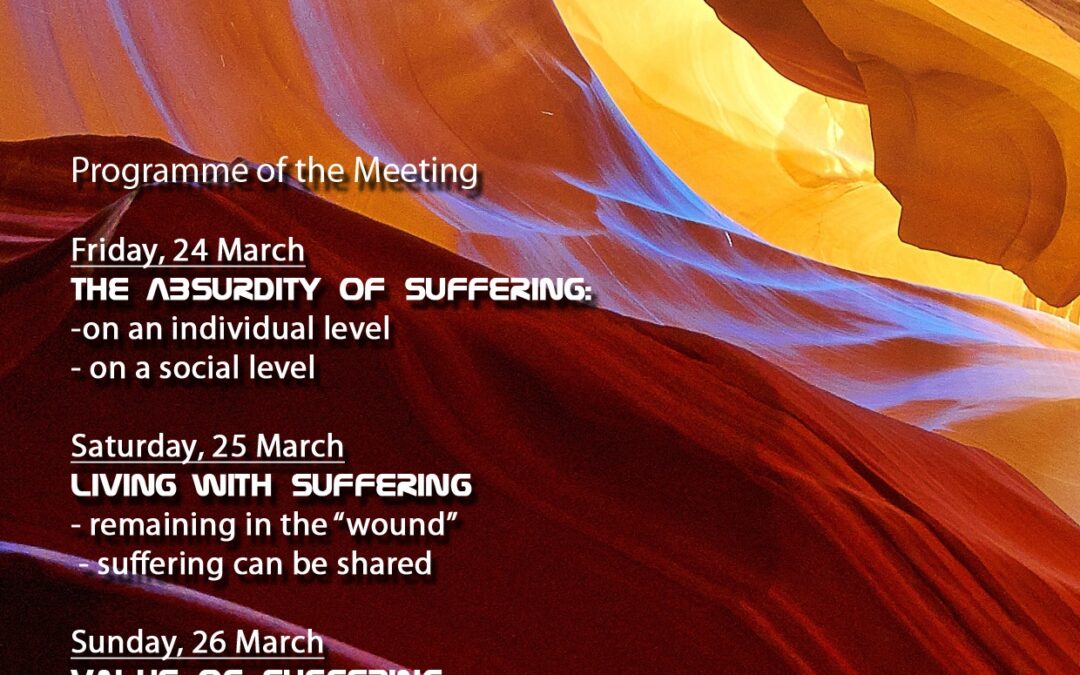
Mar 20, 2017 | Non categorizzato
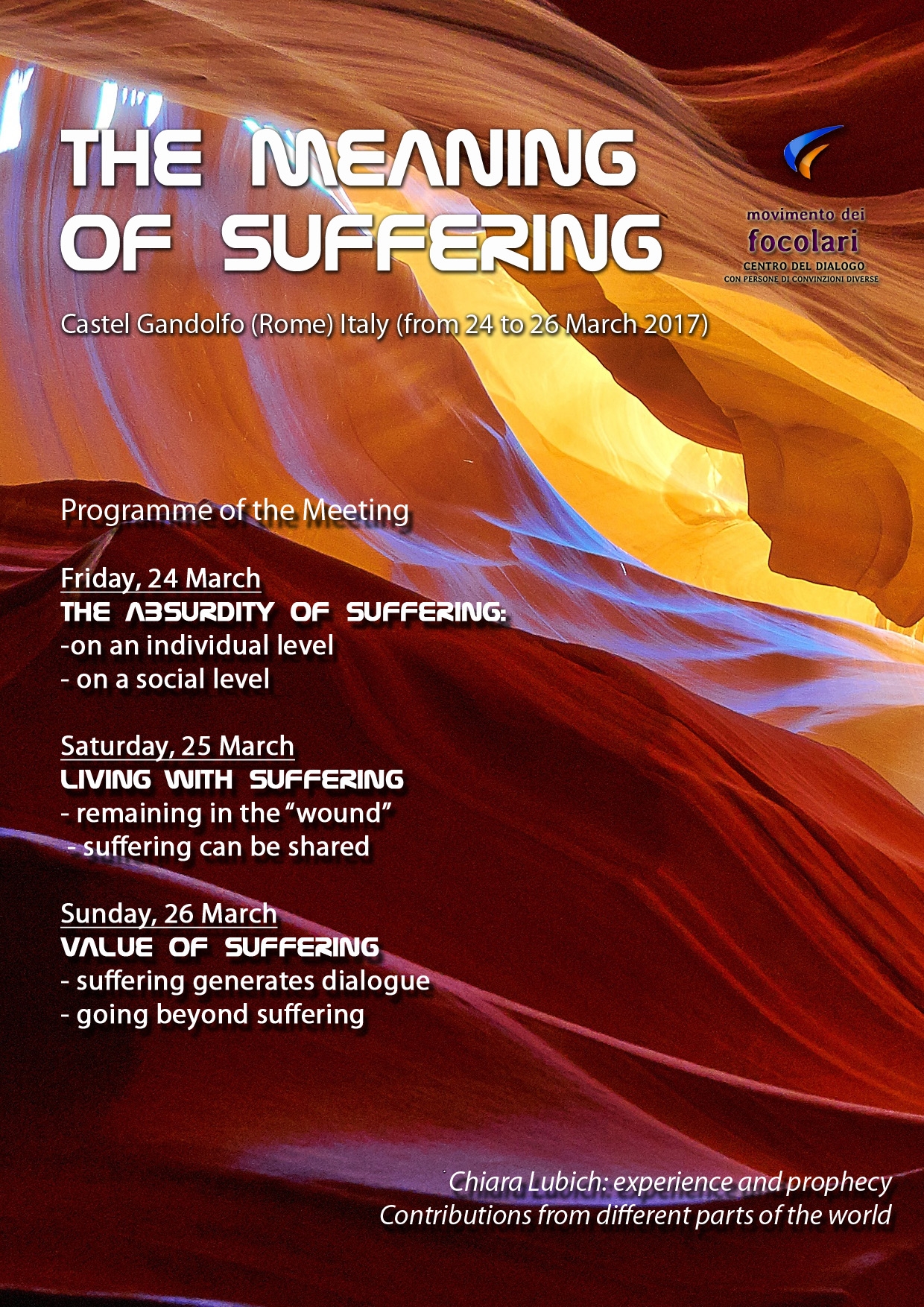 Agnese Fermo is a mathematics professor from Milan, Italy; she is married and has two children. She is also a member of the International Commission of the Centre for Dialogue with people of the Focolare that have no religious affiliation. We asked her to tell about her experience of the past several years engaged in this open dialogue and to present the upcoming conference titled “Is there meaning in suffering?” “I attended the international gatherings on this dialogue at Castel Gandolfo and other gatherings where we went deeper into the spirituality of the Movement. Right from the start we perceived the importance – for each one of us – of this communitarian experience that Chiara Lubich was offering to us. Dialogue, besides being an expression of the gift of diversity, was also a tool that enriched our thinking. I’ve belonged to the “dialogue group” in Milan for about 15 years. The need and desire that each of us had for dialogue made us feel that we were necessarily part of the human experience of a whole sector of humankind, and carriers of part of the truth through the relationships that we were building. But this experience couldn’t remain enclosed in a group: it was the trace of a path for each one of us to follow, besides for the Movement itself. We felt like we had to step out of structured groups, especially after Chiara left us. In Milan this has taken place, but with the many people with whom we’ve shared this experience – both members and non-members of the Movement – the relationship has remained deep and real. Regarding the upcoming conference titled Is there meaning in suffering? I believe I can say that we haven’t fixed any particular goal. I think this is because of the need we feel to give space to dialogue, not so much in the sense of comparing thoughts on the theme itself (there’s a lot of literature on this topic! And it’s often avoided as a topic). Rather, we’d like to create a space in which we can welcome people that have such a different religious sense towards life, a space capable of giving enough breathing room to this other portion of humanity that we represent, we who have different religious convictions. But there is also the desire to offer a communitarian experience, even if only for three days, to live within a dimension of mutual freedom beyond affiliation, in which each one of us can offer their our experience and innermost feelings on such a delicate topic as suffering. Personally, I wouldn’t know what the meaning of suffering is. I haven’t found an answer that has been able to express the mystery contained in that question. As I wonder about it whenever I visit the women’s prison, made me discover the value of my presence in that place as a time of sharing made up of mere moments, of the solitude that marks the pain of those women that I encounter. From them I’ve receive precious gifts and discovered the value of the embrace that that sharing contains which, although brief in time, brings to life our being [gifts] for each other. Knowing how to ‘stay inside the wound’ – which for me, means to say, being called to accept whatever life has in store for me in that moment – there’s submission in front of what you can’t avoid, [submission] to the suffering that we’re all asked to go through.”
Agnese Fermo is a mathematics professor from Milan, Italy; she is married and has two children. She is also a member of the International Commission of the Centre for Dialogue with people of the Focolare that have no religious affiliation. We asked her to tell about her experience of the past several years engaged in this open dialogue and to present the upcoming conference titled “Is there meaning in suffering?” “I attended the international gatherings on this dialogue at Castel Gandolfo and other gatherings where we went deeper into the spirituality of the Movement. Right from the start we perceived the importance – for each one of us – of this communitarian experience that Chiara Lubich was offering to us. Dialogue, besides being an expression of the gift of diversity, was also a tool that enriched our thinking. I’ve belonged to the “dialogue group” in Milan for about 15 years. The need and desire that each of us had for dialogue made us feel that we were necessarily part of the human experience of a whole sector of humankind, and carriers of part of the truth through the relationships that we were building. But this experience couldn’t remain enclosed in a group: it was the trace of a path for each one of us to follow, besides for the Movement itself. We felt like we had to step out of structured groups, especially after Chiara left us. In Milan this has taken place, but with the many people with whom we’ve shared this experience – both members and non-members of the Movement – the relationship has remained deep and real. Regarding the upcoming conference titled Is there meaning in suffering? I believe I can say that we haven’t fixed any particular goal. I think this is because of the need we feel to give space to dialogue, not so much in the sense of comparing thoughts on the theme itself (there’s a lot of literature on this topic! And it’s often avoided as a topic). Rather, we’d like to create a space in which we can welcome people that have such a different religious sense towards life, a space capable of giving enough breathing room to this other portion of humanity that we represent, we who have different religious convictions. But there is also the desire to offer a communitarian experience, even if only for three days, to live within a dimension of mutual freedom beyond affiliation, in which each one of us can offer their our experience and innermost feelings on such a delicate topic as suffering. Personally, I wouldn’t know what the meaning of suffering is. I haven’t found an answer that has been able to express the mystery contained in that question. As I wonder about it whenever I visit the women’s prison, made me discover the value of my presence in that place as a time of sharing made up of mere moments, of the solitude that marks the pain of those women that I encounter. From them I’ve receive precious gifts and discovered the value of the embrace that that sharing contains which, although brief in time, brings to life our being [gifts] for each other. Knowing how to ‘stay inside the wound’ – which for me, means to say, being called to accept whatever life has in store for me in that moment – there’s submission in front of what you can’t avoid, [submission] to the suffering that we’re all asked to go through.”
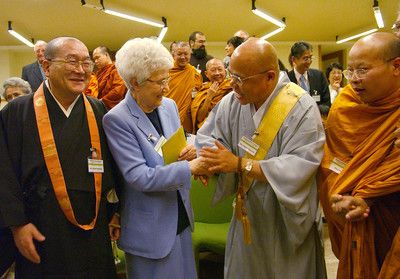
Mar 19, 2017 | Non categorizzato
 The founder of the Focolare Movement died at Rocca di Papa on the 14th March 2008 at the age of 88 after a long illness. In the telegram of condolence sent by Pope Benedict XVI, he mentioned “her constant commitment for communion in the Church for ecumenical dialogue and brotherhood among all peoples”. He also thanked the Lord “for the witness of a life spent hearing the needs of people today” and expressed the wish “that all those who knew her and follow in her footsteps should keep the flame of the charism alive”. Chiara Lubich’s charism focuses on unity in the human family. It would be a dream if it were not founded on firm faith in the love of God the Father for his children, and on the words of Jesus, “May they all be one”. This charism has much to say to the world today as Maria Voce said to Adriana Masotti. A. – Yes, indeed. It almost has more to say today than when Chiara first proclaimed it. At the time, there was of course the tragedy of war and many painful situations, but there was not the disunity that seems to be spreading so much in the world today. This disunity cries out for the lifestyle brought by the charism of unity God gave to Chiara. We are discovering its relevance more and more. Q. – One of the definitions made of Chiara Lubich was a “woman of dialogue” and dialogue is a subject talked much about in many places today. However, often it does not happen or people do not know how to do it. What did dialogue mean to Chiara and how does the Focolare Movement practice this dialogue? A. – Dialogue was a lifestyle for Chiara, which meant considering every person she met as a brother or sister. Chiara did not want to dialogue; she wanted to love people who were her brothers and sisters; and that is why she was so happy to meet people. She shared what was in her soul and then these brothers and sisters spontaneously responded with the same openness. That is how dialogue began. It is the same for us today; we try to have this attitude towards whomever we meet. We try to do as Chiara did, to be always open, without looking at differences and distinctiveness of any kind except as a way to create an enriching encounter, because it is a meeting with a brother or sister who has something to give us, whatever their ethnicity or religious faith, whatever their social background or age. Q. – So the Movement is convinced that dialogue is the best tool to resolve the many conflicts in the world today. A. – Of course! There is no other way. Why? Because dialogue is love, and if dialogue is love it can truly change the state of the world. It can bring peace to places at war. D. – At the beginning of her spiritual experience, Chiara was strongly aware of humanity’s cry of suffering and she decided to take on and bear this suffering herself. What does the Movement Chiara founded do with regard to the many divisions the world is experiencing at present? R. – The Movement wants to have the same faith as Chiara, a faith based on the cry of Jesus forsaken. Chiara certainly understood that cry as the moment when the Son of God suffered the most, but it was also when He loved us the most. Precisely because he loved us the most, in that moment he re-established the unity that was broken between God and humankind and among people. Therefore, there is no other way of reaching unity than by passing through suffering. However, this suffering is filled with love because it is part of giving one’s life for others. So, considering all the sufferings of the world today, whether at a personal level or at the level of society, peoples or nations, the Movement tries to recognize His countenance in these, to see in them a God who died. But He is also a God who rose again and who can therefore rise above all these sufferings. D. – This translates into many practical activities … R. – Precisely. Perhaps they start with a simple act of love by a family who saw that another family was experiencing a similar difficult situation, and who took upon themselves the difficulties of another family with a disabled child. This created a network of solidarity among many families and involved the local town council. They realized that by loving the countenance of Jesus forsaken in that suffering, something changed. This is what we see. Wherever we are, in places where there is war, our people try to love enemies as well as friends. Goods are shared among all the families without looking to see which ethnic group or religion they belong to… We see this continually in many relationships that change and we see new communities building up that are connected among themselves and spreading more and more. Source: Vatican Radio
The founder of the Focolare Movement died at Rocca di Papa on the 14th March 2008 at the age of 88 after a long illness. In the telegram of condolence sent by Pope Benedict XVI, he mentioned “her constant commitment for communion in the Church for ecumenical dialogue and brotherhood among all peoples”. He also thanked the Lord “for the witness of a life spent hearing the needs of people today” and expressed the wish “that all those who knew her and follow in her footsteps should keep the flame of the charism alive”. Chiara Lubich’s charism focuses on unity in the human family. It would be a dream if it were not founded on firm faith in the love of God the Father for his children, and on the words of Jesus, “May they all be one”. This charism has much to say to the world today as Maria Voce said to Adriana Masotti. A. – Yes, indeed. It almost has more to say today than when Chiara first proclaimed it. At the time, there was of course the tragedy of war and many painful situations, but there was not the disunity that seems to be spreading so much in the world today. This disunity cries out for the lifestyle brought by the charism of unity God gave to Chiara. We are discovering its relevance more and more. Q. – One of the definitions made of Chiara Lubich was a “woman of dialogue” and dialogue is a subject talked much about in many places today. However, often it does not happen or people do not know how to do it. What did dialogue mean to Chiara and how does the Focolare Movement practice this dialogue? A. – Dialogue was a lifestyle for Chiara, which meant considering every person she met as a brother or sister. Chiara did not want to dialogue; she wanted to love people who were her brothers and sisters; and that is why she was so happy to meet people. She shared what was in her soul and then these brothers and sisters spontaneously responded with the same openness. That is how dialogue began. It is the same for us today; we try to have this attitude towards whomever we meet. We try to do as Chiara did, to be always open, without looking at differences and distinctiveness of any kind except as a way to create an enriching encounter, because it is a meeting with a brother or sister who has something to give us, whatever their ethnicity or religious faith, whatever their social background or age. Q. – So the Movement is convinced that dialogue is the best tool to resolve the many conflicts in the world today. A. – Of course! There is no other way. Why? Because dialogue is love, and if dialogue is love it can truly change the state of the world. It can bring peace to places at war. D. – At the beginning of her spiritual experience, Chiara was strongly aware of humanity’s cry of suffering and she decided to take on and bear this suffering herself. What does the Movement Chiara founded do with regard to the many divisions the world is experiencing at present? R. – The Movement wants to have the same faith as Chiara, a faith based on the cry of Jesus forsaken. Chiara certainly understood that cry as the moment when the Son of God suffered the most, but it was also when He loved us the most. Precisely because he loved us the most, in that moment he re-established the unity that was broken between God and humankind and among people. Therefore, there is no other way of reaching unity than by passing through suffering. However, this suffering is filled with love because it is part of giving one’s life for others. So, considering all the sufferings of the world today, whether at a personal level or at the level of society, peoples or nations, the Movement tries to recognize His countenance in these, to see in them a God who died. But He is also a God who rose again and who can therefore rise above all these sufferings. D. – This translates into many practical activities … R. – Precisely. Perhaps they start with a simple act of love by a family who saw that another family was experiencing a similar difficult situation, and who took upon themselves the difficulties of another family with a disabled child. This created a network of solidarity among many families and involved the local town council. They realized that by loving the countenance of Jesus forsaken in that suffering, something changed. This is what we see. Wherever we are, in places where there is war, our people try to love enemies as well as friends. Goods are shared among all the families without looking to see which ethnic group or religion they belong to… We see this continually in many relationships that change and we see new communities building up that are connected among themselves and spreading more and more. Source: Vatican Radio
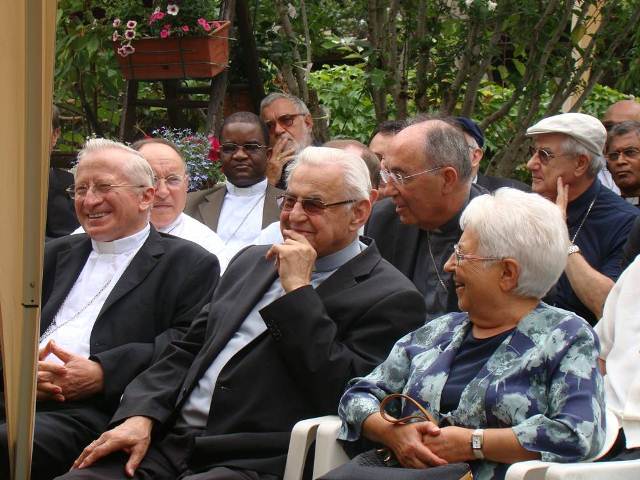
Mar 18, 2017 | Focolare Worldwide
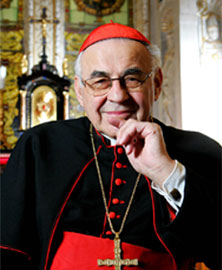 As a child, he dreamt of being a pilot, but an attraction to the priesthood stuck with him from the time he was eleven. He was born on May 17, 1932 in Lisnice, the Province of Pisek in Southern Bohemia. From 1952 to 1953 he was a worker. In 1960, following his graduation, he worked as an archivist but soon abandoned that occupation to study theology. In 1968 he was ordained to the priesthood. During a visit to East Germany in the 1960s, he met a layman and some priests who were living the spirituality of the Focolare Movement. He was taken by the presence of Jesus among this group of Christians, a presence that He promises when two or more are united in His name (see Mt 18:20). That experience of communion would accompany him for the rest of his life. His pastoral work in Ceské Budejovice annoyed the Communist State system, and in 1971 he was transferred to a parish in Selva Boema. Seven years later, because of his popularity especially among young people, his permission to carry out his priestly ministry was revoked. “I lost my license. I can’t say mass anymore,” he explained to his parishioners. “I preached and talked about the cross and recommended that we carry it; now is the moment for me to carry it.” Officially returned to the lay state, Chiara Lubich accepted his request to enter the focolare in Prague that was opened in 1981. He found a job as a window-washer that lasted for 10 years. He would often say: “I can’t preach or share the sacraments in public, but when I look at the cross I realize that Jesus who is the one and only High Priest could hardly even talk when he was on the cross, and his hands were nailed in. I became convinced: ‘Now, you’re close to the High Priest’ and I embraced Jesus Forsaken. It was the spirituality of the Focolare that guided me in this direction. I felt the power of which Isaiah 53 speaks: ‘The man of suffering’ (…) I lived for a long time of this light: everything that was ugly could serve for my edification. I realized, without exaggerating, that those ten years of washing windows had been the most blessed years of my life.” He would often repeat: “I hold it to be a miracle that God spread the spirituality of unity in the Socialist world where everything was under surveillance. He always knows the ways in.”
As a child, he dreamt of being a pilot, but an attraction to the priesthood stuck with him from the time he was eleven. He was born on May 17, 1932 in Lisnice, the Province of Pisek in Southern Bohemia. From 1952 to 1953 he was a worker. In 1960, following his graduation, he worked as an archivist but soon abandoned that occupation to study theology. In 1968 he was ordained to the priesthood. During a visit to East Germany in the 1960s, he met a layman and some priests who were living the spirituality of the Focolare Movement. He was taken by the presence of Jesus among this group of Christians, a presence that He promises when two or more are united in His name (see Mt 18:20). That experience of communion would accompany him for the rest of his life. His pastoral work in Ceské Budejovice annoyed the Communist State system, and in 1971 he was transferred to a parish in Selva Boema. Seven years later, because of his popularity especially among young people, his permission to carry out his priestly ministry was revoked. “I lost my license. I can’t say mass anymore,” he explained to his parishioners. “I preached and talked about the cross and recommended that we carry it; now is the moment for me to carry it.” Officially returned to the lay state, Chiara Lubich accepted his request to enter the focolare in Prague that was opened in 1981. He found a job as a window-washer that lasted for 10 years. He would often say: “I can’t preach or share the sacraments in public, but when I look at the cross I realize that Jesus who is the one and only High Priest could hardly even talk when he was on the cross, and his hands were nailed in. I became convinced: ‘Now, you’re close to the High Priest’ and I embraced Jesus Forsaken. It was the spirituality of the Focolare that guided me in this direction. I felt the power of which Isaiah 53 speaks: ‘The man of suffering’ (…) I lived for a long time of this light: everything that was ugly could serve for my edification. I realized, without exaggerating, that those ten years of washing windows had been the most blessed years of my life.” He would often repeat: “I hold it to be a miracle that God spread the spirituality of unity in the Socialist world where everything was under surveillance. He always knows the ways in.” 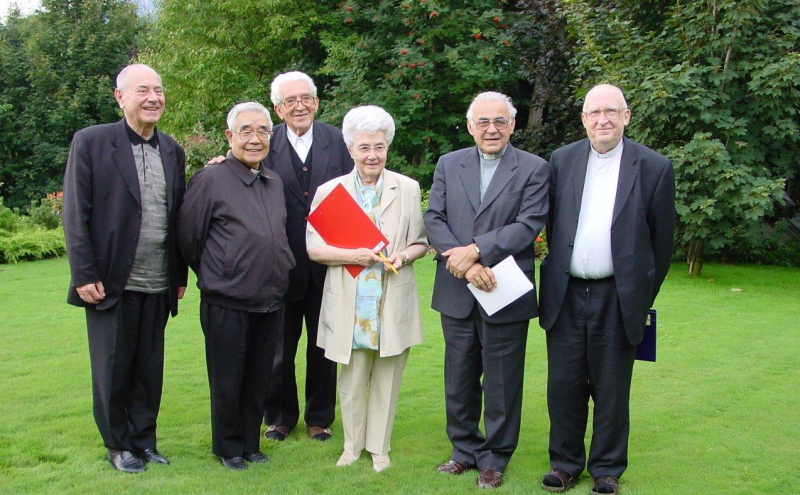 With the Velvet Revolution in 1989 he became pastor again. In 1990 he was named bishop of Ceské Budejovice and, in the following years, Archbishop of Prague. From 1992 to 2000 he guided the Czech Bishops Conference and from 1993-2001 becamse President of the Council of the Bishops Conferences of Europe. On November 26, 1994, he was created cardinal. Following the death of Bishop Klaus Hemmerle in January 1994, who began the branch of the Bishop Friends of the Focolare Movement, the foundress invited Archbishop of Prague to assume the role as moderator of that branch of the Movement. He succeded Bishop Hemmerle who had been a great theologian and charismatic figure. It seemed too demanding to him, but Chiara Lubich assured him: “Don’t be afraid, Your Emminance, you won’t be alone. You’ll go ahead as a body.” The cardinal carried out this task for 18 years, convoking and supporting numerous international meetings of bishops from both the Catholic and other Churches, which were held in Castel Gandolfo, Italy, Istanbul, Jerusalem, Beirut, Augsburg, Wittenburg, London, Geneva, El Cairo, just to name a few.
With the Velvet Revolution in 1989 he became pastor again. In 1990 he was named bishop of Ceské Budejovice and, in the following years, Archbishop of Prague. From 1992 to 2000 he guided the Czech Bishops Conference and from 1993-2001 becamse President of the Council of the Bishops Conferences of Europe. On November 26, 1994, he was created cardinal. Following the death of Bishop Klaus Hemmerle in January 1994, who began the branch of the Bishop Friends of the Focolare Movement, the foundress invited Archbishop of Prague to assume the role as moderator of that branch of the Movement. He succeded Bishop Hemmerle who had been a great theologian and charismatic figure. It seemed too demanding to him, but Chiara Lubich assured him: “Don’t be afraid, Your Emminance, you won’t be alone. You’ll go ahead as a body.” The cardinal carried out this task for 18 years, convoking and supporting numerous international meetings of bishops from both the Catholic and other Churches, which were held in Castel Gandolfo, Italy, Istanbul, Jerusalem, Beirut, Augsburg, Wittenburg, London, Geneva, El Cairo, just to name a few.  The membership of the Bishops in the Work of Mary is entirely spiritual and does not interfere in any way with their duties as bishops, as established by the Church. They find that the spirituality of unity is “in profound harmony with the episcopal charism. It reinforces the effective and affective collegiality and unity with the Holy Father, among the bishops, and helps them to actualize the teachings of the Second Vatican Council on the Church-Communion.” This is written in their rule of life for the “Bishop Friends of the Movement” which was recognized by John Paul II and approved by the Pontifical Council of the Laity in a letter dated February 14, 1998. Also the heads of several other Christian Church’s have expressed their appreciation for this initiative. See also: News.va – Telegram of condolences for the death of Cardinal Miloslav Vlk
The membership of the Bishops in the Work of Mary is entirely spiritual and does not interfere in any way with their duties as bishops, as established by the Church. They find that the spirituality of unity is “in profound harmony with the episcopal charism. It reinforces the effective and affective collegiality and unity with the Holy Father, among the bishops, and helps them to actualize the teachings of the Second Vatican Council on the Church-Communion.” This is written in their rule of life for the “Bishop Friends of the Movement” which was recognized by John Paul II and approved by the Pontifical Council of the Laity in a letter dated February 14, 1998. Also the heads of several other Christian Church’s have expressed their appreciation for this initiative. See also: News.va – Telegram of condolences for the death of Cardinal Miloslav Vlk
Mar 18, 2017 | Non categorizzato
Today, 18 March, Cardinal Miloslav Vlk, Emeritus Archbishop of Prague, passed way. He was 86 years old. For 18 years, he was the moderator of the group of bishops who adhere to the spirituality of unity. The Focolare Movement expresses deep gratitude for his life.
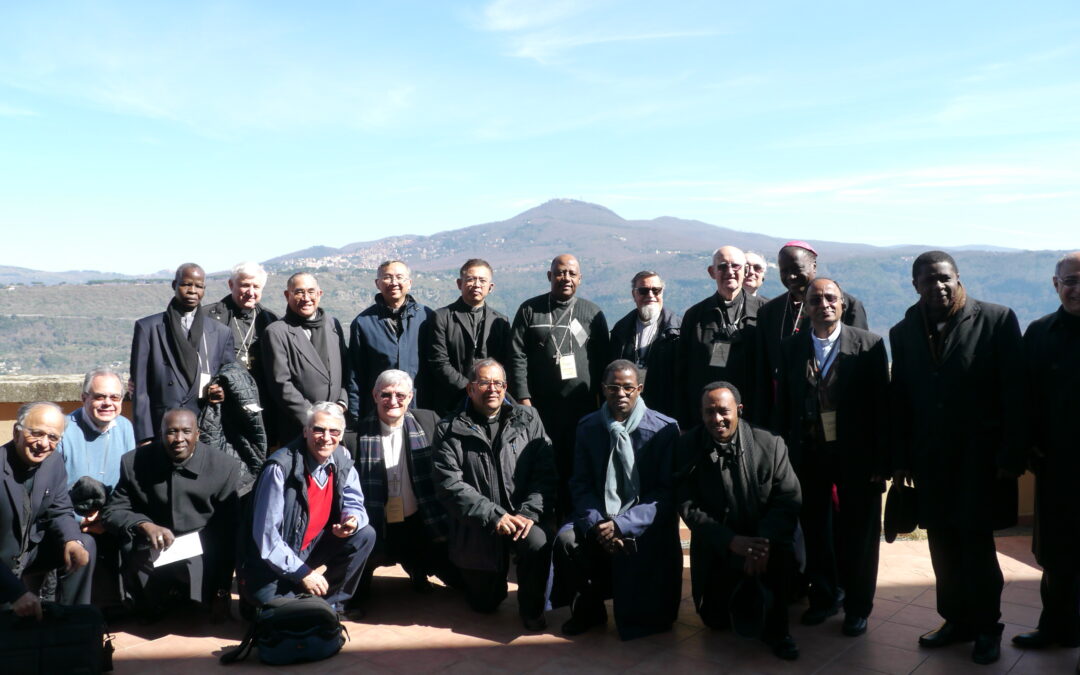
Mar 18, 2017 | Focolare Worldwide
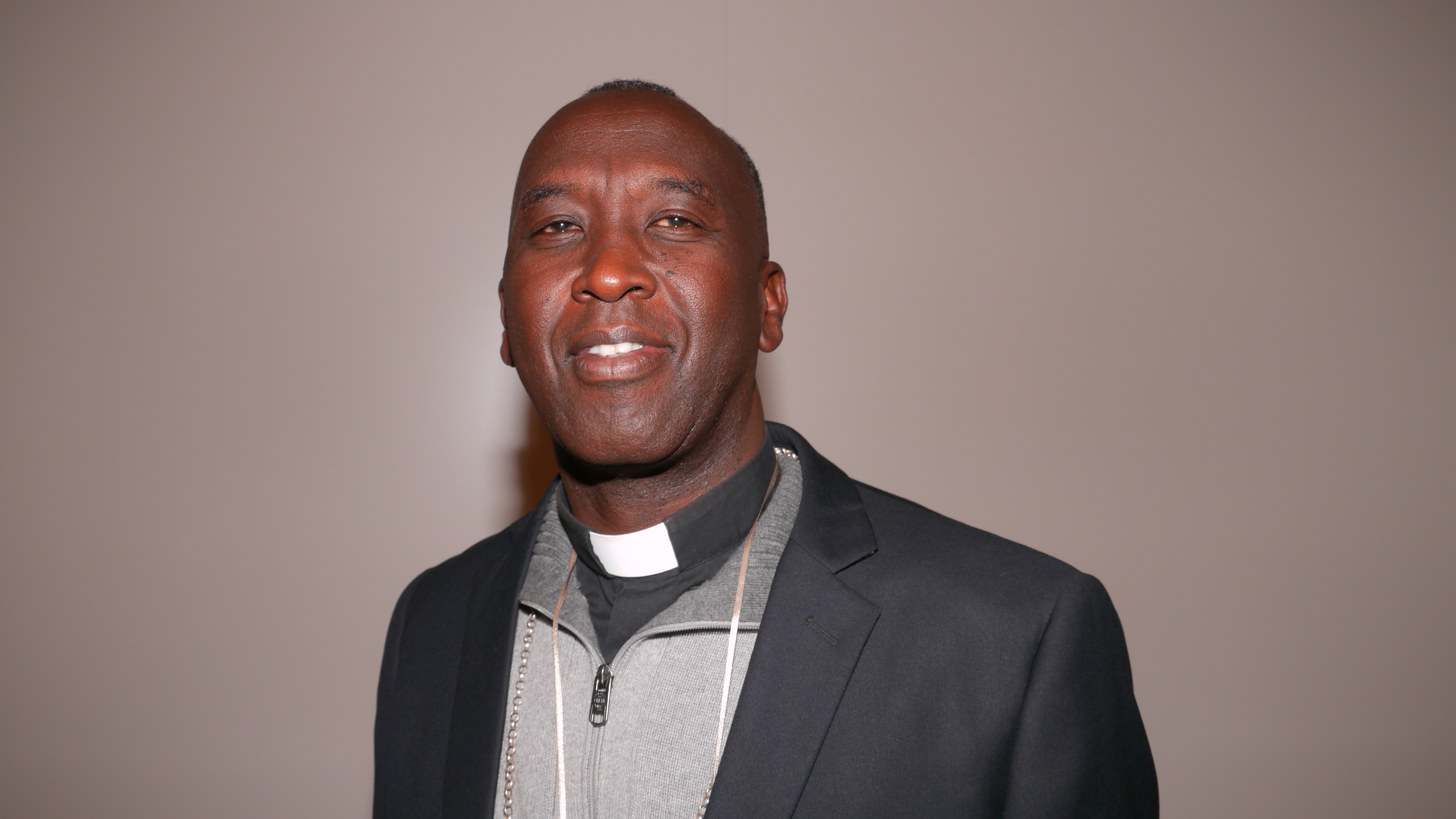 Our diocese of Lodwar – Bishop Dominic Kimengich recounts – is situated in Turkana County (Kenya), bordering with Uganda, South Sudan and Ethiopia. It is 700 km away from Nairobi. The travelers who come to us have to ensure that there is a police escort along the route, so as not to encounter bandits and robbers in the frequent raids. Due to climactic changes, it has not rained for a long time, with the terrible consequence of the shortage that has affected the entire Turkana area. Sixty percent of the population still live the nomad lifestyle and up to now have survived by raising camels, sheep, goats, donkeys and cattle. Now that there is no food or pastures for the cattle, they are forced to migrate to nearby countries. Given that this is a zone of confines, the many conflicts between bordering tribes battling for survival provoke the death of many innocent people, among which are women and children. In the diocese we have a huge refugee camp called Kakuma, with almost 200,000 refugees coming mostly from South Sudan, where the situation is worsening each day. But many also come from Somalia. We find ourselves in a very difficult situation since not even the inhabitants of Lodwar have enough food and water. Many children have even stopped going to school for lack of food. In 1985 when I was in the seminary, someone told me about the Focolare spirituality, but once a priest I was assigned to a parish where it was difficult to keep in contact with the Movement. It was only when I became a Bishop that I was able to attend some meetings in Nairobi. In 2012, to celebrate the 50th year of evangelisation, we thought of inviting the bishops of the surrounding dioceses: Uganda, South Sudan, Ethiopia and other four dioceses in Kenya, to speak about peace and reflect on what we can do. Ten Bishops attended and we got together for three days, a meeting which is now held every year. We can say that every time we would meet, the conflict was reduced. Once I went to visit Bishop Markos of Ethiopia, who is also present in this congress and from the unity built also with the other bishops, we find the strength to bring ahead our ministry in such a troubled land.
Our diocese of Lodwar – Bishop Dominic Kimengich recounts – is situated in Turkana County (Kenya), bordering with Uganda, South Sudan and Ethiopia. It is 700 km away from Nairobi. The travelers who come to us have to ensure that there is a police escort along the route, so as not to encounter bandits and robbers in the frequent raids. Due to climactic changes, it has not rained for a long time, with the terrible consequence of the shortage that has affected the entire Turkana area. Sixty percent of the population still live the nomad lifestyle and up to now have survived by raising camels, sheep, goats, donkeys and cattle. Now that there is no food or pastures for the cattle, they are forced to migrate to nearby countries. Given that this is a zone of confines, the many conflicts between bordering tribes battling for survival provoke the death of many innocent people, among which are women and children. In the diocese we have a huge refugee camp called Kakuma, with almost 200,000 refugees coming mostly from South Sudan, where the situation is worsening each day. But many also come from Somalia. We find ourselves in a very difficult situation since not even the inhabitants of Lodwar have enough food and water. Many children have even stopped going to school for lack of food. In 1985 when I was in the seminary, someone told me about the Focolare spirituality, but once a priest I was assigned to a parish where it was difficult to keep in contact with the Movement. It was only when I became a Bishop that I was able to attend some meetings in Nairobi. In 2012, to celebrate the 50th year of evangelisation, we thought of inviting the bishops of the surrounding dioceses: Uganda, South Sudan, Ethiopia and other four dioceses in Kenya, to speak about peace and reflect on what we can do. Ten Bishops attended and we got together for three days, a meeting which is now held every year. We can say that every time we would meet, the conflict was reduced. Once I went to visit Bishop Markos of Ethiopia, who is also present in this congress and from the unity built also with the other bishops, we find the strength to bring ahead our ministry in such a troubled land. 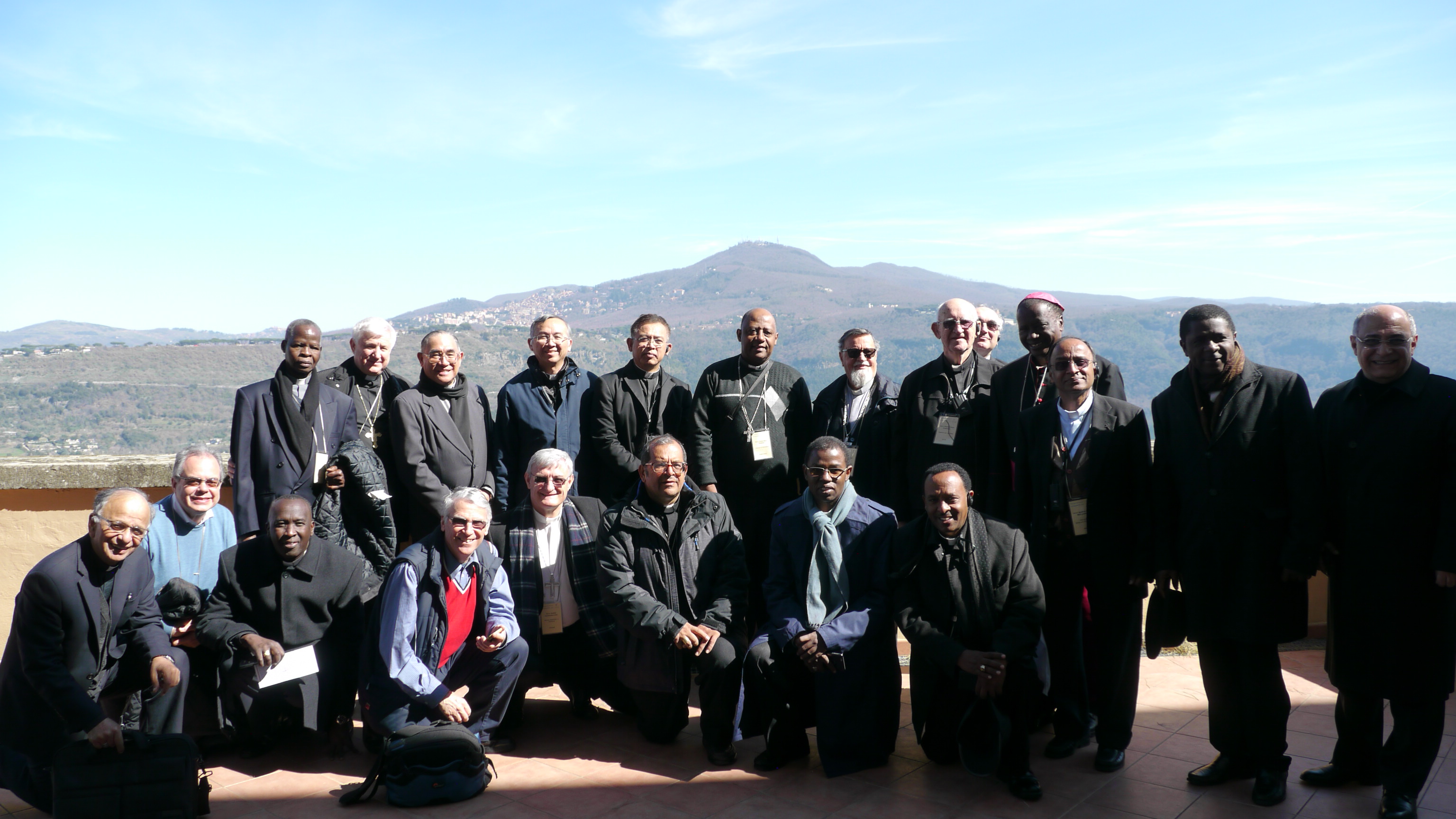 Here in Castel Gandolfo it’s so wonderful to be able to share our own experience with bishops of the whole world and together go deeper into the charism of unity, which teaches us in a practical way on how to live – also as bishops – a genuine love in the spirit of fraternity. Participating in this Congress was a big testimony of God’s love for me and of how He wants us to love one another as Jesus loved us. The theme chosen for this year is greatly in line with the reality of my life and of the territory I come from. It is only seeing things from the point of view of Jesus crucified and abandoned that we can hope in a world where people can learn to live in peace, sharing what they have up to the point of embracing one another as sons of the same God the Father. As I prepare to return to my diocese I can testify with certainty that I am not the same person as before. I feel strengthened by unity with my bishop brothers. In unity in Jesus Forsaken, I know that I am not alone in that part of Kenya in facing the many difficult situations. Jesus is with me, and is very close. I also know that I can count on the prayers of the whole Movement. I am very grateful to God who made all this possible.
Here in Castel Gandolfo it’s so wonderful to be able to share our own experience with bishops of the whole world and together go deeper into the charism of unity, which teaches us in a practical way on how to live – also as bishops – a genuine love in the spirit of fraternity. Participating in this Congress was a big testimony of God’s love for me and of how He wants us to love one another as Jesus loved us. The theme chosen for this year is greatly in line with the reality of my life and of the territory I come from. It is only seeing things from the point of view of Jesus crucified and abandoned that we can hope in a world where people can learn to live in peace, sharing what they have up to the point of embracing one another as sons of the same God the Father. As I prepare to return to my diocese I can testify with certainty that I am not the same person as before. I feel strengthened by unity with my bishop brothers. In unity in Jesus Forsaken, I know that I am not alone in that part of Kenya in facing the many difficult situations. Jesus is with me, and is very close. I also know that I can count on the prayers of the whole Movement. I am very grateful to God who made all this possible.
Mar 17, 2017 | Non categorizzato
On the early morning of March 16, 2017, the earthly journey of Gianni Caso came to an end. He was a focolarino, jurist and magistrate, columnist for Città Nuova magazine and, for many years, responsible for Communion and Law. A short biography will be published soon.
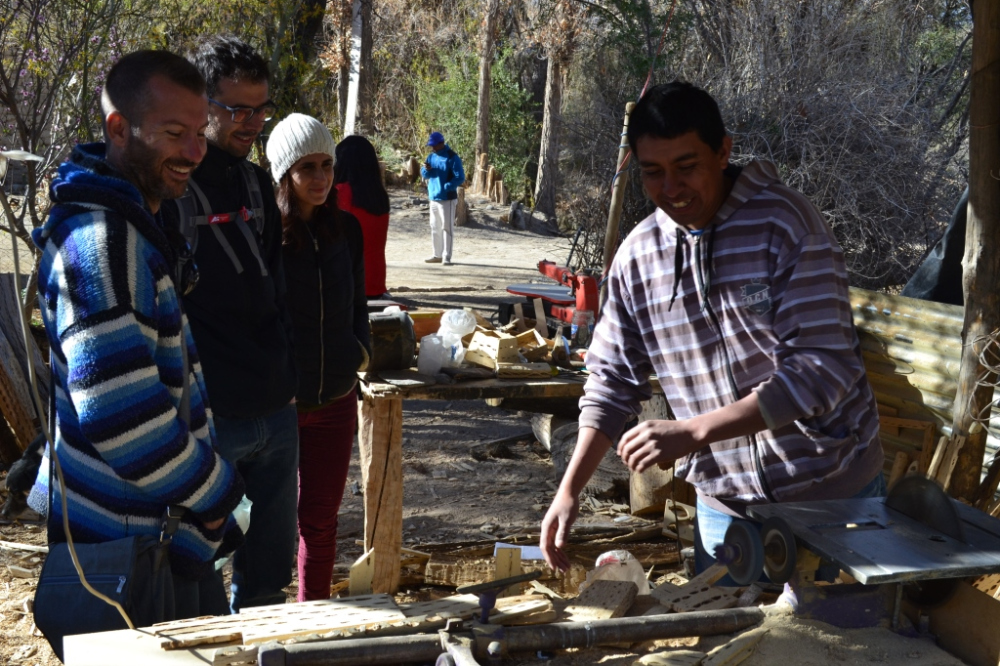
Mar 17, 2017 | Focolare Worldwide
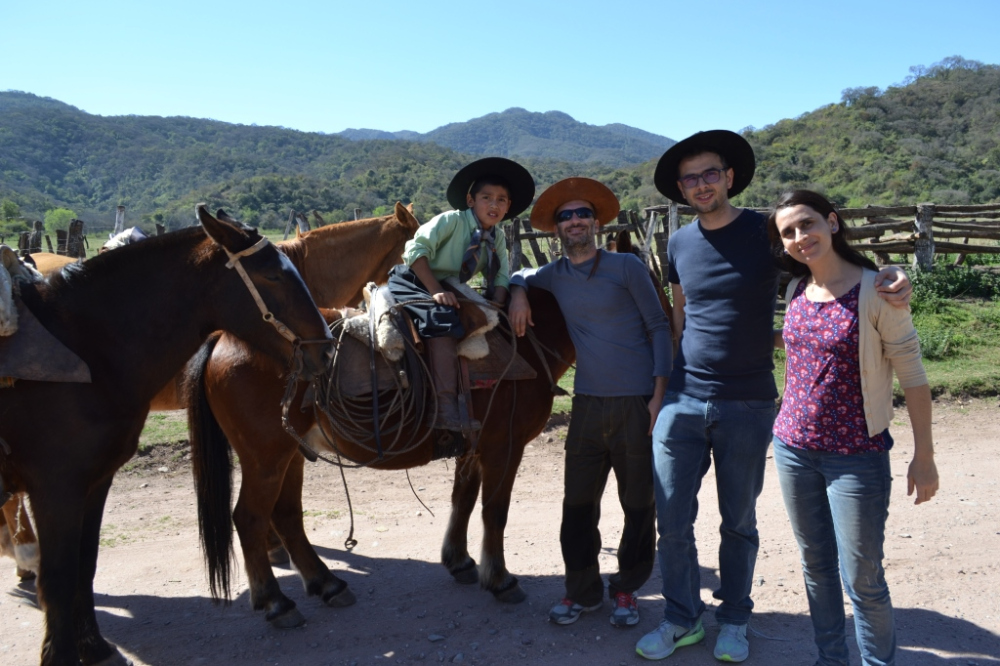 The solidarity tourism project that the Ministry of Tourism of Salta, Argentina has been promoting for six years supports small communities in the cities of Salta, Jujuy and Catamarca in the north of the country. It is enhancing the region’s natural resources in order to save the cultural richness and diversity that is linked to local history. At the same time, it offers professional training for the production of products related to the sectors of tourism, housing, transport and the sale of handicrafts and food products (jams, liqueurs, honey, and more). This has helped to avoid the migration of populations from rural areas to urban ones, preventing the increase of poverty areas in the big cities while protecting small communities that have a rich culture that is disappearing.
The solidarity tourism project that the Ministry of Tourism of Salta, Argentina has been promoting for six years supports small communities in the cities of Salta, Jujuy and Catamarca in the north of the country. It is enhancing the region’s natural resources in order to save the cultural richness and diversity that is linked to local history. At the same time, it offers professional training for the production of products related to the sectors of tourism, housing, transport and the sale of handicrafts and food products (jams, liqueurs, honey, and more). This has helped to avoid the migration of populations from rural areas to urban ones, preventing the increase of poverty areas in the big cities while protecting small communities that have a rich culture that is disappearing. 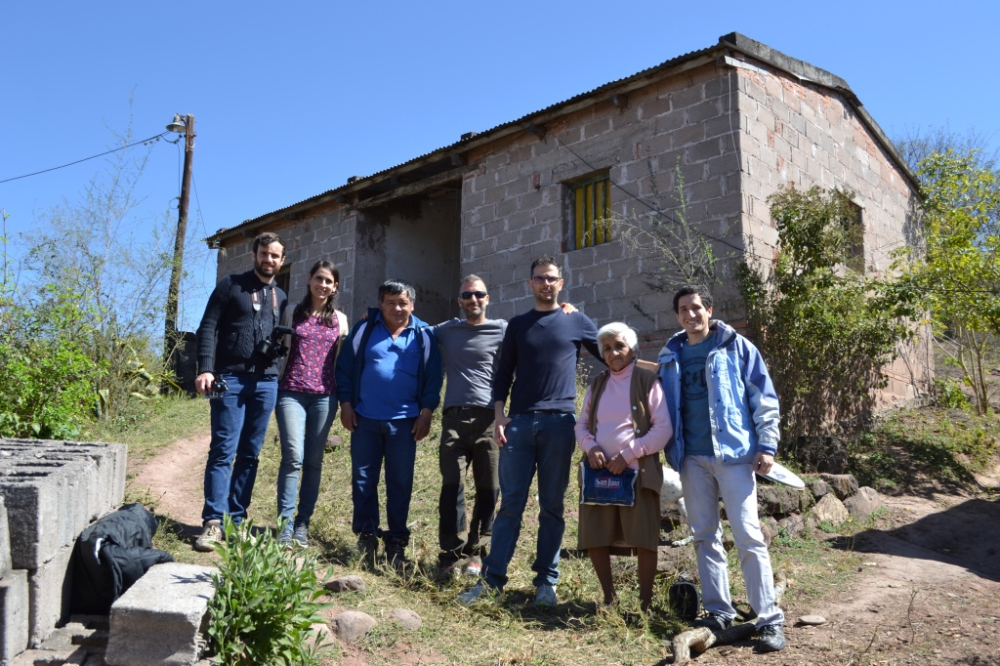 “What distinguishes this experience of development from other types of experiences,” sociologist Virginia Osorio from the Sumá Fraternidad explains, “are the words “communion” and “dialogue”. Communion, because each actor has put his or her own talents and resources in common for the development of the project; dialogue, because throughout the development process, there was strong interaction between the different components who were often in conflict with one another. Difficulties were never lacking, but the strategy used to overcome those difficulties was to work in squads and practice active listening among parties: the local community, the State, businesses and other types of civil organisations.” She went on to say: “The result of this experience has been the birth of a new product and of a new kind of consumer. It’s not the idea of tourism that we have been used to. In this experience there is the added value of contact with the rich cultural wealth of small rural communities and, in several cases, of the descendents of indigenousness peoples. This type of tourism creates encounter among people among people.”
“What distinguishes this experience of development from other types of experiences,” sociologist Virginia Osorio from the Sumá Fraternidad explains, “are the words “communion” and “dialogue”. Communion, because each actor has put his or her own talents and resources in common for the development of the project; dialogue, because throughout the development process, there was strong interaction between the different components who were often in conflict with one another. Difficulties were never lacking, but the strategy used to overcome those difficulties was to work in squads and practice active listening among parties: the local community, the State, businesses and other types of civil organisations.” She went on to say: “The result of this experience has been the birth of a new product and of a new kind of consumer. It’s not the idea of tourism that we have been used to. In this experience there is the added value of contact with the rich cultural wealth of small rural communities and, in several cases, of the descendents of indigenousness peoples. This type of tourism creates encounter among people among people.”  Stefano, a young Italian tourist who participated in the programme, reports: “I feel like for some people travelling is like looking at the world from a glass box. We travel in search of our Western standard, with our comforts, our certainties and securities. We go to “consume,” as if visiting places was like stopping to have a drink and then throwing the cup away. Many photos are taken, many souvenirs are bought, you eat at some local eatery and the game is over! A nation is not made of monuments and souvenirs, but of people that can offer hospitality, sharing their homes, their dinner tables, their music: this is the real way to travel! ‘Share’, Argentina!” The family of María José e Pablo from Argentina recount: “We liked this idea of vacation, taking walks, getting to know sites, but most of all the opportunity to meet these ‘human sites’ that at times are hidden in the background of the postcards … which allowed us to enter into the local reality of those communities. We had the strong feeling throughout this experience of breaking free from our scheme of things and filling our life with those people whom we now hold in our heart; experiencing the profound and tranquil rhythm of those places, and the scenery of many places we passed through on our trip. Now, as we return to the city, we look at daily life differently, with new eyes.”
Stefano, a young Italian tourist who participated in the programme, reports: “I feel like for some people travelling is like looking at the world from a glass box. We travel in search of our Western standard, with our comforts, our certainties and securities. We go to “consume,” as if visiting places was like stopping to have a drink and then throwing the cup away. Many photos are taken, many souvenirs are bought, you eat at some local eatery and the game is over! A nation is not made of monuments and souvenirs, but of people that can offer hospitality, sharing their homes, their dinner tables, their music: this is the real way to travel! ‘Share’, Argentina!” The family of María José e Pablo from Argentina recount: “We liked this idea of vacation, taking walks, getting to know sites, but most of all the opportunity to meet these ‘human sites’ that at times are hidden in the background of the postcards … which allowed us to enter into the local reality of those communities. We had the strong feeling throughout this experience of breaking free from our scheme of things and filling our life with those people whom we now hold in our heart; experiencing the profound and tranquil rhythm of those places, and the scenery of many places we passed through on our trip. Now, as we return to the city, we look at daily life differently, with new eyes.”
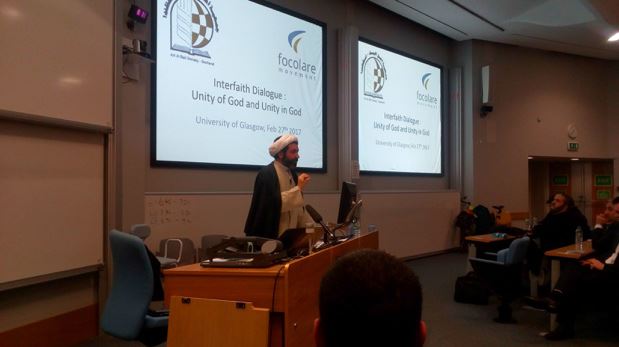
Mar 16, 2017 | Focolare Worldwide
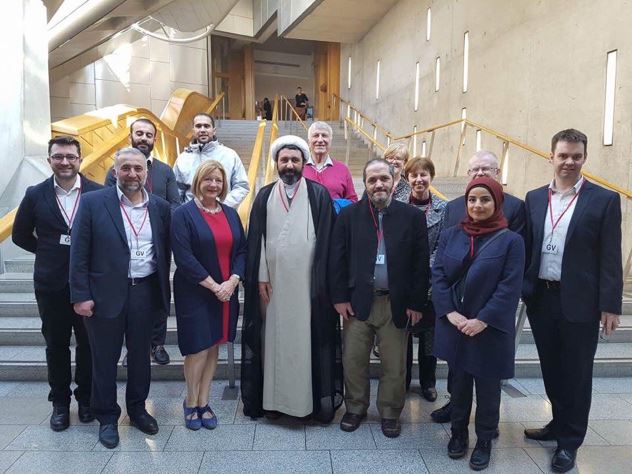 The University of Glasgow, founded in 1451, is one of Scotland’s four ancient universities. In this prestigious place, which educated seven future Nobel winners and heard Albert Einstein demonstrate his theory of relativity, the Focolare Movement and the Islamic society Ahl Al Bait organized an open lesson on interfaith dialogue and unity on 27 February. The evening was entitled “Unity in God and unity of God”. It featured a renowned figure of the Shiite world, Dr. Mohammad Ali Shomali, director of the International Institute of Islamic Studies at Qum, Iran, who currently is at the helm of the Islamic Centre of Great Britain. There was also Professor Paulo Frizzi, teacher of theology and the practice of interreligious dialogue at the Sophia University Institute at Loppiano, near Florence, Italy, where he coordinates the Sophia Global Studies research and training center. The following day, Dr Shomali was to lead a discussion before members of the Scottish Parliament.
The University of Glasgow, founded in 1451, is one of Scotland’s four ancient universities. In this prestigious place, which educated seven future Nobel winners and heard Albert Einstein demonstrate his theory of relativity, the Focolare Movement and the Islamic society Ahl Al Bait organized an open lesson on interfaith dialogue and unity on 27 February. The evening was entitled “Unity in God and unity of God”. It featured a renowned figure of the Shiite world, Dr. Mohammad Ali Shomali, director of the International Institute of Islamic Studies at Qum, Iran, who currently is at the helm of the Islamic Centre of Great Britain. There was also Professor Paulo Frizzi, teacher of theology and the practice of interreligious dialogue at the Sophia University Institute at Loppiano, near Florence, Italy, where he coordinates the Sophia Global Studies research and training center. The following day, Dr Shomali was to lead a discussion before members of the Scottish Parliament. 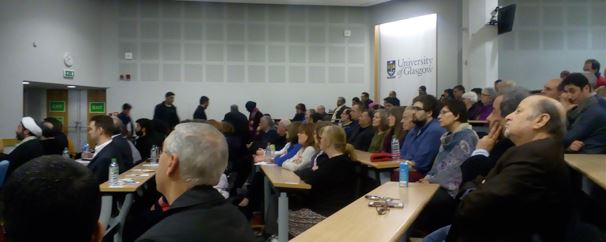 The longstanding friendship between Sophia University Institute and the Shiite academic brought about a dialogue and research project last summer that involved a group of Christian and Muslim scholars, with the suggestive title “Wings of Unity.” “I presented the methodology and atmosphere that our institute promotes, where we work with an academic approach that is integrated, where experience and application is placed alongside the theory,” explains Frizzi. “For example, a course on interreligious dialogue is taught by three of us with different academic backgrounds and experience, yet we try to develop a common program through reciprocal listening, sort of a journey of unity in which we co-teach the lessons and the students play a lead role.”
The longstanding friendship between Sophia University Institute and the Shiite academic brought about a dialogue and research project last summer that involved a group of Christian and Muslim scholars, with the suggestive title “Wings of Unity.” “I presented the methodology and atmosphere that our institute promotes, where we work with an academic approach that is integrated, where experience and application is placed alongside the theory,” explains Frizzi. “For example, a course on interreligious dialogue is taught by three of us with different academic backgrounds and experience, yet we try to develop a common program through reciprocal listening, sort of a journey of unity in which we co-teach the lessons and the students play a lead role.” 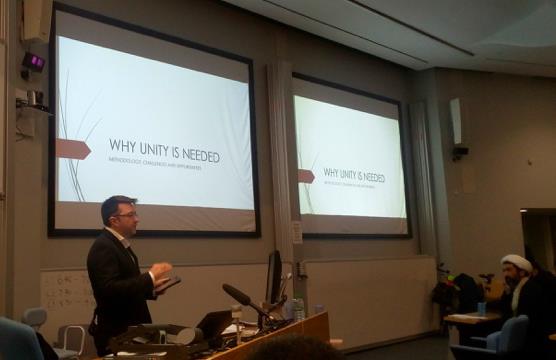 Wings of Unity, explains the Sophia professor, provides a physical space to dialogue, where on one hand students can deepen their understanding of what “unity in God and of God” means, clarifying elements of difference and those held in common. On the other, they can explore the ways in which unity can be tangibly lived, healing wounds and resolving differences. “Too often interfaith initiatives only touch on the questions of the few, without a tangible impact. This is a delicate moment we live in, and we have to take into account the transition towards an uncertain new world order, where greater interconnectivity and interdependence sit alongside painful divisions that fracture the unity of society. Globalization has probably failed in its attempt to build sustainable community, as multinational institutions fail to guarantee a safe space where cultures and religions can meet without the risk of losing themselves. “This may be true, but on the other hand there is experience, commitment and dialogue welling up that, in contrast, enriches neighborhoods and unifies communities. It begins deep down and helps us all think once again of unity amid diversity.” As Pope Francis states in Evangelii Gaudium, dialogue happens in a world that is not a pyramid (where some are at the top over many others) nor a sphere (without any distinguishable sides), but instead multifaceted, where all parts converge together while maintaining its own individuality.
Wings of Unity, explains the Sophia professor, provides a physical space to dialogue, where on one hand students can deepen their understanding of what “unity in God and of God” means, clarifying elements of difference and those held in common. On the other, they can explore the ways in which unity can be tangibly lived, healing wounds and resolving differences. “Too often interfaith initiatives only touch on the questions of the few, without a tangible impact. This is a delicate moment we live in, and we have to take into account the transition towards an uncertain new world order, where greater interconnectivity and interdependence sit alongside painful divisions that fracture the unity of society. Globalization has probably failed in its attempt to build sustainable community, as multinational institutions fail to guarantee a safe space where cultures and religions can meet without the risk of losing themselves. “This may be true, but on the other hand there is experience, commitment and dialogue welling up that, in contrast, enriches neighborhoods and unifies communities. It begins deep down and helps us all think once again of unity amid diversity.” As Pope Francis states in Evangelii Gaudium, dialogue happens in a world that is not a pyramid (where some are at the top over many others) nor a sphere (without any distinguishable sides), but instead multifaceted, where all parts converge together while maintaining its own individuality.  Dr Shomali intervenes with some words about identity: “If we reflect on how religions developed, we realize that one question has always been present: How can we keep people together, convincing them that, if we stay in the circle, we are better off?” The concept of identity caused us to distance ourselves from each other, in as much as we expressed not “who we are,” but rather “who we are not” – a model of identity based on fear and exclusion. If it ever worked in the past, it was because the world was quite segmented, without great opportunities to meet as people of different faiths, ethnic groups or cultures. This is no longer the case in a world in which identity is more fragile and nuanced. Because of this, holds the Shiite scholar: “We need a new understanding based on what we can offer and what we can appreciate in others. To relate is essential. I cannot be a good Muslim or Christian – or a good Iranian or Scot – if I don’t know how to relate with others and include them in my identity.” The very concept of identity, therefore, needs a rethink. “The human body has different organs, each with its own function. None of these, moreover, survives on its own.” He concluded: “When I read the Quran, I see that this is God’s plan. In his creation and revelation, God showed us the way toward unity.”
Dr Shomali intervenes with some words about identity: “If we reflect on how religions developed, we realize that one question has always been present: How can we keep people together, convincing them that, if we stay in the circle, we are better off?” The concept of identity caused us to distance ourselves from each other, in as much as we expressed not “who we are,” but rather “who we are not” – a model of identity based on fear and exclusion. If it ever worked in the past, it was because the world was quite segmented, without great opportunities to meet as people of different faiths, ethnic groups or cultures. This is no longer the case in a world in which identity is more fragile and nuanced. Because of this, holds the Shiite scholar: “We need a new understanding based on what we can offer and what we can appreciate in others. To relate is essential. I cannot be a good Muslim or Christian – or a good Iranian or Scot – if I don’t know how to relate with others and include them in my identity.” The very concept of identity, therefore, needs a rethink. “The human body has different organs, each with its own function. None of these, moreover, survives on its own.” He concluded: “When I read the Quran, I see that this is God’s plan. In his creation and revelation, God showed us the way toward unity.”
https://vimeo.com/207664744 https://vimeo.com/207664387
Mar 15, 2017 | Non categorizzato
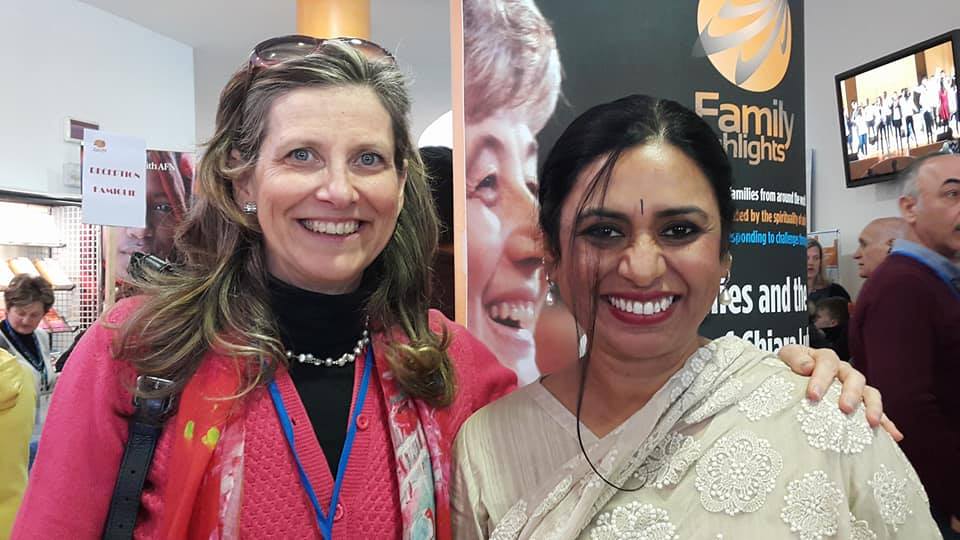
Mar 15, 2017 | Non categorizzato
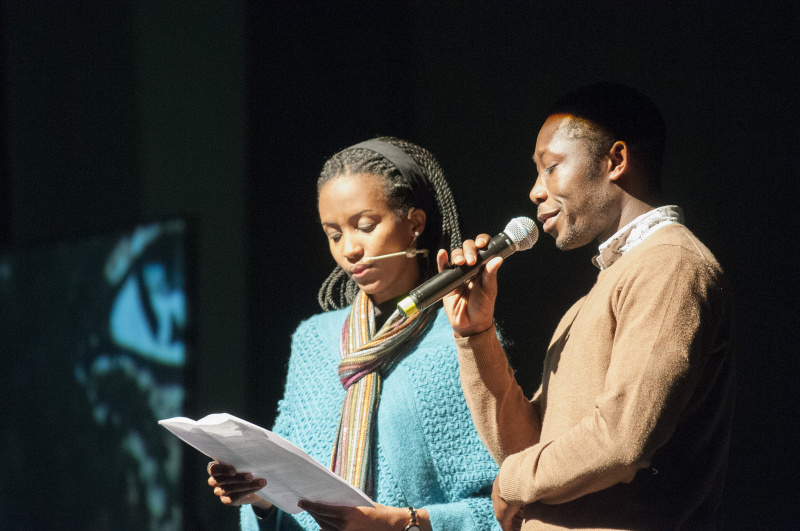 “Married life is like a boat,” said a family from Peru, “If you’re paddling by yourself, it’s tiring and you don’t get anywhere. Together you need to learn the art of reciprocity.” “We came because we feel the need to grow our family life and help others,” added a couple from Cameroon as they arrived at the FamilyHighlights meeting, which was held March 10-12 in Loppiano, Italy. The event, which marked the 50th anniversary of New Families, welcomed close to 1,000 families of different cultures and religions from 50 countries. It was connected to other gatherings worldwide held in memory of the ninth anniversary of Chiara Lubich’s passing. “Loving others as yourself, loving everyone, being the first to love, becoming one with others” –simple rules that the families of the international Loreto School emphasized as they welcomed everyone. This “art of loving” gives families the strength to renew themselves through trust, forgiveness, accountability, creativity, hospitality. These are seeds of communion that can even shed light on painful, challenging and traumatic situations. They show that “anger and distress do not have the last word,” said Gianni, who coordinates a group of 50 people who are separated. People’s stories and activities surfaced during the lively exchanges during the six workshops. One was for 150 children; other workshops were dedicated to couple dynamics in the various stages of life, educating children, and hospitality and solidarity with the disadvantaged in difficult situations. There were a few families from Syria, who found positive energy to face the fear and many difficulties caused by war. “That flower, which we attached at the end of the event, we’re also bringing it symbolically to other families and to everyone around us as a sign of fraternity and hope,” they said.
“Married life is like a boat,” said a family from Peru, “If you’re paddling by yourself, it’s tiring and you don’t get anywhere. Together you need to learn the art of reciprocity.” “We came because we feel the need to grow our family life and help others,” added a couple from Cameroon as they arrived at the FamilyHighlights meeting, which was held March 10-12 in Loppiano, Italy. The event, which marked the 50th anniversary of New Families, welcomed close to 1,000 families of different cultures and religions from 50 countries. It was connected to other gatherings worldwide held in memory of the ninth anniversary of Chiara Lubich’s passing. “Loving others as yourself, loving everyone, being the first to love, becoming one with others” –simple rules that the families of the international Loreto School emphasized as they welcomed everyone. This “art of loving” gives families the strength to renew themselves through trust, forgiveness, accountability, creativity, hospitality. These are seeds of communion that can even shed light on painful, challenging and traumatic situations. They show that “anger and distress do not have the last word,” said Gianni, who coordinates a group of 50 people who are separated. People’s stories and activities surfaced during the lively exchanges during the six workshops. One was for 150 children; other workshops were dedicated to couple dynamics in the various stages of life, educating children, and hospitality and solidarity with the disadvantaged in difficult situations. There were a few families from Syria, who found positive energy to face the fear and many difficulties caused by war. “That flower, which we attached at the end of the event, we’re also bringing it symbolically to other families and to everyone around us as a sign of fraternity and hope,” they said.  In her address, Focolare President Maria Voce invited those present to be mothers and fathers of humanity, personally contributing to “sustain and encourage universal fraternity.” Families, despite the imperfections and fragility that they share with the human condition, can offer the world a light and love that heals when they themselves have been renewed. Sharing from a number of groups, as well as the activities for couples, whether they were young, in crisis, separated and remarried, or widowed gave witness to the 50-year efforts of New Families on five continents. There were also projects and activities to support children and meet the needs of the most vulnerable. “Continue everything you are doing, and don’t get discouraged when it’s difficult or it seems like you’re all alone,” urged Voce. Families are called to respond to social issues, even by simply looking at the world through the eyes of a child, Dr. Vinu Aram explained. She is director at Shanti Ashram, with which the Focolare has had a close friendship and collaboration that has benefited many children and families in India through AFNonlus. “The effort that you are making here,” comments Fr. Paolo Gentili, who directs the Italian church’s family pastoral office, Ufficio Nazionale per la Pastorale della Famiglia, “contributes to build a church that is attentive to the good that the Spirit sows in the midst of weakness.” To do this is to “write Amoris Laetitia on the living pages of history.” After these many years, the need emerged to establish an advanced study center that is both international and interdisciplinary, a marriage of life and thought. This has begun as part of the Sophia University Institute, with the aim of deepening the understanding of family in the light of Chiara Lubich’s charism. “We need to move from the question, ‘Does someone love me?’ – our primal need for love –to ‘Am I loving someone?’ – which is the will to love,” said Professor Michele De Beni to a group of academics from various fields during FamilyHighlights. He is one of the coordinators of the study, “The pact of reciprocity in family life.” “The challenge of reciprocity,” he concluded, “is the founding premise of the group that, before it starts any research, it identifies with.” Giovanna Pieroni
In her address, Focolare President Maria Voce invited those present to be mothers and fathers of humanity, personally contributing to “sustain and encourage universal fraternity.” Families, despite the imperfections and fragility that they share with the human condition, can offer the world a light and love that heals when they themselves have been renewed. Sharing from a number of groups, as well as the activities for couples, whether they were young, in crisis, separated and remarried, or widowed gave witness to the 50-year efforts of New Families on five continents. There were also projects and activities to support children and meet the needs of the most vulnerable. “Continue everything you are doing, and don’t get discouraged when it’s difficult or it seems like you’re all alone,” urged Voce. Families are called to respond to social issues, even by simply looking at the world through the eyes of a child, Dr. Vinu Aram explained. She is director at Shanti Ashram, with which the Focolare has had a close friendship and collaboration that has benefited many children and families in India through AFNonlus. “The effort that you are making here,” comments Fr. Paolo Gentili, who directs the Italian church’s family pastoral office, Ufficio Nazionale per la Pastorale della Famiglia, “contributes to build a church that is attentive to the good that the Spirit sows in the midst of weakness.” To do this is to “write Amoris Laetitia on the living pages of history.” After these many years, the need emerged to establish an advanced study center that is both international and interdisciplinary, a marriage of life and thought. This has begun as part of the Sophia University Institute, with the aim of deepening the understanding of family in the light of Chiara Lubich’s charism. “We need to move from the question, ‘Does someone love me?’ – our primal need for love –to ‘Am I loving someone?’ – which is the will to love,” said Professor Michele De Beni to a group of academics from various fields during FamilyHighlights. He is one of the coordinators of the study, “The pact of reciprocity in family life.” “The challenge of reciprocity,” he concluded, “is the founding premise of the group that, before it starts any research, it identifies with.” Giovanna Pieroni
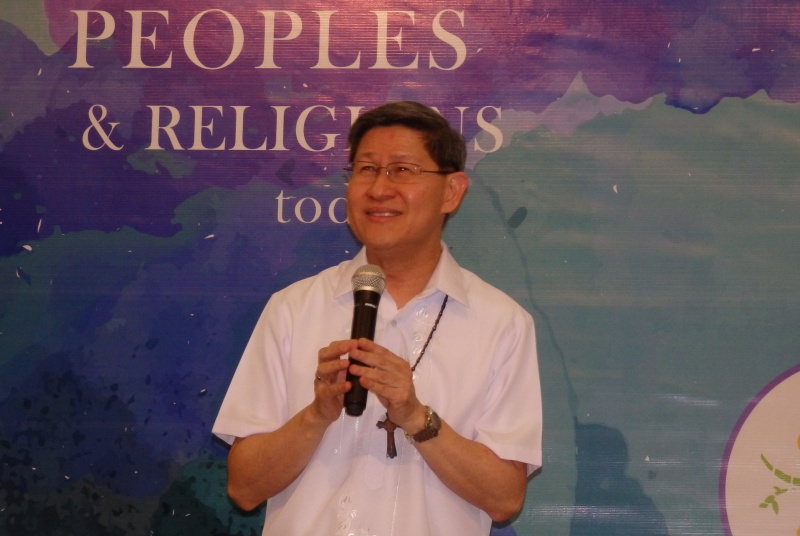
Mar 15, 2017 | Non categorizzato
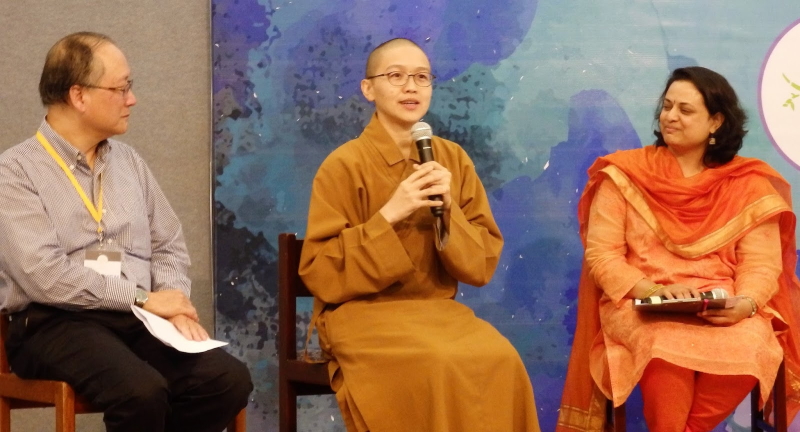 Lake Taal offers an incredibly beautiful panorama, and this year it seemed more so than usual. The temperature at the beginning of March was still perfect, and in the evenings a fresh breeze continued through the night until the mist rolled in around the time the sun rose. Every two years in this part of the Philippines (Tagaytay is a bit more than 40 km from Manila), there has been a course on interfaith dialogue, and this year the chosen title was “Harmony between peoples and religions today.” The School for Oriental Religions (SOR) was founded in 1982 by Chiara Lubich during her trip to Asia. Today the Mariapolis Pace in Tagaytay hosts a training center and various courses for young people, families, priests and seminarians. In addition to SOR, there are two social aid centers. Two hundred participants gathered at Tagaytay from March 2–5, from Pakistan, India, Myanmar, Thailand, Vietnam, China, Taiwan, Indonesia, Malaysia, Singapore, Korea, Japan and of course the Philippines. There were also some Europeans and South Americans. All saw the need for training in order to face the universal challenges that diversity brings. The course is planned to be repeated in participants’ respective countries.
Lake Taal offers an incredibly beautiful panorama, and this year it seemed more so than usual. The temperature at the beginning of March was still perfect, and in the evenings a fresh breeze continued through the night until the mist rolled in around the time the sun rose. Every two years in this part of the Philippines (Tagaytay is a bit more than 40 km from Manila), there has been a course on interfaith dialogue, and this year the chosen title was “Harmony between peoples and religions today.” The School for Oriental Religions (SOR) was founded in 1982 by Chiara Lubich during her trip to Asia. Today the Mariapolis Pace in Tagaytay hosts a training center and various courses for young people, families, priests and seminarians. In addition to SOR, there are two social aid centers. Two hundred participants gathered at Tagaytay from March 2–5, from Pakistan, India, Myanmar, Thailand, Vietnam, China, Taiwan, Indonesia, Malaysia, Singapore, Korea, Japan and of course the Philippines. There were also some Europeans and South Americans. All saw the need for training in order to face the universal challenges that diversity brings. The course is planned to be repeated in participants’ respective countries.  Cardinal Louis Antonio Tagle, archbishop of Manila and president of Caritas International, addressed the group. The Filipino cardinal opened the school by proposing the theme of harmony. Harmony: a typical Asian value. In order to achieve it, one needs to keep in mind that everything changes, and that as one moves forward, the more this change comes rapidly. “The only thing that doesn’t change is change itself,” Tagle affirmed. What is required, therefore, is to stay open and not have any fear of the unknown. In addition, one needs to know how to mediate the differences, accept opposing positions and the possibility of conflict, and to come through it greatly enriched by the differences. Tagle appealed to Catholics to play a lead role with active nonviolence. This is not about being weak, rather demonstrating that working for harmony requires people who have a prepared mind and heart for dialogue and diversity. The four days saw presentations of the successful dialogue between Christianity and the great Eastern religions in India, Thailand, Korea and Japan. Hindu-Christian dialogue was presented through life experiences, social collaboration, and shared projects between the Focolare and Gandhian movements in the south of India, including philosophical and theological reflections. Classic Hindu song was demonstrated and explained. All this occurred in an atmosphere of vital, spiritual clarity. Commonalities have surfaced after many years of dialogue, as well as differences, but these have not lessened the drive to take on dialogue’s challenges. This experience contributed to fulfilling the message of the Second Vatican Council: to build deep relationships with those of other faiths. A new way has begun that can contribute to social, political and global harmony. It is not an end in itself, but a step toward true fraternity.
Cardinal Louis Antonio Tagle, archbishop of Manila and president of Caritas International, addressed the group. The Filipino cardinal opened the school by proposing the theme of harmony. Harmony: a typical Asian value. In order to achieve it, one needs to keep in mind that everything changes, and that as one moves forward, the more this change comes rapidly. “The only thing that doesn’t change is change itself,” Tagle affirmed. What is required, therefore, is to stay open and not have any fear of the unknown. In addition, one needs to know how to mediate the differences, accept opposing positions and the possibility of conflict, and to come through it greatly enriched by the differences. Tagle appealed to Catholics to play a lead role with active nonviolence. This is not about being weak, rather demonstrating that working for harmony requires people who have a prepared mind and heart for dialogue and diversity. The four days saw presentations of the successful dialogue between Christianity and the great Eastern religions in India, Thailand, Korea and Japan. Hindu-Christian dialogue was presented through life experiences, social collaboration, and shared projects between the Focolare and Gandhian movements in the south of India, including philosophical and theological reflections. Classic Hindu song was demonstrated and explained. All this occurred in an atmosphere of vital, spiritual clarity. Commonalities have surfaced after many years of dialogue, as well as differences, but these have not lessened the drive to take on dialogue’s challenges. This experience contributed to fulfilling the message of the Second Vatican Council: to build deep relationships with those of other faiths. A new way has begun that can contribute to social, political and global harmony. It is not an end in itself, but a step toward true fraternity.
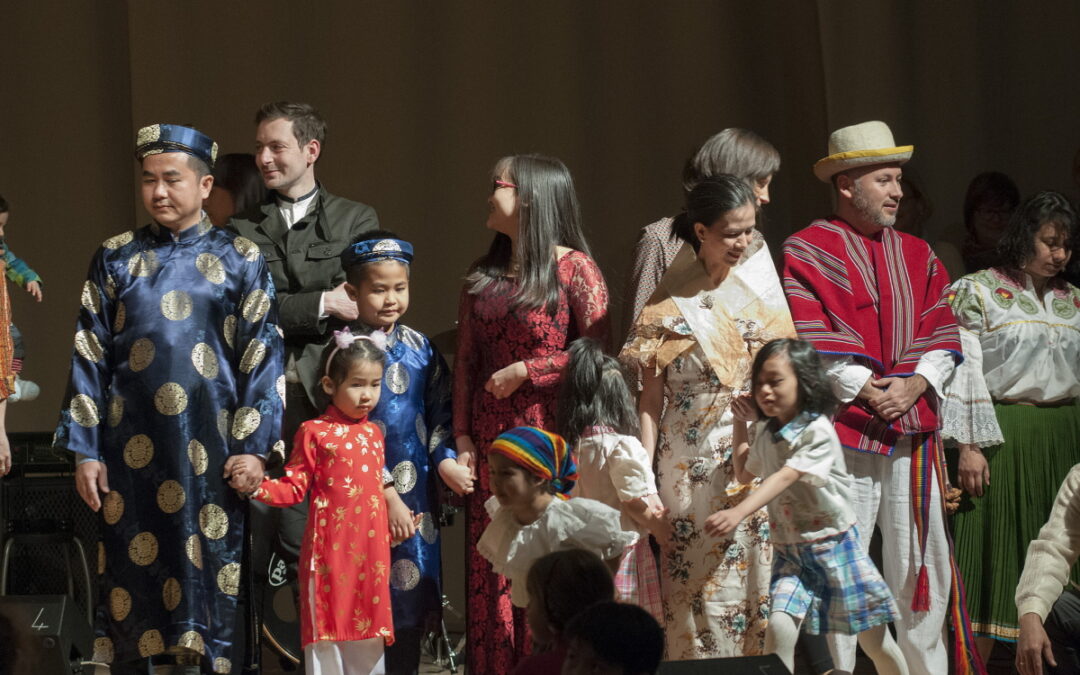
Mar 14, 2017 | Non categorizzato
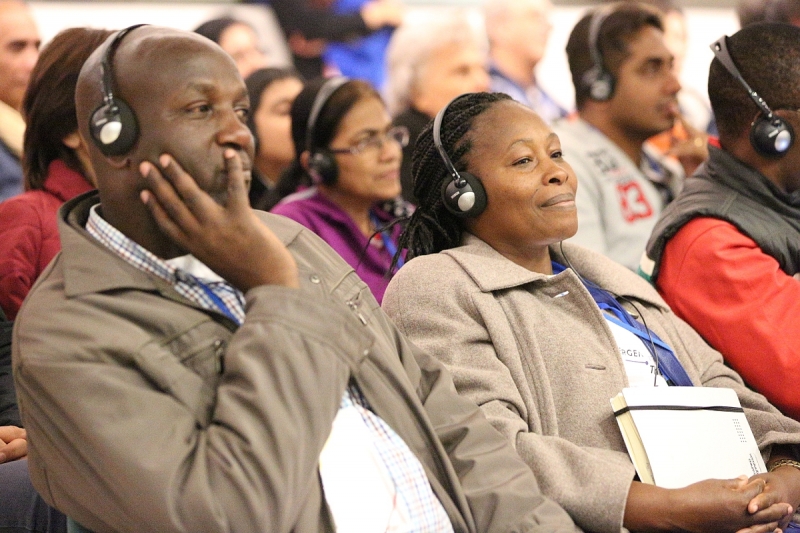
Copyright CSC Audiovisivi – Caris Mendes
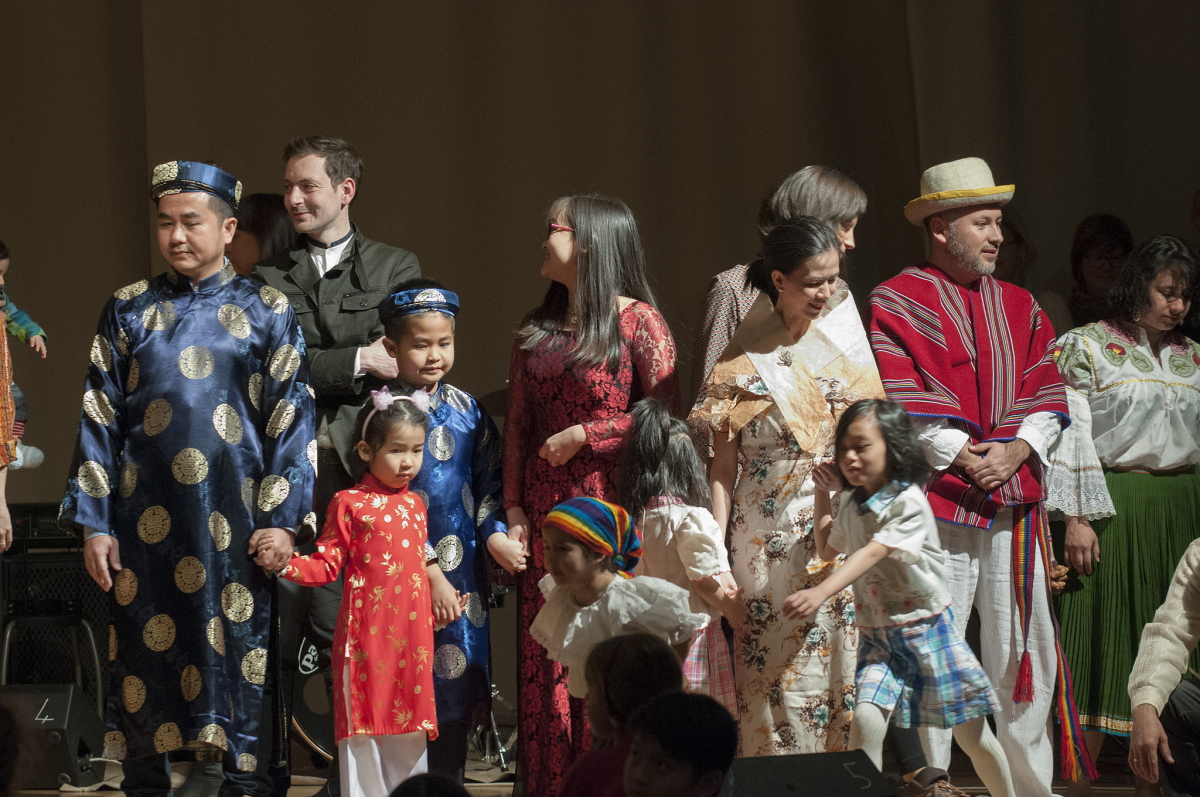
Photo: SIF – Loppiano
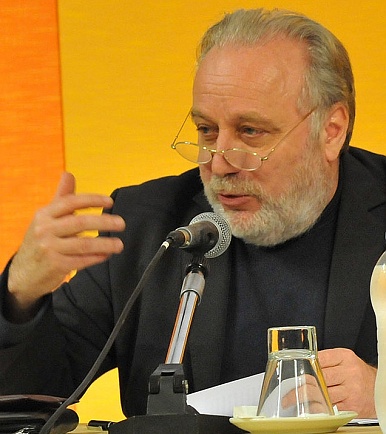
Mar 13, 2017 | Senza categoria
 A missionary Church that lives the Gospel and shares its life with the people of God: this is the direction his pontificate is moving towards, expressed clearly and prophetically in the Evangelii Gaudium. “This regards the progressive and hard-fought awareness, Piero Coda explains, “in line with the Church’s way of being present in the world, and its mission which has to be, from top to bottom, measured on Jesus’s style.” Four years after his election, we still have not recovered from the surprise his words, style and gestures arouse in us. We find it hard to realize what is happening. With radical clarity, he evidently inspires his ministry to live the “sine glossa” – with comments and compromises. We know that the formula is that of Francis of Assisi, which undoubtedly is why Jorge Maria Bergoglio felt God’s inspiration to take his name in this particular moment of the world’s history: to declare the spirit with which he wants to animate his service as the Bishop of Rome. He says this formula orders us not to measure the Gospel according to our own yardstick but to open our hearts and minds to the endless measures set by the Gospel. But isn’t this what the Church of all time is called to? So what novelty is there? To tell the truth, in every epoch conversion and reform assume a tone and pursue a path which, being the same as always, are those and only those that respond to the queries and wounds of the time we are called to live. If the conversion we were asked of yesterday, is in a sense, the very same as that which we are called to today, and yet today, it is something else compared to yesterday under the profile of its historical expression and implementation, it is because we are called to respond to God’s voice that reminds us precisely of those words of Jesus which the Spirit wishes to highlight and make us concretise now. It will be a response to the challenges and wounds of the present. It is a matter of a progressive and hard-fought awareness, according to which the style (that is, the content and form together) of the Church’s presence in the world and its mission have precisely been measured from top to bottom, according to the style of Jesus. I was really deeply impressed by the words which Romana Guarneri with her distinctive sense of history, said to me in a feeble voice just before she died: “Christianity still has to blossom.” I think that this affirmation can be interpreted in the sense that the time has come, in which from the roots of faith in Christ, a fresh, innovative flower can and must bloom, and which can amaze us again with its rare beauty, and give us new life. What in the end does 2,000 years of history mean? Has not Christianity expressed itself only in the existence and philosophy of Europe and the West? Of course, the expressions have been providential and precious, but other than definitive and absolute. In all that Pope Francis has put in motion in the Church, the real issue at stake is huge. It may even be decisive for the Church in the unprecedented season awaiting it. Vatican II was not only a point of arrival, but more of a point of departure. None of the extraordinary heritage of Tradition has been lost, but all has to be reset in a disarmed listening to the Holy Spirit’s inspiration today. What God expects of the Church today – he said, not by chance on the 50th anniversary of the institution of the Bishops’ Synod, is enclosed in one word: synod. It is a walking together of men, women, youths, adults, and the elderly. It includes the various vocations and charisms in the Church, and different Churches, cultures religions, and visions of the world. All are involved – no one is excluded, starting from those who in some way are discarded. The mystical sense of “we” is the perfume, truth and measure of justice of a Church that “goes forth.” It is the yeast of that new cultural paradigm of that urgently postulated and invoked epochal change we are called to be the protagonists of, under penalty of the collapse and disintegration of the human adventure. Four years from his election we can say with simplicity, conviction and gratitude: Pope Francis is a gift for all of us, not only for the Catholics. This is because he urges us to become men and women that as the people of God, choose the morning star of the pathway, and as our existential and liberating code, nothing else but the beautiful, good, and joyful news of the Gospel. It will light up the fire – today as 2000 years ago – in the heart of the world.
A missionary Church that lives the Gospel and shares its life with the people of God: this is the direction his pontificate is moving towards, expressed clearly and prophetically in the Evangelii Gaudium. “This regards the progressive and hard-fought awareness, Piero Coda explains, “in line with the Church’s way of being present in the world, and its mission which has to be, from top to bottom, measured on Jesus’s style.” Four years after his election, we still have not recovered from the surprise his words, style and gestures arouse in us. We find it hard to realize what is happening. With radical clarity, he evidently inspires his ministry to live the “sine glossa” – with comments and compromises. We know that the formula is that of Francis of Assisi, which undoubtedly is why Jorge Maria Bergoglio felt God’s inspiration to take his name in this particular moment of the world’s history: to declare the spirit with which he wants to animate his service as the Bishop of Rome. He says this formula orders us not to measure the Gospel according to our own yardstick but to open our hearts and minds to the endless measures set by the Gospel. But isn’t this what the Church of all time is called to? So what novelty is there? To tell the truth, in every epoch conversion and reform assume a tone and pursue a path which, being the same as always, are those and only those that respond to the queries and wounds of the time we are called to live. If the conversion we were asked of yesterday, is in a sense, the very same as that which we are called to today, and yet today, it is something else compared to yesterday under the profile of its historical expression and implementation, it is because we are called to respond to God’s voice that reminds us precisely of those words of Jesus which the Spirit wishes to highlight and make us concretise now. It will be a response to the challenges and wounds of the present. It is a matter of a progressive and hard-fought awareness, according to which the style (that is, the content and form together) of the Church’s presence in the world and its mission have precisely been measured from top to bottom, according to the style of Jesus. I was really deeply impressed by the words which Romana Guarneri with her distinctive sense of history, said to me in a feeble voice just before she died: “Christianity still has to blossom.” I think that this affirmation can be interpreted in the sense that the time has come, in which from the roots of faith in Christ, a fresh, innovative flower can and must bloom, and which can amaze us again with its rare beauty, and give us new life. What in the end does 2,000 years of history mean? Has not Christianity expressed itself only in the existence and philosophy of Europe and the West? Of course, the expressions have been providential and precious, but other than definitive and absolute. In all that Pope Francis has put in motion in the Church, the real issue at stake is huge. It may even be decisive for the Church in the unprecedented season awaiting it. Vatican II was not only a point of arrival, but more of a point of departure. None of the extraordinary heritage of Tradition has been lost, but all has to be reset in a disarmed listening to the Holy Spirit’s inspiration today. What God expects of the Church today – he said, not by chance on the 50th anniversary of the institution of the Bishops’ Synod, is enclosed in one word: synod. It is a walking together of men, women, youths, adults, and the elderly. It includes the various vocations and charisms in the Church, and different Churches, cultures religions, and visions of the world. All are involved – no one is excluded, starting from those who in some way are discarded. The mystical sense of “we” is the perfume, truth and measure of justice of a Church that “goes forth.” It is the yeast of that new cultural paradigm of that urgently postulated and invoked epochal change we are called to be the protagonists of, under penalty of the collapse and disintegration of the human adventure. Four years from his election we can say with simplicity, conviction and gratitude: Pope Francis is a gift for all of us, not only for the Catholics. This is because he urges us to become men and women that as the people of God, choose the morning star of the pathway, and as our existential and liberating code, nothing else but the beautiful, good, and joyful news of the Gospel. It will light up the fire – today as 2000 years ago – in the heart of the world.
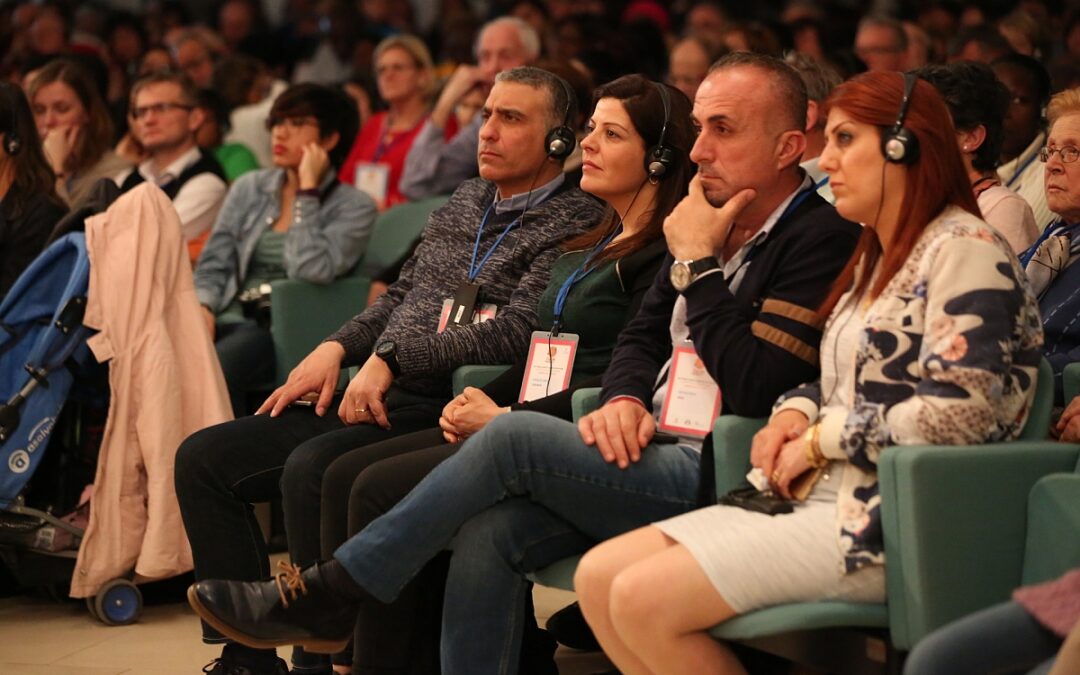
Mar 11, 2017 | Non categorizzato
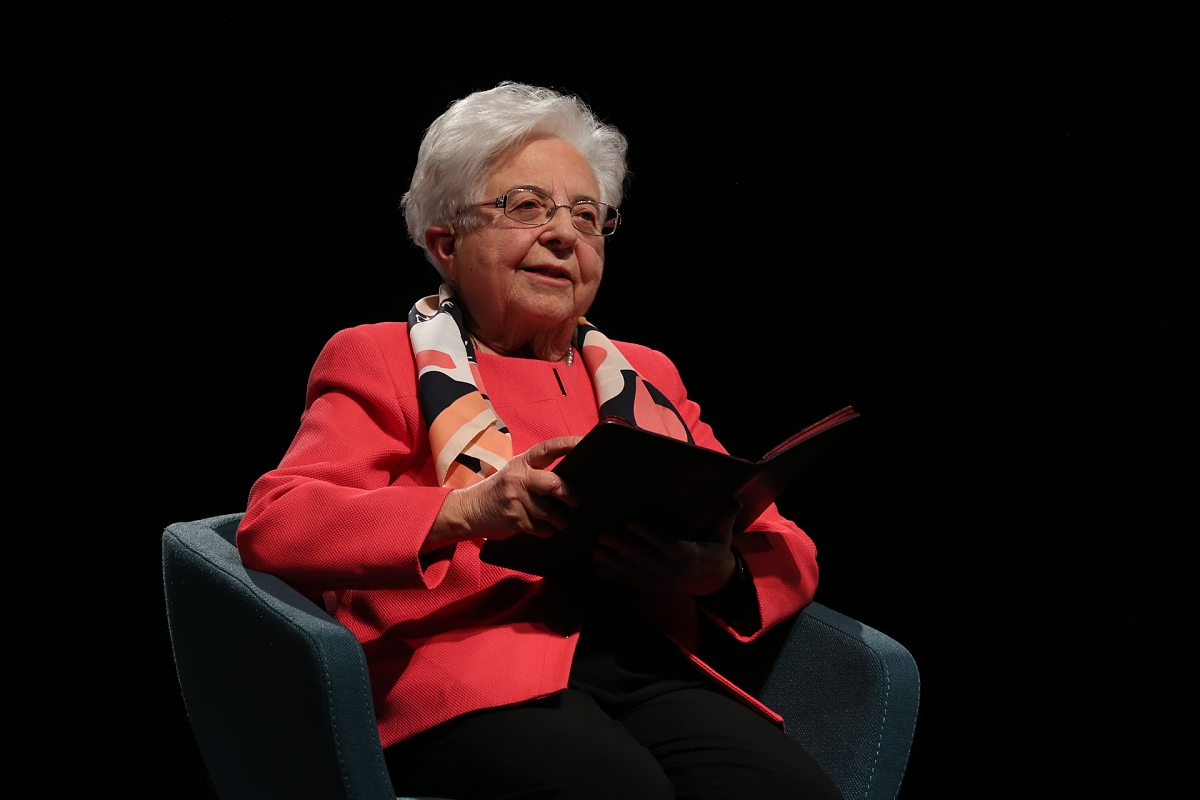
Photo credit © Caris Mendes – Archivio CSC Audiovisivi
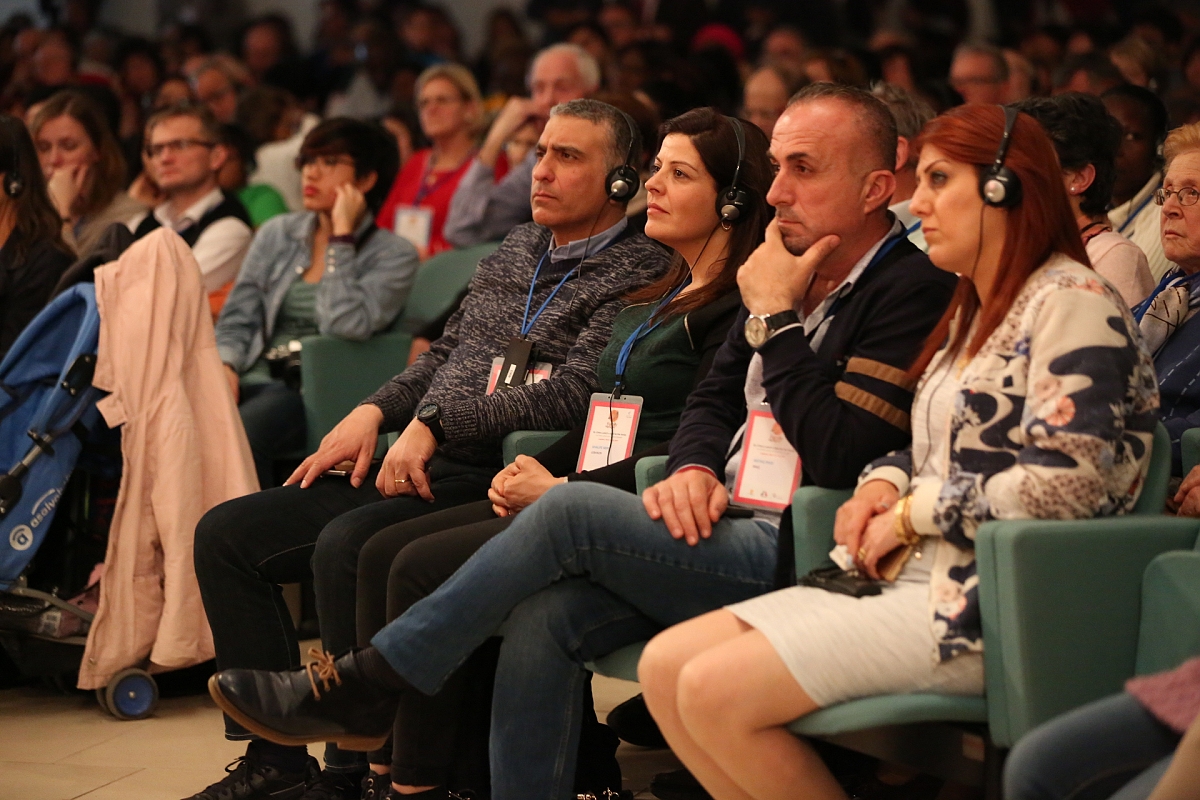
Photo credit © Caris Mendes – Archivio CSC Audiovisivi
Mar 10, 2017 | Non categorizzato
Dated March 9, 2017 the Official Edict from the Bishop of Albano, Italy, Marcello Semeraro: “His authentic Christian witness is a constant invitation to the collective holiness, which finds maximum expression in reciprocal assistance while following the same path of holiness. Becoming saints out of love for one’s neighbours.” The Volunteers of God of the Focolare Moviment joyfully welcome the bishop’s initiative. Read a short biography here Contact: postulazionedomenicomangano@focolare.org
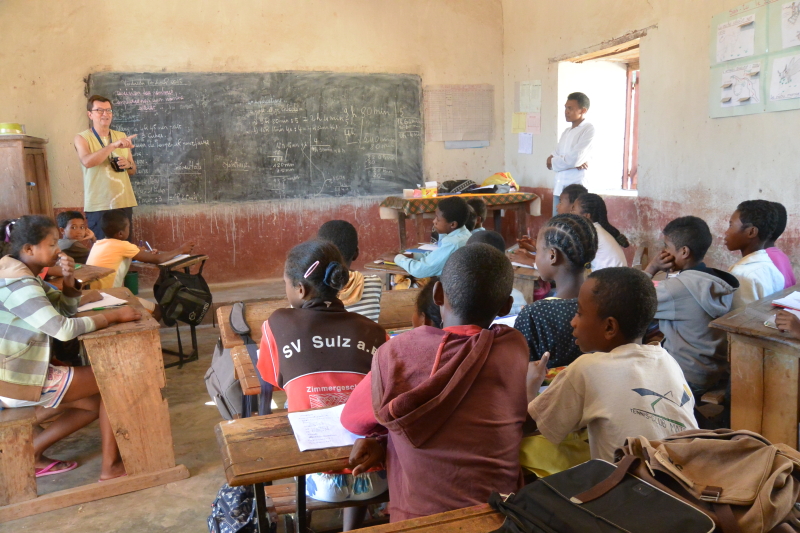
Mar 10, 2017 | Non categorizzato
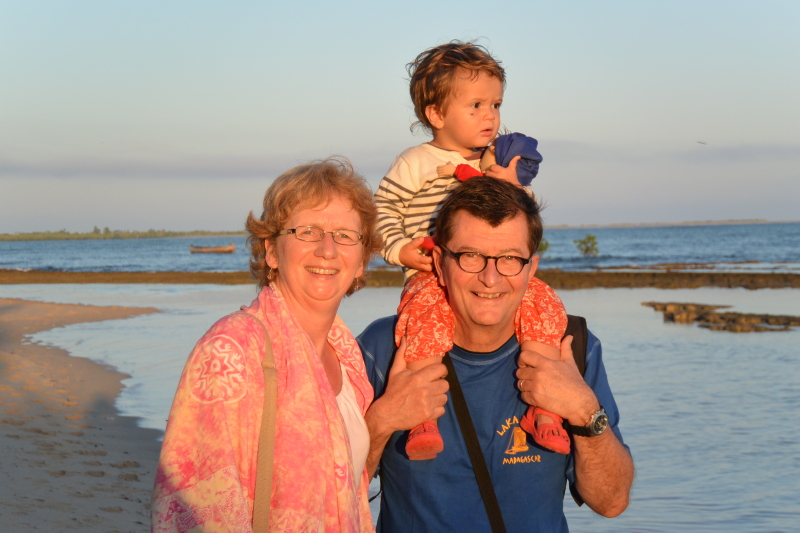 The long-awaited time for retirement arrives for Eric, who lives in Belgium and has spent 37 years teaching at an elementary school. After working for a living with the children, Eric asks what could be done for those who did not receive an education, for those who live in difficult situations and in distant lands. After all, all children are equal, have the same curious eyes and the same infectious laugh. This is how, together with his wife Lut, he decides to commit his free time to solidarity action. Eric, already a supporter of a child, began to promote the AFNonlus programs for long-distance support. With the help of the youngest of his daughters, Maria-Laetitia, he involved friends and acquaintances, helping to make more alive in each one the need to also donate a small sum for a noble cause. “For us, as for many people, the situation of many children in the world is unbearable: they are the first victims of all violence and poverty,” says Eric. The couple receive many opportunities and experiences for thought: a young father from Romania said that thanks to long-distance support he was able to finish his studies, which have allowed him to get a job and start a family. A woman who has lived for many years in Congo, being in contact with the Petite Flamme project has been able experience first-hand the help that long-distance support offers children. These testimonials feed in Eric and Lut the certainty of having committed themselves to something big.
The long-awaited time for retirement arrives for Eric, who lives in Belgium and has spent 37 years teaching at an elementary school. After working for a living with the children, Eric asks what could be done for those who did not receive an education, for those who live in difficult situations and in distant lands. After all, all children are equal, have the same curious eyes and the same infectious laugh. This is how, together with his wife Lut, he decides to commit his free time to solidarity action. Eric, already a supporter of a child, began to promote the AFNonlus programs for long-distance support. With the help of the youngest of his daughters, Maria-Laetitia, he involved friends and acquaintances, helping to make more alive in each one the need to also donate a small sum for a noble cause. “For us, as for many people, the situation of many children in the world is unbearable: they are the first victims of all violence and poverty,” says Eric. The couple receive many opportunities and experiences for thought: a young father from Romania said that thanks to long-distance support he was able to finish his studies, which have allowed him to get a job and start a family. A woman who has lived for many years in Congo, being in contact with the Petite Flamme project has been able experience first-hand the help that long-distance support offers children. These testimonials feed in Eric and Lut the certainty of having committed themselves to something big.  “Our dream,” says Eric, “was to find at least 10 people over the course of 2016 who would take the step of supporting a child. It seemed like a mountain because in three years we’d found only two supporters (namely us and my father!).” But clearly the commitment and time spent promoting the news from the various programmes paid off. A couple decides to support a Haitian child and to continue the action of solidarity. Even Eric and Lut’s children want to do their bit. As well a man with a friend of his, a nephew who lives in Switzerland, glad to be able to ”do something for humanity”, a young couple of newlyweds, a businessman who wants to support a child with his company, a young dad, and Lut’s parents who want to support a child while living in a nursing home. And so on, so many beautiful experiences around this kind of support! The projects for disadvantaged children around the world are moving forward thanks to supporters, their sensitivity and their support. In addition to Eric and Lut, we also find Enzo and Fiorenza, whose support has accompanied Jessica, a Brazilian girl, for most of her life. But assuming a long- distance support means above all to create a bond with the child, a thread of solidarity that runs through the world to connect distant countries. That’s why now as an adult Jessica wanted to contact her supporters for Christmas, offering them the best gift that can be placed under the tree: the gratitude for a life redeemed from poverty. Source: AFNonlus – Spazio Famiglia
“Our dream,” says Eric, “was to find at least 10 people over the course of 2016 who would take the step of supporting a child. It seemed like a mountain because in three years we’d found only two supporters (namely us and my father!).” But clearly the commitment and time spent promoting the news from the various programmes paid off. A couple decides to support a Haitian child and to continue the action of solidarity. Even Eric and Lut’s children want to do their bit. As well a man with a friend of his, a nephew who lives in Switzerland, glad to be able to ”do something for humanity”, a young couple of newlyweds, a businessman who wants to support a child with his company, a young dad, and Lut’s parents who want to support a child while living in a nursing home. And so on, so many beautiful experiences around this kind of support! The projects for disadvantaged children around the world are moving forward thanks to supporters, their sensitivity and their support. In addition to Eric and Lut, we also find Enzo and Fiorenza, whose support has accompanied Jessica, a Brazilian girl, for most of her life. But assuming a long- distance support means above all to create a bond with the child, a thread of solidarity that runs through the world to connect distant countries. That’s why now as an adult Jessica wanted to contact her supporters for Christmas, offering them the best gift that can be placed under the tree: the gratitude for a life redeemed from poverty. Source: AFNonlus – Spazio Famiglia

Mar 9, 2017 | Non categorizzato
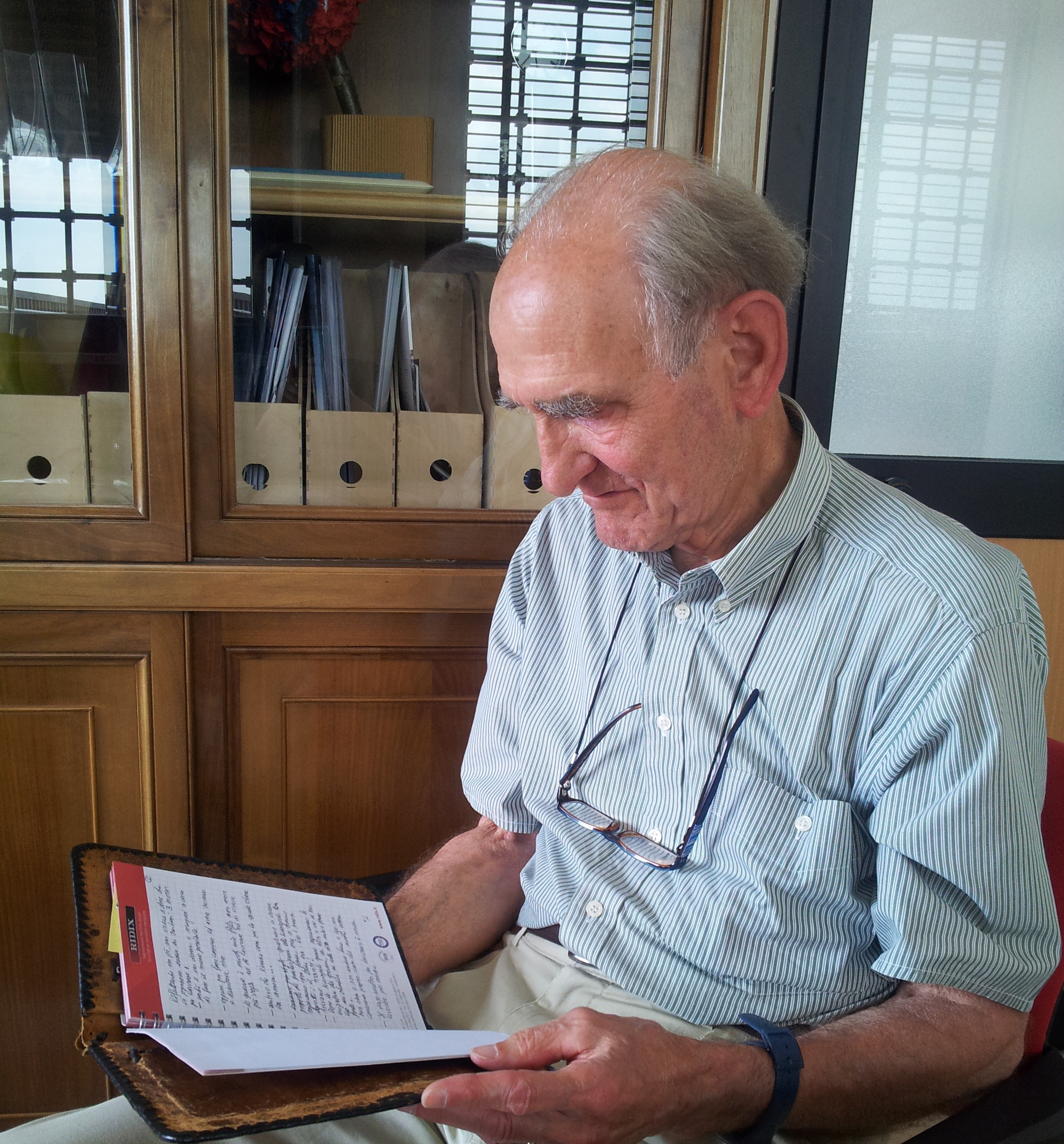 While waiting to meet Pope Francis in Paul VI Hall the anticipation of the 1200 members of the Economy of Communion (EoC) was calmed by several testimonies from entrepreneurs including Clem Fritschi who began like this: “Mine is not the story of a successful man of business, but a love story. After finishing my studies in Switzerland I worked as a warehouseman in London, to learn English. That’s where I met Margherita. We fell in love and, since she’s from Turin, I decided to find work in Italy. Two years later we got married and had two children. All of a sudden the company I was working for decided to close down. Then a few colleagues and I put together our settlements in order to keep the place going.” That’s how Ridix began, a company that has been offering cutting-edge products on the Italian market in the field of precision engineering since 1969.
While waiting to meet Pope Francis in Paul VI Hall the anticipation of the 1200 members of the Economy of Communion (EoC) was calmed by several testimonies from entrepreneurs including Clem Fritschi who began like this: “Mine is not the story of a successful man of business, but a love story. After finishing my studies in Switzerland I worked as a warehouseman in London, to learn English. That’s where I met Margherita. We fell in love and, since she’s from Turin, I decided to find work in Italy. Two years later we got married and had two children. All of a sudden the company I was working for decided to close down. Then a few colleagues and I put together our settlements in order to keep the place going.” That’s how Ridix began, a company that has been offering cutting-edge products on the Italian market in the field of precision engineering since 1969.  “In 1974 my family and I took part in a Focolare Meeting in Bergamo, Italy. It wasn’t a happy time, we had just lost our first son10 years old, in an accident. The encounter with the spirituality of unity was like a cure-all for us, to the point that even amidst our tears Margherita and I said to each other that we had met God-Love. We went home with only one word in mind, the verb: LOVE. Love everyone, love even at work. One of the young men that I met in Bergamo asked if there would be a position for him in the business I started. That’s how Ugo, then Paolo, and then Michele got on board. All three became associates. The company slogan is: “Seek first the Kingdom of God and his riteousness, and the rest will be given to you as well.” All of us want our relationship to be deep and sincere. We allow each other to make mistakes and to argue, but to experience the presence of God we also have to hurry ourselves to recompose unity with one another. The success is overwhelming: Today there are 9 associates and 70 collaborators, many highly qualified in selling, contract signing, commissioning, maintenance and management. We have an annual turnover of more than 30 million Euros. Loving one another and trying to love everyone, even our enemies: that’s the success of Ridix that I will try to describe with a few short phrases.
“In 1974 my family and I took part in a Focolare Meeting in Bergamo, Italy. It wasn’t a happy time, we had just lost our first son10 years old, in an accident. The encounter with the spirituality of unity was like a cure-all for us, to the point that even amidst our tears Margherita and I said to each other that we had met God-Love. We went home with only one word in mind, the verb: LOVE. Love everyone, love even at work. One of the young men that I met in Bergamo asked if there would be a position for him in the business I started. That’s how Ugo, then Paolo, and then Michele got on board. All three became associates. The company slogan is: “Seek first the Kingdom of God and his riteousness, and the rest will be given to you as well.” All of us want our relationship to be deep and sincere. We allow each other to make mistakes and to argue, but to experience the presence of God we also have to hurry ourselves to recompose unity with one another. The success is overwhelming: Today there are 9 associates and 70 collaborators, many highly qualified in selling, contract signing, commissioning, maintenance and management. We have an annual turnover of more than 30 million Euros. Loving one another and trying to love everyone, even our enemies: that’s the success of Ridix that I will try to describe with a few short phrases.
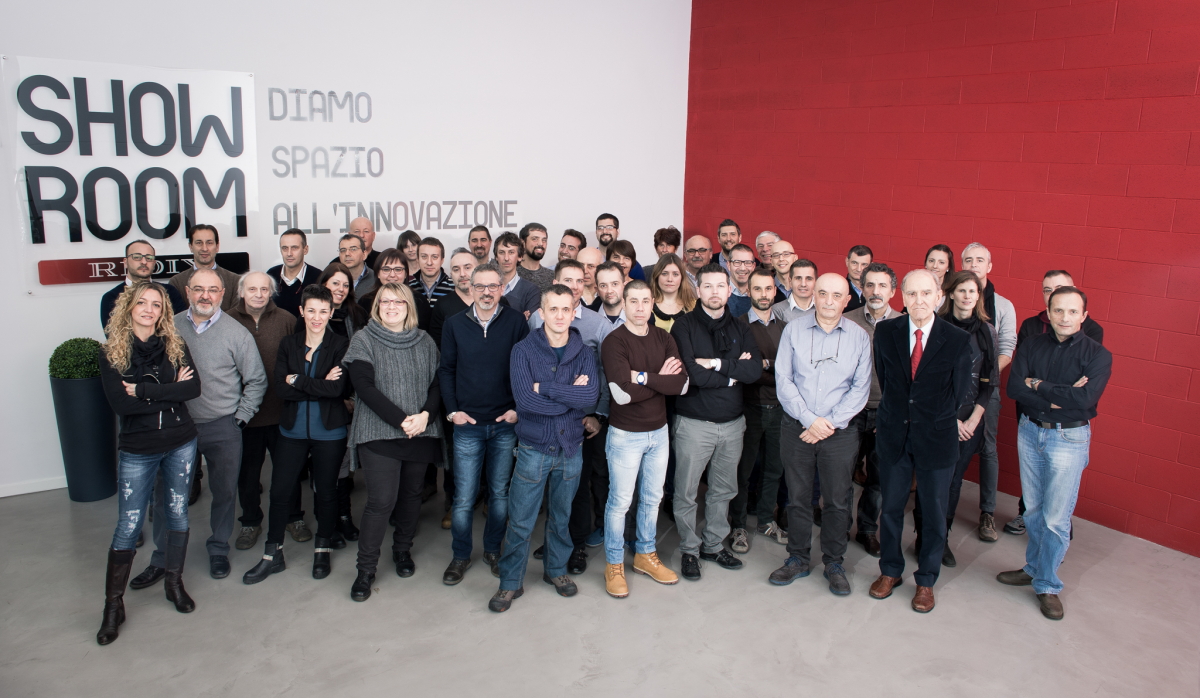 Inclusion of people affected by addiction or in difficult relationship problems, people from immimgrant backgrounds and from poor countries.
Inclusion of people affected by addiction or in difficult relationship problems, people from immimgrant backgrounds and from poor countries.- Stable employment opportunities for young people.
- Overcoming moments of crisis through a 20% reduction in everyone’s salary, partners included, so that jobs don’t have to be lost. The sense of belonging that is generated with this practice always turns out to be a factor of success.
- Following the takeover of a client by a multinational, there was a loss of 20% of the annual turnover. Because of a totally unforseen occurance, in one week the entire amount was recovered without losing a single employee.
- In seemingly irresovlable situations, the correct inspiration arrived at just the right moment to simplify everything and overcome the difficulty.
- The ability to support and carry out new entrepreneurial initiatives.
One part of the profit is donated to the poor. Thanks to this sharing, Muslim teachers on the outskirts of Tangeri, Morocco opened a kindergarten in a garage that allowed 40 children to be ready for primary school. The secret to our success? Communion. Which means transparency, sincerity, truth even when it is hard to say, devoting time to building positive relationships. The “promised land” we’re all heading for is a company where everyone is happy. Happy employees because the company is healty and the atmosphere collaborative. Happy clients because of just relationship betewen quality and product pricing, and purchasing services. Happy providers, because of long and prolific collaboration. We may be tired at the end of a day, but we’re happy and satisfied because we’ve done our job well.
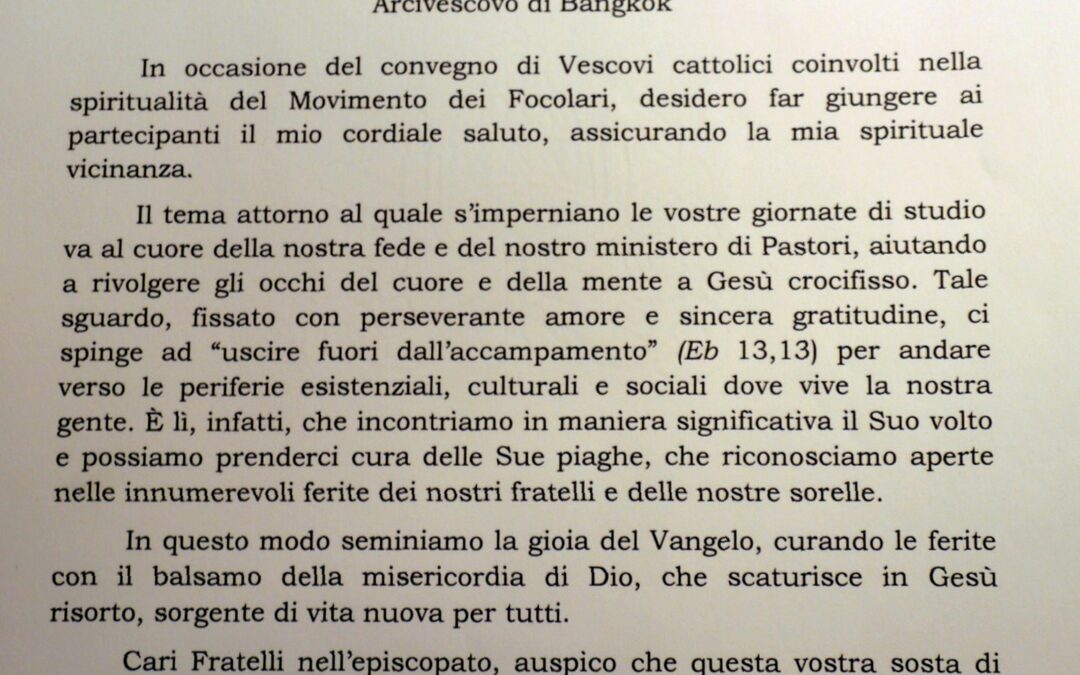
Mar 8, 2017 | Non categorizzato
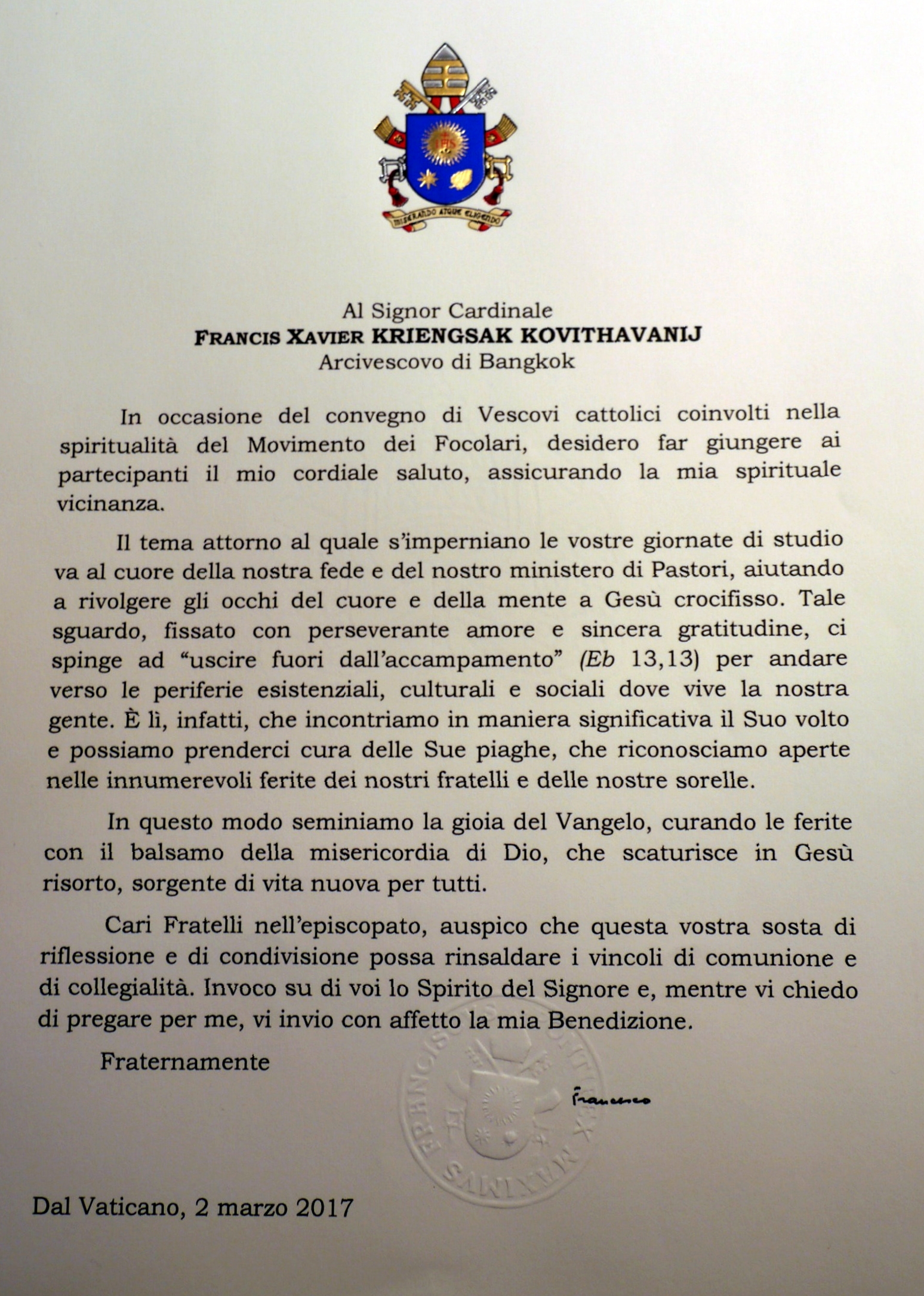 The conference of Bishop Friends of the Focolare, which is currently underway at the Mariapolis Centre of Castel Gandolfo, is titled: “If the world only knew him…” referring to the mystery of the abandonment of Jesus on the cross as the key to encounter among cultures. In a hand-signed message Pope Francis wished to express his closeness and encouragement to entering more deeply into this topic that urges us to “go towards the existential, cultural and social peripheries” and to “strengthen the bonds of communion and collegiality.” The message, which is addressed to the moderator of the gathering, Archbishop Francis X. Kovithavanij, had great impact and aroused much gratitude among the bishops. _____________________________________
The conference of Bishop Friends of the Focolare, which is currently underway at the Mariapolis Centre of Castel Gandolfo, is titled: “If the world only knew him…” referring to the mystery of the abandonment of Jesus on the cross as the key to encounter among cultures. In a hand-signed message Pope Francis wished to express his closeness and encouragement to entering more deeply into this topic that urges us to “go towards the existential, cultural and social peripheries” and to “strengthen the bonds of communion and collegiality.” The message, which is addressed to the moderator of the gathering, Archbishop Francis X. Kovithavanij, had great impact and aroused much gratitude among the bishops. _____________________________________
To Cardinal
FRANCIS XAVIER KRIENGSAK KOVITHAVANIJ
Archbishop of Bangkok
“On the occasion of the meeting of Catholic Bishops engaged with the spirituality of the Focolare Movement, I wish to extend my cordial greetings to all of you, assuring you of my spiritual closeness. The theme around which your days together revolve goes to the very heart of our faith and ministry as pastors, helping to turn the eyes of the heart and of the mind to Jesus crucified. This gaze, fixed with persevering love and sincere gratitude, urges us to “go to him outside the camp” (Heb 13:13), to the existential, cultural and social peripheries where our people live. It is there, in fact, that we meet His face in a way that is significant, and take care of His wounds which we find gaping in the countless wounds of our brothers and sisters. In this way we will sow the joy of the Gospel, caring for the wounds with the balm of God’s mercy which flows from the Risen Jesus, who is the source of life for everybody. Dear Brothers in the episcopate, I wish you that this pause for reflection and sharing may strengthen the bonds of communion and collegiality. I invoke the Spirit of the Lord upon you and, as I ask you to pray for me, I affectionately extend my Blessing to you.”
Fraternally,
Francis
Vatican, 2 March 2017
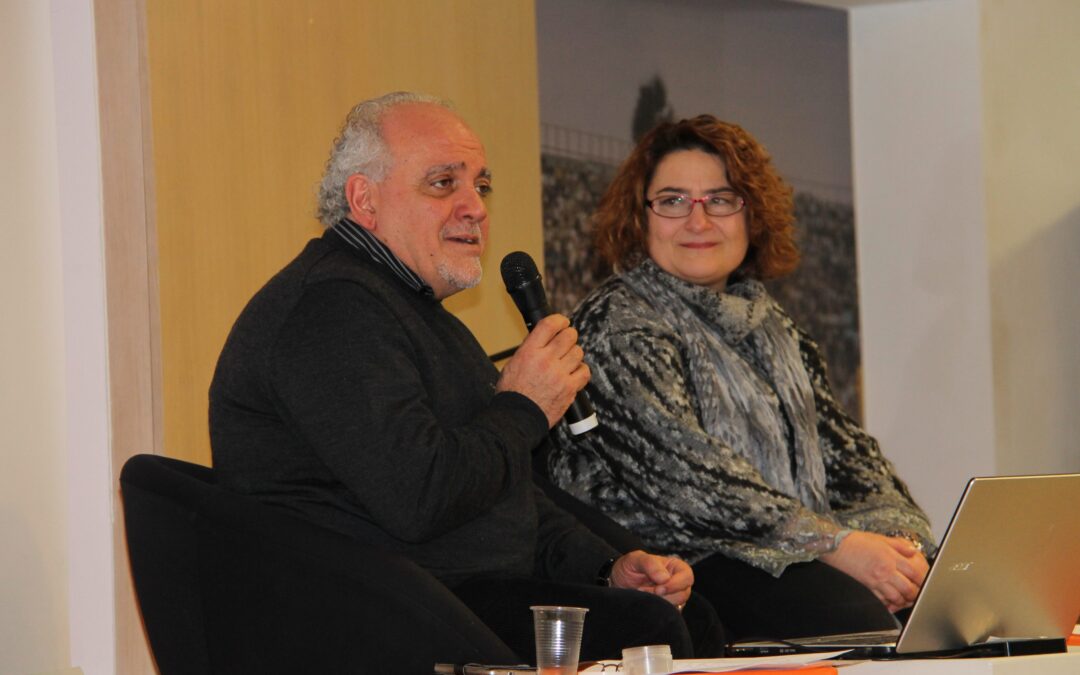
Mar 8, 2017 | Non categorizzato
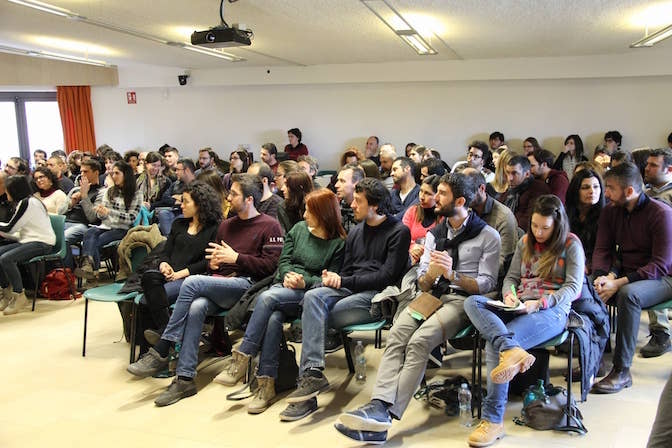 Should anyone have their doubts, they should watch some video from the past few days to re-find their faith. They would see people who still want a family, can make a serious commitment to a “forever love,” search for solid values and share them, and hold the deep, touching feelings that young people have. Here were the ingredients for a remarkable three-day event: 75 engaged couples, 11 families, a special place, an openness to look to the future and put it in play, sharing experiences and dreams, consulting with experts, and points of light from the words of Pope Francis and the spirituality of unity. The February 10–12 meeting brought engaged couples from all over Italy (with some representatives from Spain, England, Belgium and Serbia) to Loppiano, the Focolare little city near Florence. This was just one course in a program for young couples by the New Families Movement (part of the larger Focolare Movement) in Italy. The challenge taken up by the course organizers was not a simple one; the well-conceived program aimed to throw some light on the difficulties that come with living as a couple. Participants were able to take in a number of reflections, starting from the words of Chiara Lubich on the possibility that a couple could be “seeds of communion for the third millennium.”
Should anyone have their doubts, they should watch some video from the past few days to re-find their faith. They would see people who still want a family, can make a serious commitment to a “forever love,” search for solid values and share them, and hold the deep, touching feelings that young people have. Here were the ingredients for a remarkable three-day event: 75 engaged couples, 11 families, a special place, an openness to look to the future and put it in play, sharing experiences and dreams, consulting with experts, and points of light from the words of Pope Francis and the spirituality of unity. The February 10–12 meeting brought engaged couples from all over Italy (with some representatives from Spain, England, Belgium and Serbia) to Loppiano, the Focolare little city near Florence. This was just one course in a program for young couples by the New Families Movement (part of the larger Focolare Movement) in Italy. The challenge taken up by the course organizers was not a simple one; the well-conceived program aimed to throw some light on the difficulties that come with living as a couple. Participants were able to take in a number of reflections, starting from the words of Chiara Lubich on the possibility that a couple could be “seeds of communion for the third millennium.” 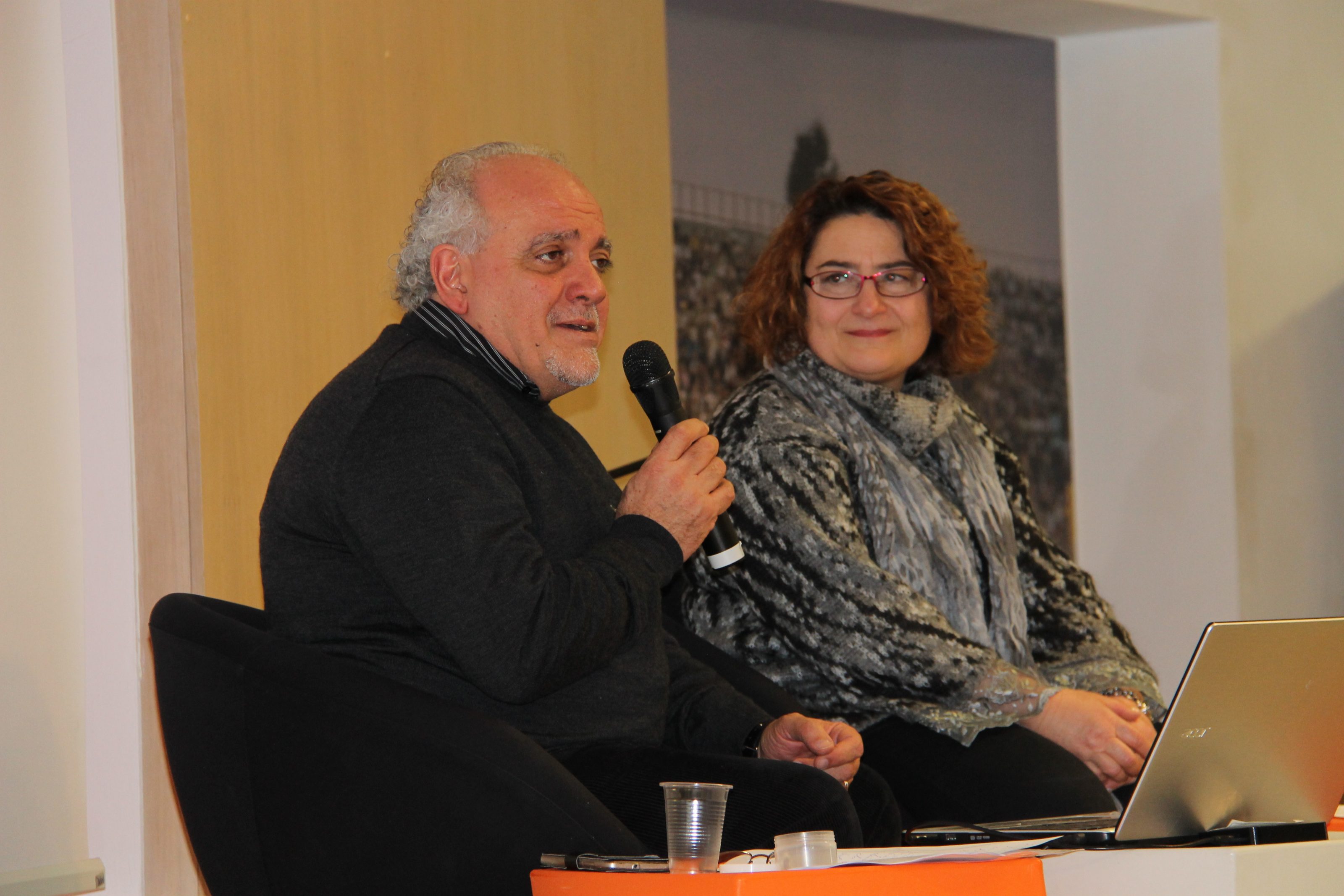 Experts covered themes such as engagement, the sacrament of marriage and family life. Among them were Rino and Rita Ventriglia, neurologist-psychotherapist and gynecologist-sex specialist; the Vacchers, a married couple from the Forum delle Associazioni Familiari of Treviso; theologian Father Stefano Isolan; and psychologist Inaki Guerrero. These topics were enriched by experiences from the experts and some of the families hosting the event. Experiences particularly resonated from a number of international families attending a course at Loppiano’s Loreto School for a few months. Their stories of a lifestyle that is simple, Gospel-inspired, and full of faith in God’s providence showed that it could be widely imitated and accessible to many. There were many opportunities for exchange and dialogue, both for each couple and with other participants. There were also special evenings that included a romantic dinner, a festive paella and a tour of the little city. By the end of the three days, it became hard to leave, for everyone to return to their cities. Many people’s impressions, other than a deep joy, were to have experienced something fundamental, both personally and as a couple. Many said they found new energy and tools to build a future on solid foundations, and to give the world a taste of the beauty that it is to be family. Source: Famiglie Nuove online
Experts covered themes such as engagement, the sacrament of marriage and family life. Among them were Rino and Rita Ventriglia, neurologist-psychotherapist and gynecologist-sex specialist; the Vacchers, a married couple from the Forum delle Associazioni Familiari of Treviso; theologian Father Stefano Isolan; and psychologist Inaki Guerrero. These topics were enriched by experiences from the experts and some of the families hosting the event. Experiences particularly resonated from a number of international families attending a course at Loppiano’s Loreto School for a few months. Their stories of a lifestyle that is simple, Gospel-inspired, and full of faith in God’s providence showed that it could be widely imitated and accessible to many. There were many opportunities for exchange and dialogue, both for each couple and with other participants. There were also special evenings that included a romantic dinner, a festive paella and a tour of the little city. By the end of the three days, it became hard to leave, for everyone to return to their cities. Many people’s impressions, other than a deep joy, were to have experienced something fundamental, both personally and as a couple. Many said they found new energy and tools to build a future on solid foundations, and to give the world a taste of the beauty that it is to be family. Source: Famiglie Nuove online
https://vimeo.com/207262255

Mar 7, 2017 | Non categorizzato
 Every 14 March, the death anniversary of Chiara Lubich is for the Focolare communities an occasion to get together, celebrate, bear witness, and renew their commitment. This event will be echoed worldwide also in 2017, from Singapore to Vilnius (Lithuania), Sydney (Australia) to Houston (USA), and Manaus (Brazil) to Bujumbura (Burundi). It will be a sort of constellation that will literally embrace the world and revive Chiara’s testament to «Be a family.» The theme that will be taken up this year is precisely that of the family, against the background of the dynamics opened by the Bishop’s Synod and subsequent apostolic exhortation Amoris laetitia of Pope Francis. Chiara saw the family as a «seed of communion for humanity of the third millennium,» as she said in her message at the Family fest of 1993, in the hope that «the inherent values that are part of its nature – gratuitousness, spirit of service, and reciprocity – may be transferred to the entire human family.» It is in this light that we can interpret the initiatives that will be undertaken throughout 2017 in various parts of the world. The finality is to gather the pathway of life and ideas during the 50 years of the New Family Moviment, and uphold the anthropological and universal value of the families in the perspective of the “human family.” The first meeting on the theme The family as a source of hope and joy was held in Cairo, Egypt, with over 300 participants: a programme of joy and testimonials, which evidenced the leading role of the youth and relationships between the generations in families. The event in Panama Being a family always took place on 12 February: in a society characterised by fast-paced activities, over 400 people decided to meet in the city park for a day of dialogue, games and walks. An event with a global atmosphere will take place in the international town of Loppiano (Italy), from 10 to 12 March 2017, with the participation of families from all five continents. The main highlights will be the activities on Saturday, 11 March, which will be aired in live streaming (from 3 – 6 pm). See the press release and the news: Chiara Lubich and the Family 2017 Live streaming from Loppiano: http://live.focolare.org/FamilyHighlights
Every 14 March, the death anniversary of Chiara Lubich is for the Focolare communities an occasion to get together, celebrate, bear witness, and renew their commitment. This event will be echoed worldwide also in 2017, from Singapore to Vilnius (Lithuania), Sydney (Australia) to Houston (USA), and Manaus (Brazil) to Bujumbura (Burundi). It will be a sort of constellation that will literally embrace the world and revive Chiara’s testament to «Be a family.» The theme that will be taken up this year is precisely that of the family, against the background of the dynamics opened by the Bishop’s Synod and subsequent apostolic exhortation Amoris laetitia of Pope Francis. Chiara saw the family as a «seed of communion for humanity of the third millennium,» as she said in her message at the Family fest of 1993, in the hope that «the inherent values that are part of its nature – gratuitousness, spirit of service, and reciprocity – may be transferred to the entire human family.» It is in this light that we can interpret the initiatives that will be undertaken throughout 2017 in various parts of the world. The finality is to gather the pathway of life and ideas during the 50 years of the New Family Moviment, and uphold the anthropological and universal value of the families in the perspective of the “human family.” The first meeting on the theme The family as a source of hope and joy was held in Cairo, Egypt, with over 300 participants: a programme of joy and testimonials, which evidenced the leading role of the youth and relationships between the generations in families. The event in Panama Being a family always took place on 12 February: in a society characterised by fast-paced activities, over 400 people decided to meet in the city park for a day of dialogue, games and walks. An event with a global atmosphere will take place in the international town of Loppiano (Italy), from 10 to 12 March 2017, with the participation of families from all five continents. The main highlights will be the activities on Saturday, 11 March, which will be aired in live streaming (from 3 – 6 pm). See the press release and the news: Chiara Lubich and the Family 2017 Live streaming from Loppiano: http://live.focolare.org/FamilyHighlights
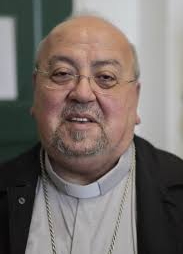
Mar 7, 2017 | Non categorizzato
 A large group of Catholic Bishop-friends of the Focolare are currently having their convention on March 7-12 at the Mariapolis Centre in Castelgandolfo (Italy). They come from a significant collection of countries, including a good 26 from African and the Middle East. Among them is also Maronite Archbishop Samir Nassar from Damascus whom was asked to tell us about his country. Archbishop Nassar, after six years of war, what does Syria look like today? It’s an immense site of ruins. Apocalyptic scenes – burned out buildings, homes burned to the ground, ghost towns, villages razed to the ground. More than 2 million Syrians (50% of the population) don’t have a roof over their heads. Many Syrians – in the millions – have left their country, forming the largest mass of refugees since World War II. And now they’re stuck in refugee camps waiting for someone to notice them. Others drowned escaping, or are lined up in front of embassies like nomads in search of a country to that will take them in. Life for Syrians, wherever they may be, has turned into a torment. The family, the cornerstone of the Church and of the nation, is seriously shaken. It’s now rare to find a complete family, and the few that have stayed are completely deprived of support, buried in misery, in anguish and depression. Fiancés can’t marry because they’re separated by the mobilisation of the military, and the lack of housing does the rest. Their future hopes have all crumbled. In your opinion, who are the most vulnerable? The children are the ones who are most at risk. They are paying dearly for this merciless violence. UNESCO reports that more than 3 million Syrian children are not in school, which is also due to the priority of staying alive. The few schools that are operating are over-crowded, and the level of instruction is suffering because of the exodus of teachers. The psychological support centres are hopelessly overwhelmed by the huge numbers and by the types of psychological blocks that that mostly the children suffer from. One of the concerns for the Church is the exodus of Christians… The parishes are reporting a drastic drop in the number of faithful, and of pastoral activity. The Church of Damascus has seen one third of its priests (27 priests), a hard blow that weakens even more the declining role of the Christian minority. The priests who stay don’t feel safe and try to find ways to leave. Meanwhile, they offer themselves as socio-humanitarian workers for families. What is life like for Syrians today? Syrians don’t run after freedom anymore. Every day is a struggle to find bread, water, gas and oil that are becoming scarcer and scarcer. The frequent and prolonged electrical outages bring melancholy and dwindling social life. The search for scattered brothers and sisters, parents and friends is done discretely and in much distress. Finding a small dwelling place, any kind of refuge for living in has become the impossible dream of every family, especially young couples. The Syrian people is living this torment in great bitterness, which can be seen in the silent gazes and the tears. Lent 2017 offers all of us an opportunity for profound reflection on the commitment of the Church that wishes to be beside our faithful in the trial of this journey towards the Risen Lord, who said: ‘Come to me, all who are burdened and oppressed…” (Mt 11:28). What urged you to get yourself to this meeting with other bishops? Ever since 2008 I found in the Focolare a type of listening and dialogue that helps me to accept my episcopal solitude and physical isolation in a country at war. In these gatherings at Castel Gandolfo I experience a discreet, respectful fraternal acceptance, an atmosphere and spiritual tone that nourishes my soul and confirms the spirit. An oasis of friendship, of mission and of renewal.
A large group of Catholic Bishop-friends of the Focolare are currently having their convention on March 7-12 at the Mariapolis Centre in Castelgandolfo (Italy). They come from a significant collection of countries, including a good 26 from African and the Middle East. Among them is also Maronite Archbishop Samir Nassar from Damascus whom was asked to tell us about his country. Archbishop Nassar, after six years of war, what does Syria look like today? It’s an immense site of ruins. Apocalyptic scenes – burned out buildings, homes burned to the ground, ghost towns, villages razed to the ground. More than 2 million Syrians (50% of the population) don’t have a roof over their heads. Many Syrians – in the millions – have left their country, forming the largest mass of refugees since World War II. And now they’re stuck in refugee camps waiting for someone to notice them. Others drowned escaping, or are lined up in front of embassies like nomads in search of a country to that will take them in. Life for Syrians, wherever they may be, has turned into a torment. The family, the cornerstone of the Church and of the nation, is seriously shaken. It’s now rare to find a complete family, and the few that have stayed are completely deprived of support, buried in misery, in anguish and depression. Fiancés can’t marry because they’re separated by the mobilisation of the military, and the lack of housing does the rest. Their future hopes have all crumbled. In your opinion, who are the most vulnerable? The children are the ones who are most at risk. They are paying dearly for this merciless violence. UNESCO reports that more than 3 million Syrian children are not in school, which is also due to the priority of staying alive. The few schools that are operating are over-crowded, and the level of instruction is suffering because of the exodus of teachers. The psychological support centres are hopelessly overwhelmed by the huge numbers and by the types of psychological blocks that that mostly the children suffer from. One of the concerns for the Church is the exodus of Christians… The parishes are reporting a drastic drop in the number of faithful, and of pastoral activity. The Church of Damascus has seen one third of its priests (27 priests), a hard blow that weakens even more the declining role of the Christian minority. The priests who stay don’t feel safe and try to find ways to leave. Meanwhile, they offer themselves as socio-humanitarian workers for families. What is life like for Syrians today? Syrians don’t run after freedom anymore. Every day is a struggle to find bread, water, gas and oil that are becoming scarcer and scarcer. The frequent and prolonged electrical outages bring melancholy and dwindling social life. The search for scattered brothers and sisters, parents and friends is done discretely and in much distress. Finding a small dwelling place, any kind of refuge for living in has become the impossible dream of every family, especially young couples. The Syrian people is living this torment in great bitterness, which can be seen in the silent gazes and the tears. Lent 2017 offers all of us an opportunity for profound reflection on the commitment of the Church that wishes to be beside our faithful in the trial of this journey towards the Risen Lord, who said: ‘Come to me, all who are burdened and oppressed…” (Mt 11:28). What urged you to get yourself to this meeting with other bishops? Ever since 2008 I found in the Focolare a type of listening and dialogue that helps me to accept my episcopal solitude and physical isolation in a country at war. In these gatherings at Castel Gandolfo I experience a discreet, respectful fraternal acceptance, an atmosphere and spiritual tone that nourishes my soul and confirms the spirit. An oasis of friendship, of mission and of renewal.

Mar 6, 2017 | Non categorizzato
 The situation seemed absurd. I was taking the items I needed off the shelf at the supermarket, when I felt a trolley bumping into me, hitting me in the leg. I felt a stabbing pain but I managed not to cry out. I had a look around to see what was happening. A woman with a little boy in her arms was angrily staring at me, without a trace of regret or apology. There was certainly enough room for her to go by me without bumping into me but, between the cell phone and the screaming baby, the carriage and the box she was dropping, it was in some way understandable that such an accident could have happened. There and then I responded with words that weren’t exactly polite and let her go by. Only that things don’t always go as you would suppose they would: I turned into another aisle and we crossed paths again: “You again?” she said to me in a tone that was anything but friendly. “Oh, yeah, me again! I’m shopping just like you; maybe we’ll see each other again… Wouldn’t it be better to finish your telephone conversation and do one thing at a time?” At that point she really lost it – big time! She suddenly felt the right to launch comments and insults towards complete strangers like me, and so forth. No one was spared. Just to make things worse the little one began to shout, the cell phone fell to the ground and the box fell and emptied its contents all over the floor. It was too much for the woman who ended up sitting on the floor in tears. Without hesitation I began to gather her things and calm the little boy, by trying to distract him with a set of keys I had in my pocket. In the end the little one began to laugh, and the lady calmed down. Naturally, shoppers, sale clerks and all kinds of other people drew near to see what all the chaos was about, but finding that things had calmed down, they walked away and left us alone. Who knows what they were thinking! The fact is that I helped the woman to stand up and I asked her if she still had to buy many things. She answered by showing me a shopping list she was holding in her hand. I asked her to wait there while I went to buy the things she was still missing. Of course, I did have to change some items two or three times before finding the right brand but, in the end, I did it. Once all the items on the shopping list were in the carriage, the woman looked at me with her big eyes and spoke timidly: “Thank you, and forgive me for acting the way I did before. I don’t know which way to turn. My husband lost his job and we don’t know how we’re going to make it to the end of the month. It feels like the world is falling down around us. So I’ve become angry and aggressive.” I obviously didn’t have an immediate solution, but it came to me spontaneously to tell her: “Look, I don’t have an answer, but what I can do is pray for you and your husband, asking that he can find a job.” She looked at me a bit surprised and answered: “I’m not able to believe in God, but, anyway… thank you!” In the days that followed I prayed frequently and intensely for that family. One morning, I met the woman again at the supermarket. She saw me from afar and came up to me: “Imagine, against all odds, my husband was able to get an interview with a company and, yes, they hired him! It’s not the ideal position, but it’s permanent with a reasonable salary. Could it be because of your promise to pray for us? When my husband told me I immediately thought of you, of your prayers. Thank you so much! Could it be that God does exist?” “I firmly believe so and hope that one day you’ll get to meet him!” I told her. We said goodbye and each of us went her own way. A sudden gratitude began to fill my heart and a prayer to God that one day she would get to meet him too. From: Kerber, Urs. La vida se hace camino, (Buenos Aires, Ciudad Nueva, 2016), 16-17.
The situation seemed absurd. I was taking the items I needed off the shelf at the supermarket, when I felt a trolley bumping into me, hitting me in the leg. I felt a stabbing pain but I managed not to cry out. I had a look around to see what was happening. A woman with a little boy in her arms was angrily staring at me, without a trace of regret or apology. There was certainly enough room for her to go by me without bumping into me but, between the cell phone and the screaming baby, the carriage and the box she was dropping, it was in some way understandable that such an accident could have happened. There and then I responded with words that weren’t exactly polite and let her go by. Only that things don’t always go as you would suppose they would: I turned into another aisle and we crossed paths again: “You again?” she said to me in a tone that was anything but friendly. “Oh, yeah, me again! I’m shopping just like you; maybe we’ll see each other again… Wouldn’t it be better to finish your telephone conversation and do one thing at a time?” At that point she really lost it – big time! She suddenly felt the right to launch comments and insults towards complete strangers like me, and so forth. No one was spared. Just to make things worse the little one began to shout, the cell phone fell to the ground and the box fell and emptied its contents all over the floor. It was too much for the woman who ended up sitting on the floor in tears. Without hesitation I began to gather her things and calm the little boy, by trying to distract him with a set of keys I had in my pocket. In the end the little one began to laugh, and the lady calmed down. Naturally, shoppers, sale clerks and all kinds of other people drew near to see what all the chaos was about, but finding that things had calmed down, they walked away and left us alone. Who knows what they were thinking! The fact is that I helped the woman to stand up and I asked her if she still had to buy many things. She answered by showing me a shopping list she was holding in her hand. I asked her to wait there while I went to buy the things she was still missing. Of course, I did have to change some items two or three times before finding the right brand but, in the end, I did it. Once all the items on the shopping list were in the carriage, the woman looked at me with her big eyes and spoke timidly: “Thank you, and forgive me for acting the way I did before. I don’t know which way to turn. My husband lost his job and we don’t know how we’re going to make it to the end of the month. It feels like the world is falling down around us. So I’ve become angry and aggressive.” I obviously didn’t have an immediate solution, but it came to me spontaneously to tell her: “Look, I don’t have an answer, but what I can do is pray for you and your husband, asking that he can find a job.” She looked at me a bit surprised and answered: “I’m not able to believe in God, but, anyway… thank you!” In the days that followed I prayed frequently and intensely for that family. One morning, I met the woman again at the supermarket. She saw me from afar and came up to me: “Imagine, against all odds, my husband was able to get an interview with a company and, yes, they hired him! It’s not the ideal position, but it’s permanent with a reasonable salary. Could it be because of your promise to pray for us? When my husband told me I immediately thought of you, of your prayers. Thank you so much! Could it be that God does exist?” “I firmly believe so and hope that one day you’ll get to meet him!” I told her. We said goodbye and each of us went her own way. A sudden gratitude began to fill my heart and a prayer to God that one day she would get to meet him too. From: Kerber, Urs. La vida se hace camino, (Buenos Aires, Ciudad Nueva, 2016), 16-17.
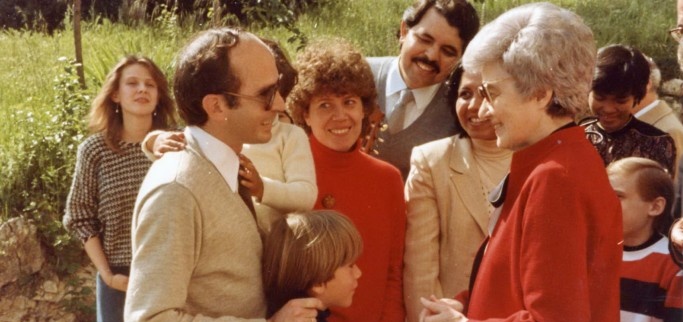
Mar 4, 2017 | Non categorizzato
 (…) Jesus said, “For where two or three are gathered together in my name,” (which means in my love), “there am I in the midst of them” (Mt. 18:30). Becoming the dwelling place of God’s presence is a splendid possibility offered also to families. A family that lives in this way is actively involved in all that happens around it. Simply by being what it is, it can witness, proclaim and therefore heal the social fabric around it, because life in itself speaks and works. I have seen from experience that this kind of family is able to open home and heart to the urgent needs and issues in society and to various forms of loneliness and alienation. They can even practice and organize solidarity in ever-widening circles, to the point of promoting effective actions to influence institutions, block wrongful laws and measures, and guide politicians. Through the presence and activity of its members in the various sectors of society, the family is also able to enter into dialogue with institutions, channelling resources towards real needs, creating awareness and the necessary conditions for improved policies in favour of the family and fostering public opinion based on values. I believe that nothing could be more beautiful than families like this. Because, let’s ask ourselves, what do people really want? They want happiness. Where do they seek happiness? In love, in beauty, and they are willing to do anything to obtain it. In these families, there is the fullness of human love and the beauty of supernatural love. I have seen families like this, and they are truly wonderful. Everyone finds them fascinating. From the outside, they look like any other family, but they have a secret, a secret of love. “Suffering that is loved” unites them to Christ who dwells in their homes. He is attracted by the mutual love that unites them, and through these families, he is transforming the world. I wanted to share these thoughts with you, which come from the depths of my heart and from the experience of many families. I would like to encourage all of us to greater practical engagement in doing everything possible for the true good of the family. In fact, the health of the first cell of society is of the utmost importance for the future of all humanity. The great Catholic writer Igino Giordani wrote: “To save the family means to save society. The state is made up mostly of families. If families break down, society weakens.” He also said, “Married couples become God’s collaborators in giving life and love to humanity… Love extends outwards from the family to professional life, to the city, the nation and humanity. It is like a wave opening in ever-widening circles, onwards to infinity. For two thousand years there has been a restless longing, set in motion by the Gospel, it calls for love.” Chiara Lubich Watch the complete video
(…) Jesus said, “For where two or three are gathered together in my name,” (which means in my love), “there am I in the midst of them” (Mt. 18:30). Becoming the dwelling place of God’s presence is a splendid possibility offered also to families. A family that lives in this way is actively involved in all that happens around it. Simply by being what it is, it can witness, proclaim and therefore heal the social fabric around it, because life in itself speaks and works. I have seen from experience that this kind of family is able to open home and heart to the urgent needs and issues in society and to various forms of loneliness and alienation. They can even practice and organize solidarity in ever-widening circles, to the point of promoting effective actions to influence institutions, block wrongful laws and measures, and guide politicians. Through the presence and activity of its members in the various sectors of society, the family is also able to enter into dialogue with institutions, channelling resources towards real needs, creating awareness and the necessary conditions for improved policies in favour of the family and fostering public opinion based on values. I believe that nothing could be more beautiful than families like this. Because, let’s ask ourselves, what do people really want? They want happiness. Where do they seek happiness? In love, in beauty, and they are willing to do anything to obtain it. In these families, there is the fullness of human love and the beauty of supernatural love. I have seen families like this, and they are truly wonderful. Everyone finds them fascinating. From the outside, they look like any other family, but they have a secret, a secret of love. “Suffering that is loved” unites them to Christ who dwells in their homes. He is attracted by the mutual love that unites them, and through these families, he is transforming the world. I wanted to share these thoughts with you, which come from the depths of my heart and from the experience of many families. I would like to encourage all of us to greater practical engagement in doing everything possible for the true good of the family. In fact, the health of the first cell of society is of the utmost importance for the future of all humanity. The great Catholic writer Igino Giordani wrote: “To save the family means to save society. The state is made up mostly of families. If families break down, society weakens.” He also said, “Married couples become God’s collaborators in giving life and love to humanity… Love extends outwards from the family to professional life, to the city, the nation and humanity. It is like a wave opening in ever-widening circles, onwards to infinity. For two thousand years there has been a restless longing, set in motion by the Gospel, it calls for love.” Chiara Lubich Watch the complete video
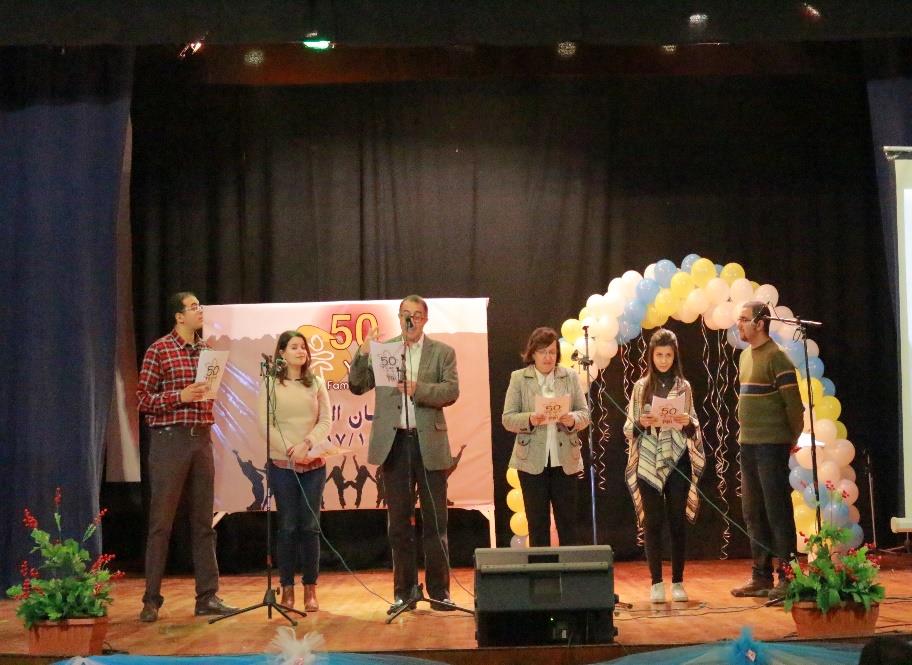
Mar 3, 2017 | Non categorizzato
Seven years have passed since the Arab Spring and the unforgettable Tahrir Square, symbol of all the squares of Egypt, Tunisia, Libya, Yemen, crowded with women, men and many youths forcefully invoking the demise of the autocratic regimes, respect of human rights, transparency, freedom of information and social justice. Seven long years in which Egypt, the historical and cultural reference point for the Arab world, has been marked by an unprecedented political crisis. There is still a strong internal instability, caused by sporadic outbreaks of terrorism, that have resulted in the drop of tourism and foreign investments. And despite the efforts of the government to invest in infrastructures (such as the inauguration of the new Suez canal) and heal its international relationships, the onset of the economic crisis is weighing heavily on the country’s 90 million inhabitants. The great urban areas are concentrated along the banks of the Nile (5% of the territory). Ten million are in the capital city of Cairo (which become 12 during the day), the second most populated African city. 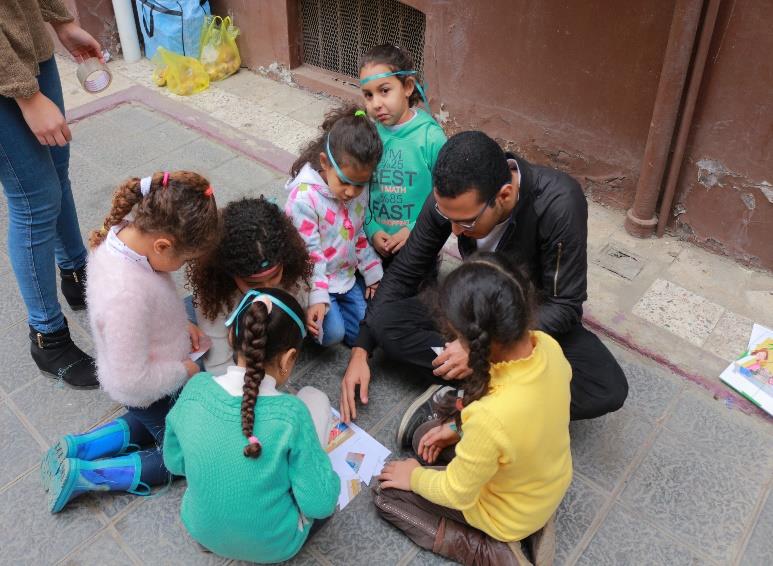 Immersed in this metropolis, the families that live the spirituality of the focolare, come from every social category and belong to various Christian churches. They have the same difficulties as all the others: growing unemployment, the crisis of parental roles in a society that is increasingly moving away from religious and social values and which is dazzling the new generation with the temptations of consumerism. Families that are trying however to go “against the current,” helping one another mutually and working hard to serve the schools, churches and institutions. The convention on the family entitled “Source of hope and joy” was held last 27 January, with the participation of about 300 people. It was a feast, with songs and dance, sharing sessions, moment of reflection on the theme of dialogue between husband and wife, parent-children relationships, suffering, illness, and divisions and difficulties of families. Many were testimonials of tangible love that heals suffering, like that that of Wagih and his wife, who suffered a stroke and is confined to a wheelchair; or that of a couple which, through dialogue, recomposed the pieces of their almost broken family; or that of another couple which understood that children not only need to be loved but above all, need parents who love one another.
Immersed in this metropolis, the families that live the spirituality of the focolare, come from every social category and belong to various Christian churches. They have the same difficulties as all the others: growing unemployment, the crisis of parental roles in a society that is increasingly moving away from religious and social values and which is dazzling the new generation with the temptations of consumerism. Families that are trying however to go “against the current,” helping one another mutually and working hard to serve the schools, churches and institutions. The convention on the family entitled “Source of hope and joy” was held last 27 January, with the participation of about 300 people. It was a feast, with songs and dance, sharing sessions, moment of reflection on the theme of dialogue between husband and wife, parent-children relationships, suffering, illness, and divisions and difficulties of families. Many were testimonials of tangible love that heals suffering, like that that of Wagih and his wife, who suffered a stroke and is confined to a wheelchair; or that of a couple which, through dialogue, recomposed the pieces of their almost broken family; or that of another couple which understood that children not only need to be loved but above all, need parents who love one another.  “The families of the focolare,” the letter from Cairo says, “give a great contribution to families also through the St. Joseph Institute and the Pro Vita, created in March 1994, incarnating the Gospel in family life and in the heart of society. The Institute engages in the preparation of young couples for marriage and as a family counseling service, with branches in various dioceses. They give strength and courage, amid many difficulties to couples also in the Muslim world. In these years the number of marriage annulment cases has dropped to the minimum, despite the great number of couples with problems that go for consultation. The Institute gives its contribution in the various events in the family sector, and represents the Holy See in the international conventions of the Muslim world.» The Koz Kazah Foundation has been active since 2007 in the Shubra community, one of the most populated districts of Cairo, and last 25 February, inaugurated a new office in Fagala. The aim is to work, in cooperation with AMU, on social projects, educational programmes for children at risk, create events to awaken the sense of belonging to one’s own city (cleaning of roads, murals, conferences, shows). In a society which, not only in Egypt, sees no reason for hope and joy, these constructive actions seem to emit the perfume of another spring. AMU: Project CHANCE FOR TOMORROW
“The families of the focolare,” the letter from Cairo says, “give a great contribution to families also through the St. Joseph Institute and the Pro Vita, created in March 1994, incarnating the Gospel in family life and in the heart of society. The Institute engages in the preparation of young couples for marriage and as a family counseling service, with branches in various dioceses. They give strength and courage, amid many difficulties to couples also in the Muslim world. In these years the number of marriage annulment cases has dropped to the minimum, despite the great number of couples with problems that go for consultation. The Institute gives its contribution in the various events in the family sector, and represents the Holy See in the international conventions of the Muslim world.» The Koz Kazah Foundation has been active since 2007 in the Shubra community, one of the most populated districts of Cairo, and last 25 February, inaugurated a new office in Fagala. The aim is to work, in cooperation with AMU, on social projects, educational programmes for children at risk, create events to awaken the sense of belonging to one’s own city (cleaning of roads, murals, conferences, shows). In a society which, not only in Egypt, sees no reason for hope and joy, these constructive actions seem to emit the perfume of another spring. AMU: Project CHANCE FOR TOMORROW
Mar 2, 2017 | Non categorizzato
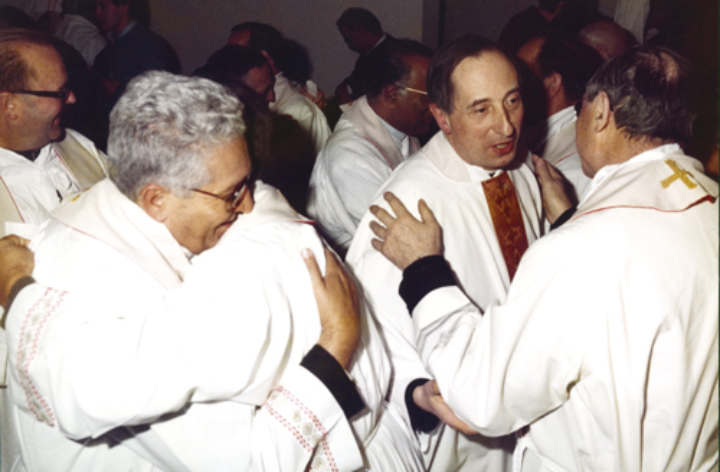
Mar 1, 2017 | Non categorizzato
 Klaus Hemmerle played an essential part alongside Chiara Lubich in introducing the life of communion among the bishops who follow the spirituality of unity. We present some passages taken from his book, Klaus Hemmerle, La luce dentro le cose (The Light Within Things,) published by Città Nuova (Rome, 1998). “Even after the radical conversion of our life that takes place once and for all in Baptism, all of us are unceasingly in need of converting. Even in those cases where the baptized does not separate from God, the claims that life makes on him and the temptations of daily life are likely to chain him to his own ego so much that the unique Word that the baptized has become thanks to the grace of Christ, sails along and is modified and cracks. The wound inflicted on God’s life in us is in constant need of healing” (p 82). “Forgive us our debts as we forgive our debtors.” Jesus is a realist. He knows our weaknesses. He never judges, nor does he ever say: Whatever way you live is the same. He calls us to repentance, to conversion, to constantly begin again. He forgives us and invites us to forgive others. Our friendship with him runs aground if our life is not this constant conversion” (p 73). “For each one of us, today, a cross is waiting that we are to carry along with us.” But it has to be carried this very day! Otherwise it is the cross that carries us, and then we feel totally oppressed, tormented and annihilated, and we never realize that it was the cross that carried us away. But if we ourselves have the courage to take up the cross, then it becomes the most precious thing in the world” (p 89). “When the disciples see the great and powerful God in Jesus, they are not able to find him. They have to bow down to the ground, to look into the dust: Jesus is there, washing the feet of those who are his own. Self-giving, abasement, service, mature awareness of the banality of human needs, becoming little, renouncing, the endurance of total giving, not appearing, hiddenness – all of these qualities that have absolutely nothing to do with the radiant splendour of God, lie at the deepest central core of the cult and worship we offer to God – the Eucharist” (p 101). “Someone like me who continues to fail every time, cannot but live on God’s forgiveness. But this forgiveness proves itself in fraternal pardon. This is the underlying substance of God’s forgiveness, it rebounds onto the community in which we link up to that mercy that makes us ever free and new so that we can be sons of the Father with the Lord, the only Lord – in the midst of them” (p 74).
Klaus Hemmerle played an essential part alongside Chiara Lubich in introducing the life of communion among the bishops who follow the spirituality of unity. We present some passages taken from his book, Klaus Hemmerle, La luce dentro le cose (The Light Within Things,) published by Città Nuova (Rome, 1998). “Even after the radical conversion of our life that takes place once and for all in Baptism, all of us are unceasingly in need of converting. Even in those cases where the baptized does not separate from God, the claims that life makes on him and the temptations of daily life are likely to chain him to his own ego so much that the unique Word that the baptized has become thanks to the grace of Christ, sails along and is modified and cracks. The wound inflicted on God’s life in us is in constant need of healing” (p 82). “Forgive us our debts as we forgive our debtors.” Jesus is a realist. He knows our weaknesses. He never judges, nor does he ever say: Whatever way you live is the same. He calls us to repentance, to conversion, to constantly begin again. He forgives us and invites us to forgive others. Our friendship with him runs aground if our life is not this constant conversion” (p 73). “For each one of us, today, a cross is waiting that we are to carry along with us.” But it has to be carried this very day! Otherwise it is the cross that carries us, and then we feel totally oppressed, tormented and annihilated, and we never realize that it was the cross that carried us away. But if we ourselves have the courage to take up the cross, then it becomes the most precious thing in the world” (p 89). “When the disciples see the great and powerful God in Jesus, they are not able to find him. They have to bow down to the ground, to look into the dust: Jesus is there, washing the feet of those who are his own. Self-giving, abasement, service, mature awareness of the banality of human needs, becoming little, renouncing, the endurance of total giving, not appearing, hiddenness – all of these qualities that have absolutely nothing to do with the radiant splendour of God, lie at the deepest central core of the cult and worship we offer to God – the Eucharist” (p 101). “Someone like me who continues to fail every time, cannot but live on God’s forgiveness. But this forgiveness proves itself in fraternal pardon. This is the underlying substance of God’s forgiveness, it rebounds onto the community in which we link up to that mercy that makes us ever free and new so that we can be sons of the Father with the Lord, the only Lord – in the midst of them” (p 74).

Feb 28, 2017 | Focolare Worldwide
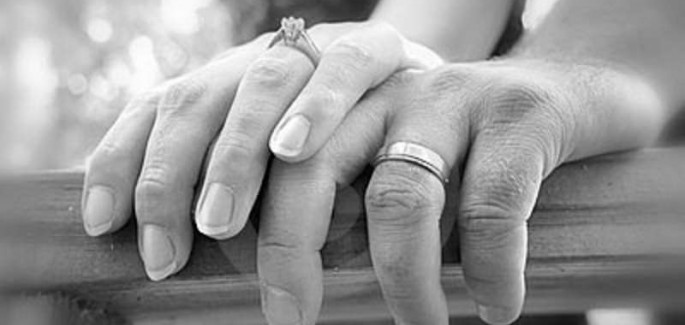 Federico: An Italian and Uruguayan: what are the chances? Yet we happened to meet, seven years ago, at a Latin American center in Rome. I was there to give a hand running things, she to speak her language a bit. Our eyes met and we started to build a home together. Economic constraints, however, pushed us to leave the big city for my parents’ small village, especially because one of our greatest wishes was about to come true: our son was on the way. There was much happiness, but the stress of the birth and the rapid life changes didn’t give us any time to breathe. Laura: As if that were not enough, my mother, who was taking care of my invalid father and my little brother, became seriously ill. I needed to immediately go to Uruguay for at least a couple of months, especially because time was running out for my mother to get to know our little one. In the meantime, Federico and I were living on two different planets: me shut in at home with the child, he always out to escape the tension between us. Whenever our eyes met there was only anger, exhaustion, misunderstanding. As I left I told him, “When I come back, we’re either going to break up or stay together forever.” Federico: Our hearts became as distant as the physical separation. The months flew by, she didn’t return, and I found myself on a different path. To be honest with her, I felt I had to tell her that I didn’t want to get back together and that perhaps she should stay there where she was. Laura: It hurt a lot, even though I expected it. I gathered my strength, put aside my suffering and decided to return to Italy, knowing that I had little chance. In fact, when I got back home, he didn’t want to hear anything about living with me. Federico: One day I confided to my brother what was happening, and he told me about a couple that had a lot of experience who could help us. The idea didn’t seem that convincing at all, but in the end, for the good of the child, I accepted. “Perhaps they can help us separate without touching off a war,” I said to myself. It was an afternoon at the end of May. In the garden where we met, the cherries were ripe, and everything spoke of hope and peace. Yet in our hearts opposing feelings were rebelling. The man’s strong handshake and the delicate face of his wife gave me shivers along my spine. I saw that Laura, too, was moved. We talked with them for a half-hour. That night I left behind everything and returned home. As I entered, tears ran down my face, but my soul seemed to fly. Maybe I could do this!
Federico: An Italian and Uruguayan: what are the chances? Yet we happened to meet, seven years ago, at a Latin American center in Rome. I was there to give a hand running things, she to speak her language a bit. Our eyes met and we started to build a home together. Economic constraints, however, pushed us to leave the big city for my parents’ small village, especially because one of our greatest wishes was about to come true: our son was on the way. There was much happiness, but the stress of the birth and the rapid life changes didn’t give us any time to breathe. Laura: As if that were not enough, my mother, who was taking care of my invalid father and my little brother, became seriously ill. I needed to immediately go to Uruguay for at least a couple of months, especially because time was running out for my mother to get to know our little one. In the meantime, Federico and I were living on two different planets: me shut in at home with the child, he always out to escape the tension between us. Whenever our eyes met there was only anger, exhaustion, misunderstanding. As I left I told him, “When I come back, we’re either going to break up or stay together forever.” Federico: Our hearts became as distant as the physical separation. The months flew by, she didn’t return, and I found myself on a different path. To be honest with her, I felt I had to tell her that I didn’t want to get back together and that perhaps she should stay there where she was. Laura: It hurt a lot, even though I expected it. I gathered my strength, put aside my suffering and decided to return to Italy, knowing that I had little chance. In fact, when I got back home, he didn’t want to hear anything about living with me. Federico: One day I confided to my brother what was happening, and he told me about a couple that had a lot of experience who could help us. The idea didn’t seem that convincing at all, but in the end, for the good of the child, I accepted. “Perhaps they can help us separate without touching off a war,” I said to myself. It was an afternoon at the end of May. In the garden where we met, the cherries were ripe, and everything spoke of hope and peace. Yet in our hearts opposing feelings were rebelling. The man’s strong handshake and the delicate face of his wife gave me shivers along my spine. I saw that Laura, too, was moved. We talked with them for a half-hour. That night I left behind everything and returned home. As I entered, tears ran down my face, but my soul seemed to fly. Maybe I could do this!  Laura: When I saw Federico come back I couldn’t believe it. Our next appointment with that couple was at Loppiano (near Florence), where we met other friends of theirs, couples who were having difficulties like us. But the change in us had already begun. At the course organized by New Families of the Focolare Movement, the first thing they talked to us about – almost like a game – was the Japanese art of kintsugi, where a broken ceramic vase is not thrown away, but glued together with gold. Doing so, it becomes even more valuable. The new atmosphere we were breathing in there was renewing us without us realizing it. We understood that forgiveness was the gold that could put us together again, and we asked it of each other. We found the strength to give of ourselves to each other. Federico: It was a mix of the spirituality of unity, which the course was based on; advice from experts; and the support from the other couples that strengthened our desire to be reborn again as a couple and gave us a fundamental push to change. Ever since, each day we tell each other that we’re ready to start again, without taking anything for granted and making the effort to step in each other’s shoes. Laura: After two years we got to the point where we were able to make an important decision: to get married in Church, so that Love par excellence could watch over our life together and continue flowing forever. Now we are expecting our second child in July. Truly the love of God knew how to write straight on our crooked lines!
Laura: When I saw Federico come back I couldn’t believe it. Our next appointment with that couple was at Loppiano (near Florence), where we met other friends of theirs, couples who were having difficulties like us. But the change in us had already begun. At the course organized by New Families of the Focolare Movement, the first thing they talked to us about – almost like a game – was the Japanese art of kintsugi, where a broken ceramic vase is not thrown away, but glued together with gold. Doing so, it becomes even more valuable. The new atmosphere we were breathing in there was renewing us without us realizing it. We understood that forgiveness was the gold that could put us together again, and we asked it of each other. We found the strength to give of ourselves to each other. Federico: It was a mix of the spirituality of unity, which the course was based on; advice from experts; and the support from the other couples that strengthened our desire to be reborn again as a couple and gave us a fundamental push to change. Ever since, each day we tell each other that we’re ready to start again, without taking anything for granted and making the effort to step in each other’s shoes. Laura: After two years we got to the point where we were able to make an important decision: to get married in Church, so that Love par excellence could watch over our life together and continue flowing forever. Now we are expecting our second child in July. Truly the love of God knew how to write straight on our crooked lines!
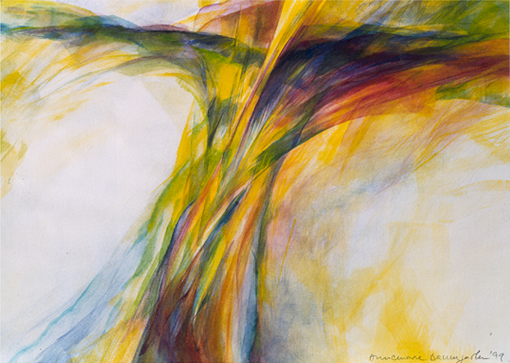
Feb 27, 2017 | Non categorizzato

Watercolour © A.M Baumgarten
Feb 27, 2017 | Non categorizzato, Word of
for ages 4-8 | for ages 9-14 | for ages 15-17 | MP3 Audio | Print
We can live like the first Christians and witness in our lives to God’s overwhelming love. If we, his followers, are truly reconciled among ourselves, we can speak convincingly of God’s reconciling love for the world. “Be reconciled to God” (2 Cor 5:20). All over the world, there are blood-soaked wars. They seem endless, and they embroil families, tribes and peoples. Twenty-year-old Gloria told this story: “We got news of a village that’d been burnt down. Lots of people lost everything. With my friends I collected some useful things: mattresses, clothes, food. We set out and after an eight hour journey we met all those people in such terrible need. We listened to them, dried their tears, hugged them and tried to comfort them. One family told us, ‘Our little girl was in the house they burnt down. It felt like we were dying with her. Now, through your love, we have the strength to forgive the men who did this!’” The Apostle Paul also experienced this kind of forgiveness, and it completely changed his life. He, the very one who was persecuting Christians,1 met God’s free-given love. It came in a completely unexpectedly way as he was travelling. God then sent him out in his name 2 as an ambassador of reconciliation. This is how Paul became a passionate and credible witness to the mystery of Jesus who died and rose again. He spoke of Jesus who had reconciled the world to himself so that everyone could know and experience a life of communion with him and one another.3 Through Paul the Gospel message reached and fascinated even pagans, those thought to be furthest from salvation: “Be reconciled to God!” he said. Despite our failings that discourage us or the false certainties that fool us into thinking we have no need, we too can meet God’s mercy. His love is so excessive! We can let it heal our hearts and in the end set us free to share this treasure with others. Like this we will give our contribution to God’s plan of peace for all humanity and the whole of creation. This plan overcomes the contradictions of history, as Chiara Lubich suggests in this passage: “On the cross, in the death of his Son, God gave us the highest proof of his love. Through Christ’s cross, he reconciled us to himself. This fundamental truth of our faith is fully relevant today. “It is the revelation all humankind awaits. Yes, God is close to all people with his love and he loves each person passionately. Our world needs to hear this proclamation, but we can proclaim God’s love if first we proclaim it, again and again, to ourselves — until we feel surrounded by this love, even when everything would make us think the opposite.… All our behaviour should make this truth credible. “Jesus said clearly that before bringing our offering to the altar we should be reconciled with a brother or sister if they have anything against us (see Mt 5:23-24) … So let’s love one another as he loved us, without being closed or prejudiced, but being open to welcome and appreciate the positive in our neighbour, ready to give our lives for one another. This is Jesus’ main command, the mark of Christians, valid today just as it was at the time of Christ’s first followers. Living this word means becoming reconcilers.” Living like this we will enrich our days with acts of friendship and reconciliation: in our own family and among families, in our own Church and among Churches, in every civil and religious community to which we belong. Letizia Magri
- See Acts 22:4 ff.
- See 2 Cor 5:
- See Eph 2:13 f
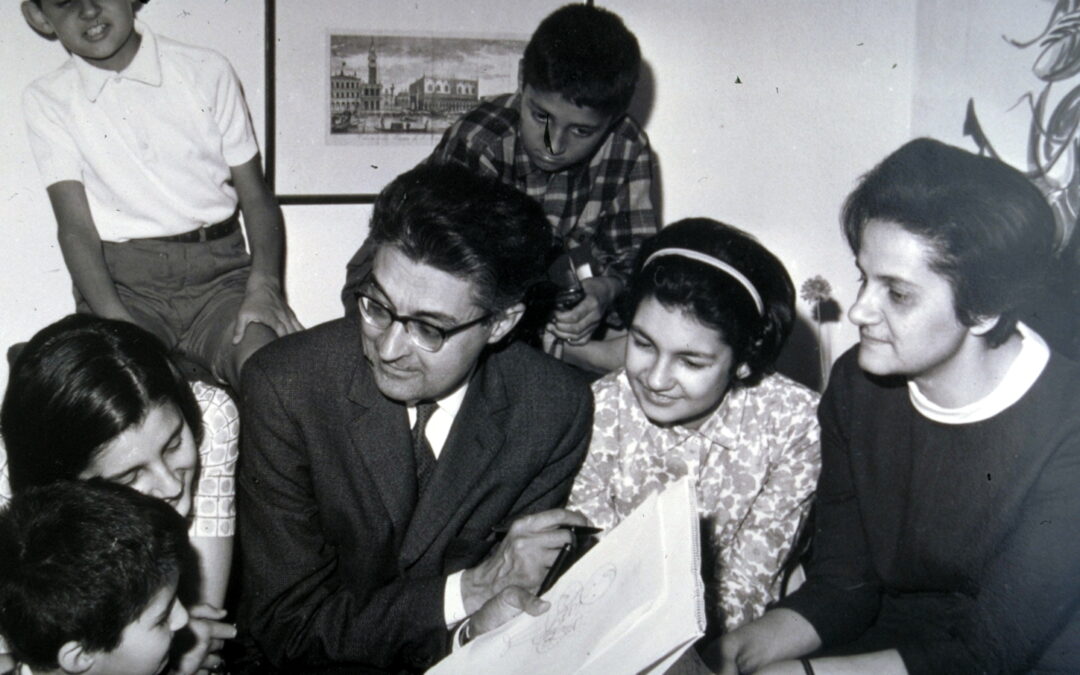
Feb 26, 2017 | Non categorizzato
 How important was it for you to meet Chiara Lubich, what impact did it have on you and your family, and what were the effects of your relationship with her and her spirituality? Danilo: “In the environment where Anna Maria and I were raised, traditional customs were of great importance. The family was present, but it was united more often due to social customs. Upon meeting Chiara we understood that being Christians entailed a choice, above all. That’s why we suffered a lot to free ourselves from the mentality of those times, and the attachment to our roles, circles, and professional titles. I had undertaken the career of an engineer, but to live the Gospel completely, we started to host the poor, and practice the communion of goods. All these things were a scandal, since they broke away from the customs of a bourgeois city. So my parents didn’t understand our decisions and were against them. I remember that once, I had gone to speak in a mountain town since I was also the diocesan president of the Catholic men. I was suffering and torn inside. Right after that I went to Church and found myself before a statue of Jesus Forsaken. I immediately and clearly understood that facing such painful moments is also part of our being Christians.”
How important was it for you to meet Chiara Lubich, what impact did it have on you and your family, and what were the effects of your relationship with her and her spirituality? Danilo: “In the environment where Anna Maria and I were raised, traditional customs were of great importance. The family was present, but it was united more often due to social customs. Upon meeting Chiara we understood that being Christians entailed a choice, above all. That’s why we suffered a lot to free ourselves from the mentality of those times, and the attachment to our roles, circles, and professional titles. I had undertaken the career of an engineer, but to live the Gospel completely, we started to host the poor, and practice the communion of goods. All these things were a scandal, since they broke away from the customs of a bourgeois city. So my parents didn’t understand our decisions and were against them. I remember that once, I had gone to speak in a mountain town since I was also the diocesan president of the Catholic men. I was suffering and torn inside. Right after that I went to Church and found myself before a statue of Jesus Forsaken. I immediately and clearly understood that facing such painful moments is also part of our being Christians.”
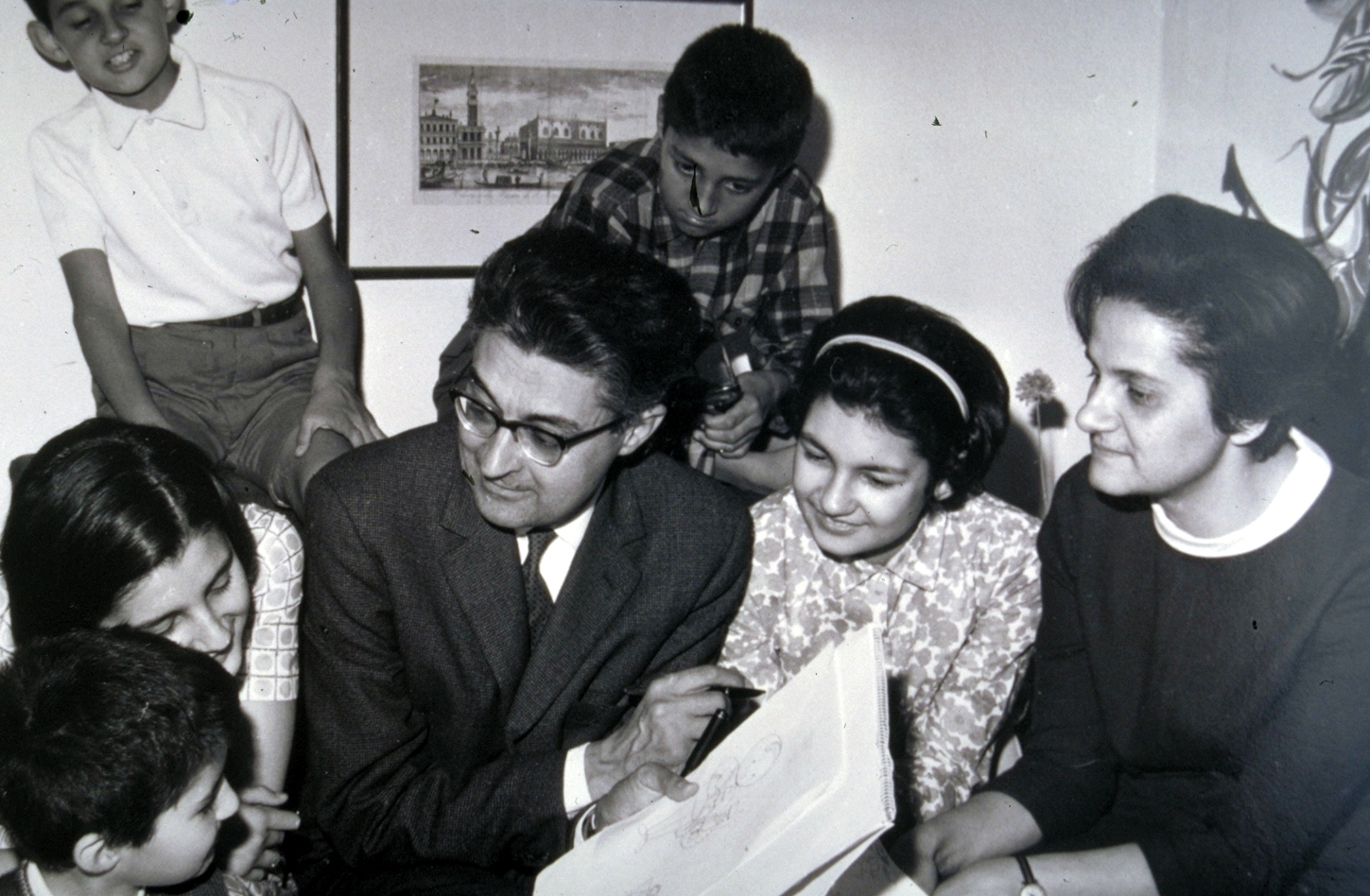
The Zanzucchi family
Giovanna Pieroni
![Interreligious friendships in England]()
Feb 25, 2017 | Non categorizzato
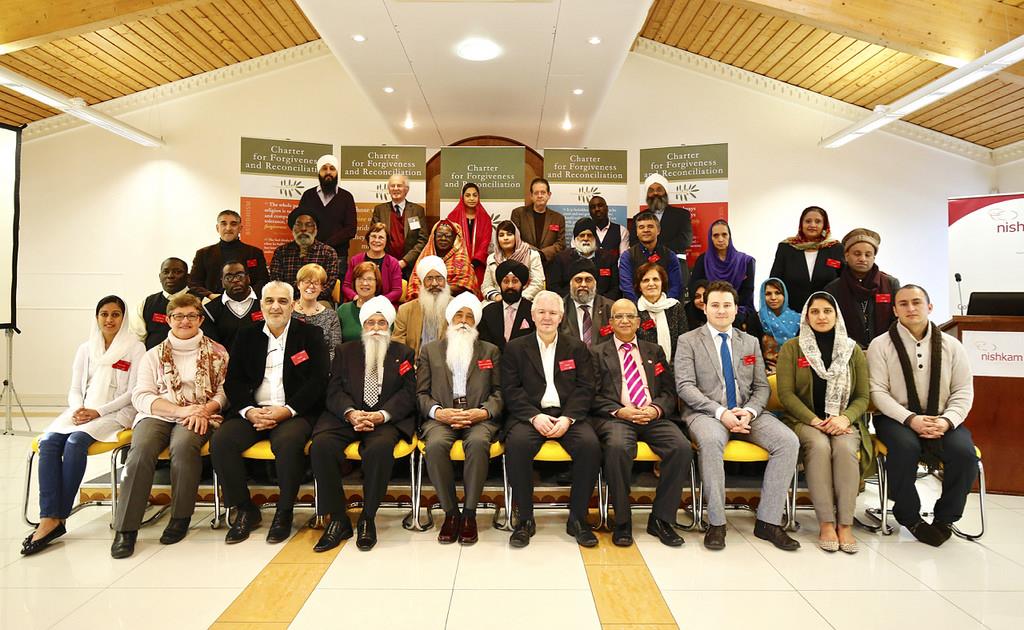 Birmingham is a multi-ethnic city of central England where the presence of different religions and cultures has become a breeding ground for dialogue. The city itself is a laboratory of interreligious relationships based on mutual respect and the discovery of each other’s values. Catholic Archbishop Bernard Longley, along with the council of religious leaders of other faiths in Birmingham, is directly involved in the interreligious field and more than once has expressed the desire that the Charism of Unity might bring a contribution in the Church and in ecumenical and interreligious dialogue. In October 2015, he made a house available to the Focolare in the diocese of Birmingham. Now, members from the community in Welwyn Garden City carry out many initiatives on a bi-monthly basis. They began with the Gen Verde international band’s “Start Now” project and continue carrying out many other initiatives.
Birmingham is a multi-ethnic city of central England where the presence of different religions and cultures has become a breeding ground for dialogue. The city itself is a laboratory of interreligious relationships based on mutual respect and the discovery of each other’s values. Catholic Archbishop Bernard Longley, along with the council of religious leaders of other faiths in Birmingham, is directly involved in the interreligious field and more than once has expressed the desire that the Charism of Unity might bring a contribution in the Church and in ecumenical and interreligious dialogue. In October 2015, he made a house available to the Focolare in the diocese of Birmingham. Now, members from the community in Welwyn Garden City carry out many initiatives on a bi-monthly basis. They began with the Gen Verde international band’s “Start Now” project and continue carrying out many other initiatives. 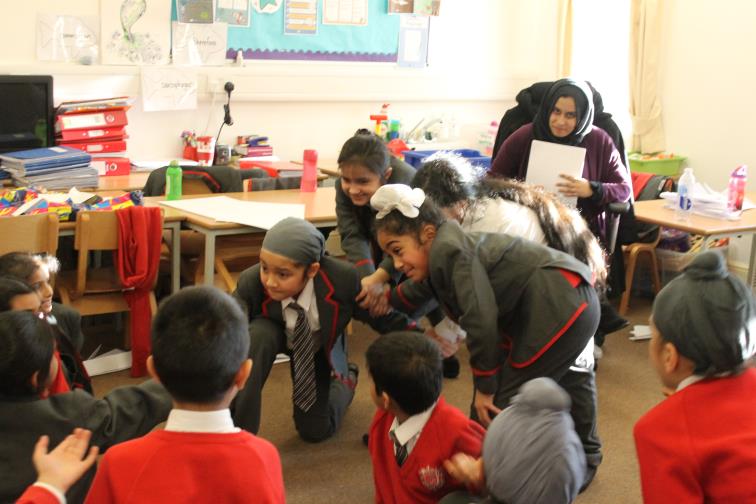 Last January, a Volunteer from the Focolare Movement, who is an expert in the field of education, ran the first of 4 workshops in a Sikh school for 70 children between the ages of 7 and 8. The theme was values. “The Sikhs feel a strong bond with us,” she recounts. “They say that like you, we try to model a society based on the fusion between the human and the divine. They find a harmony in the Movement that helps them to deepen their values and put them into practice.” The project is the culmination of a long friendship. For years the Sikh community guided by Bhi Sahib Bhai Mohinder Singh has been constantly linked to the Focolare community in Birmingham. The friendship and mutual esteem is deepening. “Bhai Sahib Ji often tells us that Chiara Lubich is his inspiration,” a Focolare member writes. “He keeps a photo of her on his desk.”
Last January, a Volunteer from the Focolare Movement, who is an expert in the field of education, ran the first of 4 workshops in a Sikh school for 70 children between the ages of 7 and 8. The theme was values. “The Sikhs feel a strong bond with us,” she recounts. “They say that like you, we try to model a society based on the fusion between the human and the divine. They find a harmony in the Movement that helps them to deepen their values and put them into practice.” The project is the culmination of a long friendship. For years the Sikh community guided by Bhi Sahib Bhai Mohinder Singh has been constantly linked to the Focolare community in Birmingham. The friendship and mutual esteem is deepening. “Bhai Sahib Ji often tells us that Chiara Lubich is his inspiration,” a Focolare member writes. “He keeps a photo of her on his desk.” 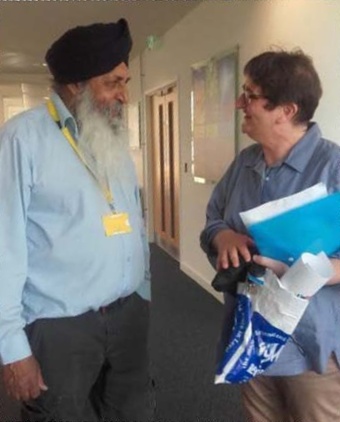 Sikhs and members of the Focolare recently took part together in an interreligious conference. Bhai Sahib Ji presented a project for promoting forgiveness and reconciliation. The event was an opportunity to strengthen friendships between members of different religions and beliefs, who now continue to stay in contact.
Sikhs and members of the Focolare recently took part together in an interreligious conference. Bhai Sahib Ji presented a project for promoting forgiveness and reconciliation. The event was an opportunity to strengthen friendships between members of different religions and beliefs, who now continue to stay in contact. 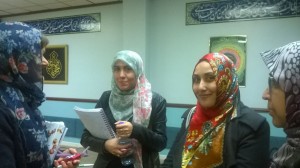 Still in January, Dr Mohammad Shomali, Founding Director of the International Institute for Islamic Studies in Qum, invited several men and women focolarini to speak to a group of thirty Muslims at a mosque in on one of the quarters of Birmingham. His desire was to “put together the people he esteems and loves the most: his community and the Focolare.” The Church’s dialogue with Islam was discussed, and the Spirituality of Unity was proposed, along with the presentation of a few experiences of living the Word. Many Muslims remained enthusiastic and want to stay in contact with the Focolare. “They invited us back on Sunday for the ‘Visit My Mosque’ event,” they report. They conclude: “Over the past weeks in which we have made many new friends of other faiths, we remembered a letter that Chiara wrote on November 23,1980 where she said: ‘…and if there is a mosque, or a synagogue, or some other non-Christian house of worship – know that that is where you belong…’ It’s a project about building the universal family, also among the faithful of other religions.”
Still in January, Dr Mohammad Shomali, Founding Director of the International Institute for Islamic Studies in Qum, invited several men and women focolarini to speak to a group of thirty Muslims at a mosque in on one of the quarters of Birmingham. His desire was to “put together the people he esteems and loves the most: his community and the Focolare.” The Church’s dialogue with Islam was discussed, and the Spirituality of Unity was proposed, along with the presentation of a few experiences of living the Word. Many Muslims remained enthusiastic and want to stay in contact with the Focolare. “They invited us back on Sunday for the ‘Visit My Mosque’ event,” they report. They conclude: “Over the past weeks in which we have made many new friends of other faiths, we remembered a letter that Chiara wrote on November 23,1980 where she said: ‘…and if there is a mosque, or a synagogue, or some other non-Christian house of worship – know that that is where you belong…’ It’s a project about building the universal family, also among the faithful of other religions.”
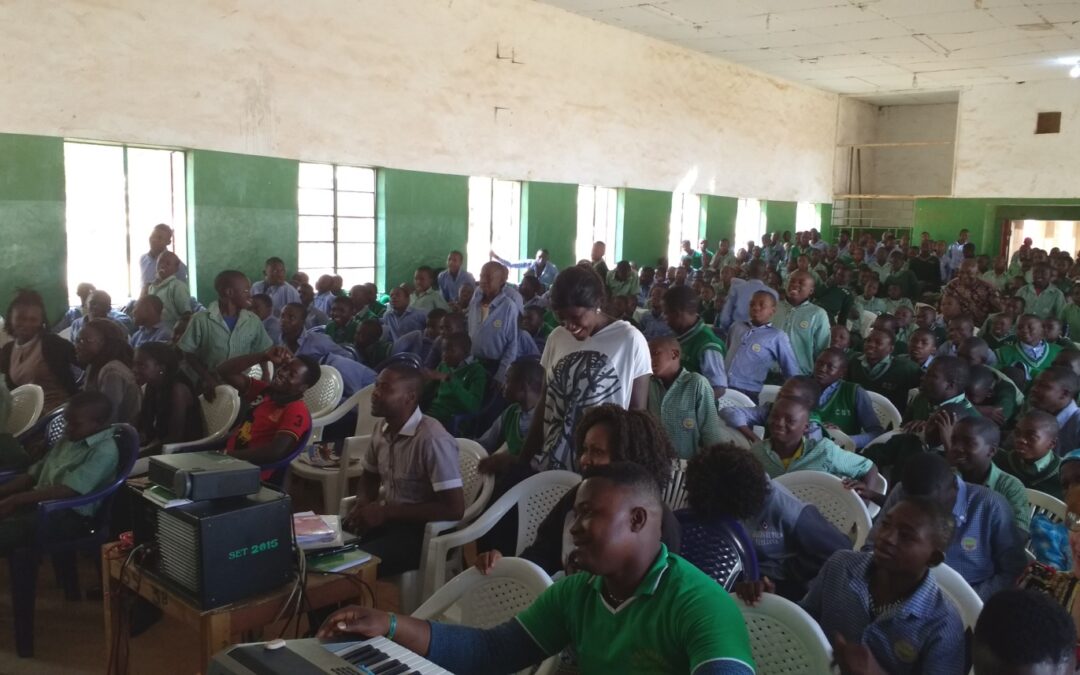
Feb 24, 2017 | Focolare Worldwide
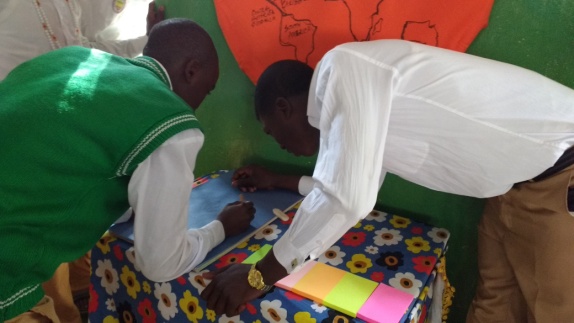 For three days, St Joseph’s College transformed into a fraternity experiment. The young students, ages 9 to 18, lived side by side with their professors, their families, as well as many other young people, adults and elderly from other cities. The Mariapolis was organised by members of the local Jos community, as well as other communities like that of Abuja (4 hours away) and Onitsa (12). There were also some young people of the Focolare from Lagos. In Nigeria, a country of seemingly limitless expanses, long trips bristling with danger often need to be overcome. Yet this did not stop anyone from supporting the Mariapolis at St. Joseph’s. The school opened its gates to welcome the young and not so young, students, teachers, workers. Among the Mariapolites was John Maigari, who had once attended and taught at the school. Now retired, Maigari also previously headed the diocese’s department of education. Many years prior he himself had experienced Mariapolis life, where each person sees each other as family to love and to serve. Now after many years, the professor hoped that the students could experience that same lifestyle. His proposal was welcomed.
For three days, St Joseph’s College transformed into a fraternity experiment. The young students, ages 9 to 18, lived side by side with their professors, their families, as well as many other young people, adults and elderly from other cities. The Mariapolis was organised by members of the local Jos community, as well as other communities like that of Abuja (4 hours away) and Onitsa (12). There were also some young people of the Focolare from Lagos. In Nigeria, a country of seemingly limitless expanses, long trips bristling with danger often need to be overcome. Yet this did not stop anyone from supporting the Mariapolis at St. Joseph’s. The school opened its gates to welcome the young and not so young, students, teachers, workers. Among the Mariapolites was John Maigari, who had once attended and taught at the school. Now retired, Maigari also previously headed the diocese’s department of education. Many years prior he himself had experienced Mariapolis life, where each person sees each other as family to love and to serve. Now after many years, the professor hoped that the students could experience that same lifestyle. His proposal was welcomed. 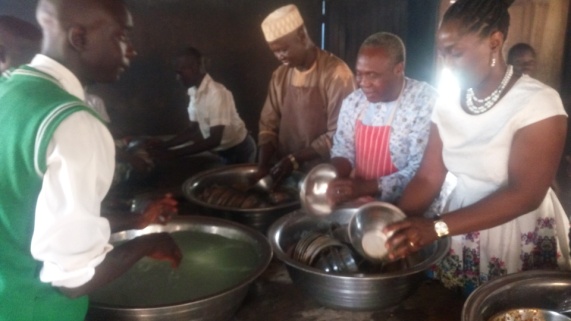 For three days, the school completely changed. Moments of reflection and going in depth were joined with tangible experiences. Divided into groups, students of different ages lived side by side with teachers and those attending, sharing the various moments of the day: cooking, washing dishes, tidying up the meeting hall, cleaning toilets and the school playground. For some it was their first time; they had never done anything like it. Even the school’s principal washed dishes! A large book was prepared for the students to capture their comments. It tells of three days of true living. The retreat changed their lives, they say. “The unity we lived during those days struck us from the very first moment that you set foot in our school.” It was a unity that the words of Chiara Lubich and the witness of the Focolare members had transmitted to them.
For three days, the school completely changed. Moments of reflection and going in depth were joined with tangible experiences. Divided into groups, students of different ages lived side by side with teachers and those attending, sharing the various moments of the day: cooking, washing dishes, tidying up the meeting hall, cleaning toilets and the school playground. For some it was their first time; they had never done anything like it. Even the school’s principal washed dishes! A large book was prepared for the students to capture their comments. It tells of three days of true living. The retreat changed their lives, they say. “The unity we lived during those days struck us from the very first moment that you set foot in our school.” It was a unity that the words of Chiara Lubich and the witness of the Focolare members had transmitted to them. 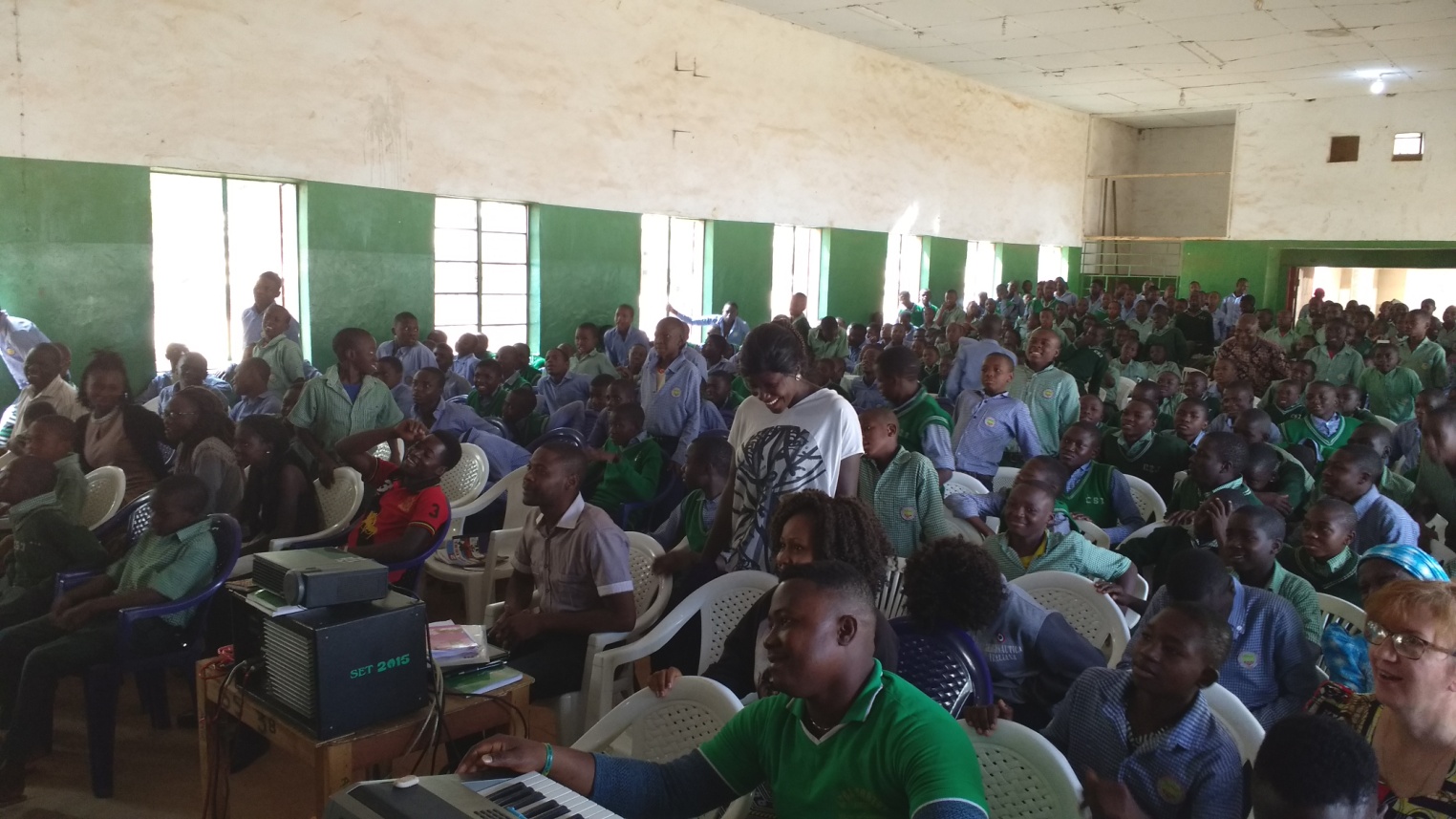 “I feel really happy and enthusiastic,” writes Nipps, “because these days were wonderful. I experienced many things and was particularly struck by the love and unity that the team of people who ran the program had between them.” “Before my life was incomplete,” says Keivin, “because I didn’t feel at all that God truly existed and was alive. Now I truly believe in God.” “This retreat wasn’t like the others,” adds Daong. “You ate with us and slept at our high school.” In this part of Nigeria, for years there have been many episodes of violence between Christians and Muslims, with seeds of hatred sown across the country. These young students also had lived through this. At the Mariapolis at Jos, they were able to experience an alternative: the firepower of God’s love and unity.
“I feel really happy and enthusiastic,” writes Nipps, “because these days were wonderful. I experienced many things and was particularly struck by the love and unity that the team of people who ran the program had between them.” “Before my life was incomplete,” says Keivin, “because I didn’t feel at all that God truly existed and was alive. Now I truly believe in God.” “This retreat wasn’t like the others,” adds Daong. “You ate with us and slept at our high school.” In this part of Nigeria, for years there have been many episodes of violence between Christians and Muslims, with seeds of hatred sown across the country. These young students also had lived through this. At the Mariapolis at Jos, they were able to experience an alternative: the firepower of God’s love and unity.
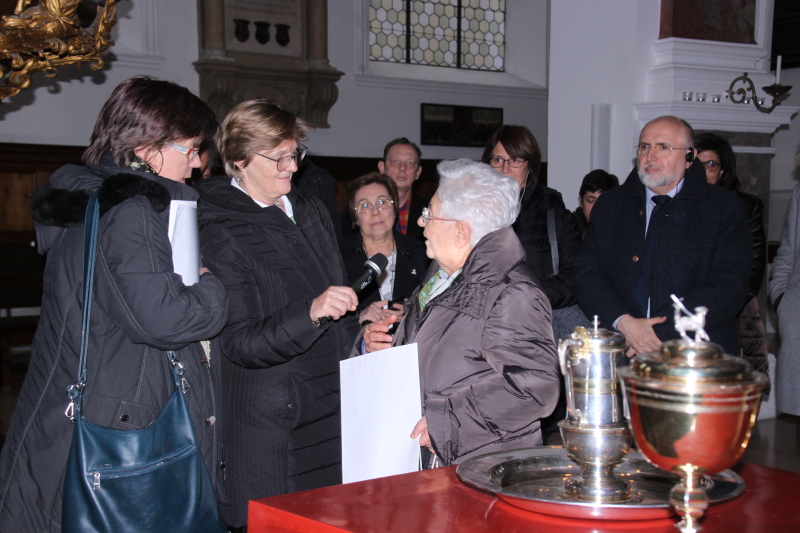
Feb 22, 2017 | Non categorizzato
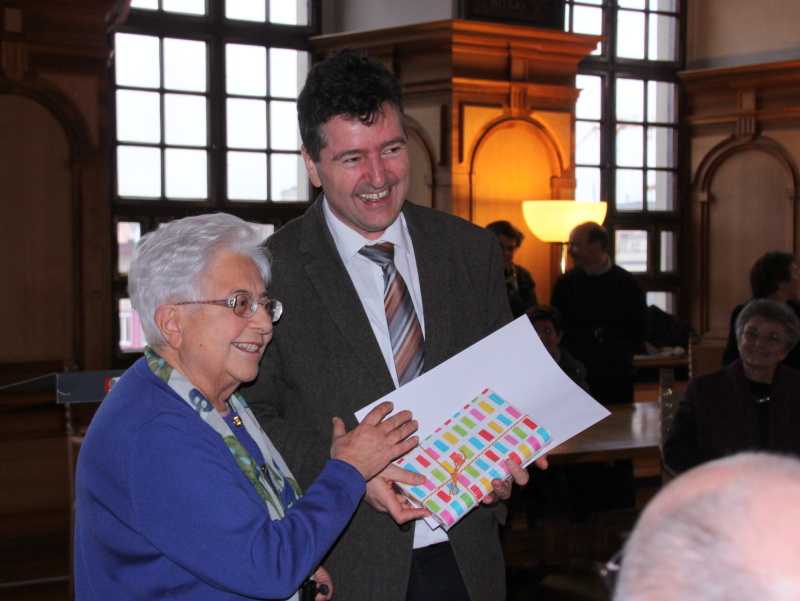
Maria Voce with the Vice-Mayor of Augsburg Dr Stefan Kiefer. Photo Maria Kny – © CSC Audiovisivi

Photo Maria Kny – © CSC Audiovisivi
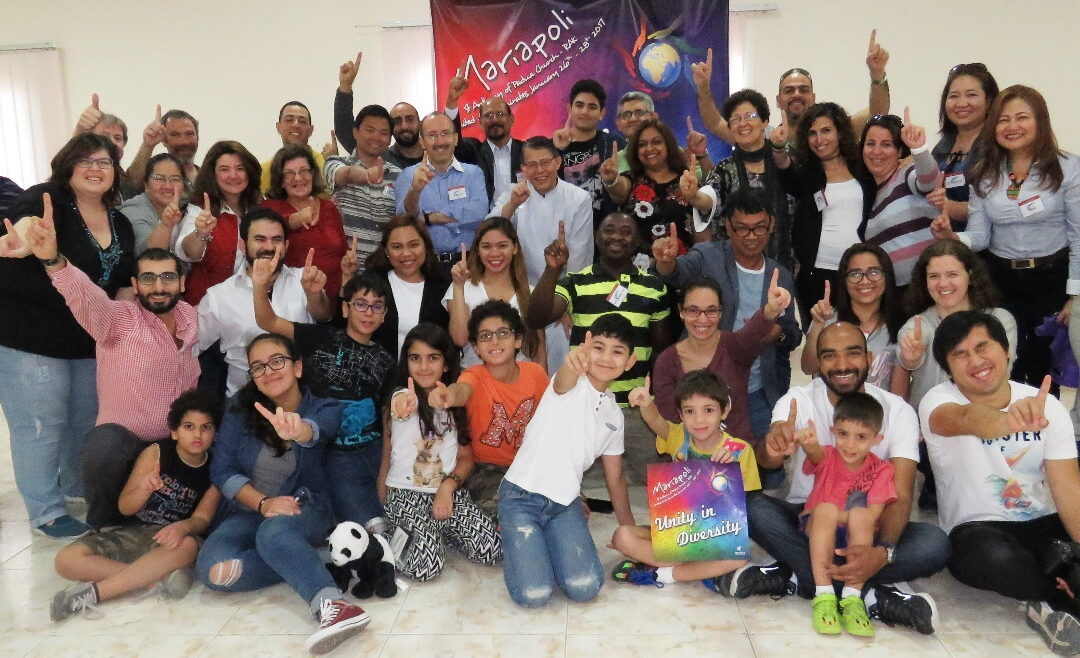
Feb 22, 2017 | Focolare Worldwide
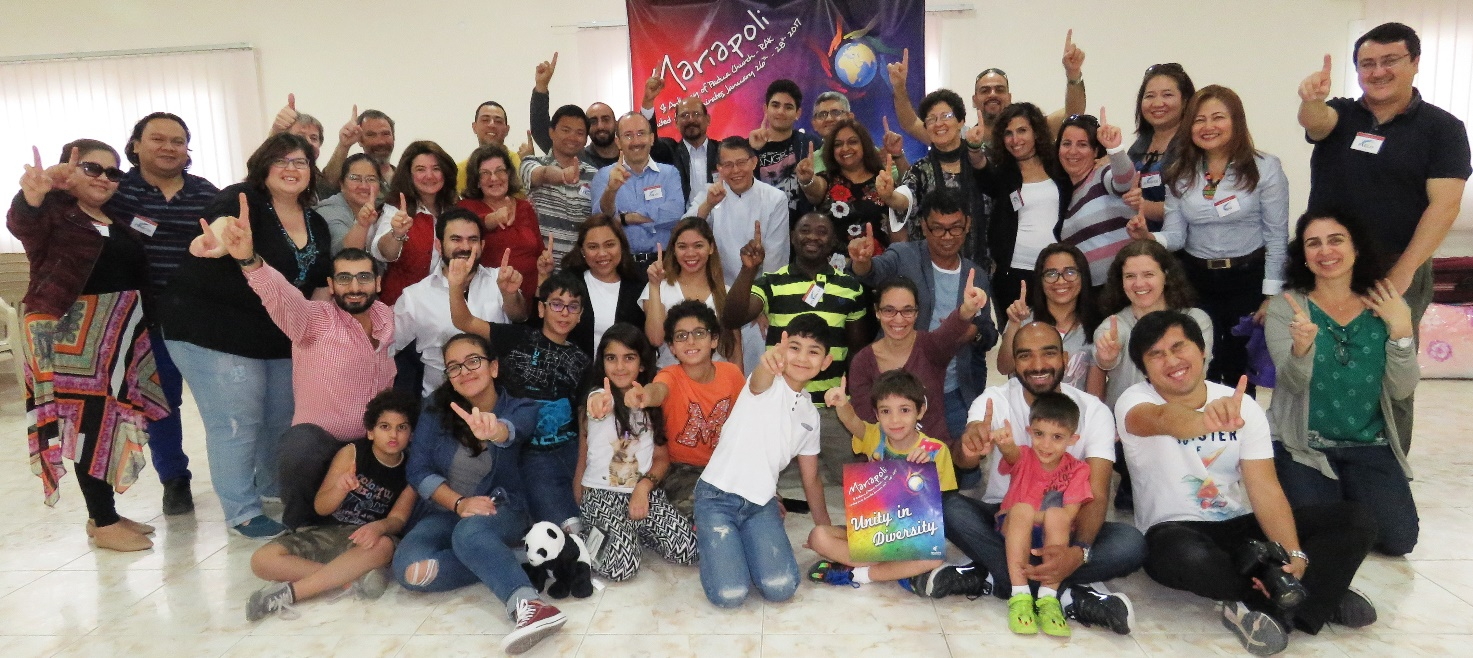 “We find ourselves here in countries of the United Arab Emirates due to work,” Claudia says. “Our workplaces are often strongly competitive, and it is difficult to integrate because there is little time for relationships that are simple and authentic. “The Catholic Church in Dubai is young, lively, joyous and not overly complicated. More than 2,000 faithful participate in and focus on daily mass – mostly from the Philippines, Pakistan and India. “Our local Focolare community is also made up mostly of migrants, and we try to give witness to the Gospel in the circles we move through, bringing love and unity around us. There are many who know about and live the spirituality of unity after first hearing about it in their home countries. We try to propose it to those whom we’re close to as a remedy to the frenetic, individualistic life here. “For us the monthly Word of Life meeting is fundamentally important. We read it together and try to go deeper into its meaning, sharing experiences that emerge from putting it into practice. “Maria Voce and Jesus Moran’s trip to India in January 2016 gave us a new drive to bring the ideal of unity to many, staying closely networked together.” “So we naturally involved all the people we’re in contact with to live the Mariapolis experience, which we took great care in preparing,” explains Amjad. “On January 27–28, 65 people from 12 countries (4 from the Middle East, the rest from Pakistan, the Philippines, Brazil, Japan, Italy and Cameroon) decided to come together at Ras Al Khaimah, an emirate near Dubai, to experience our first Mariapolis in these lands. “Emotions were running high! For some it seemed like a dream come true to finally get together after such a long time. We were welcomed by the parish of Father Willy, who is originally from the Philippines. The theme we chose, ‘Unity in diversity,’ reflected the reality and challenges that we all live through really well.” “What really struck me,” writes a young person from India,” was what we heard from Chiara Lubich about the ‘technique’ of building unity. Now I’d like to practice it.”“To discover how Jesus, in the moment he felt forsaken by the Father, can become a ‘key to unity’ in as much as I try to imitate him, filled me with hope,” said a woman from the Philippines. In a joyous atmosphere, participants were able to tell of their joys and difficulties, both in the hall and smaller groups, which is so important in order to share our lives together. There were moments to play, pray, and an intercultural evening to relax that included songs, video clips, skits and dances that involved everyone. “Special care was given to activities for the children, some of whom did not want to go back home,” says Claudia. “It was like an oasis,” explains Amjad, “where each of us found a family, with a spiritual presence of Jesus that is alive.” “During these past days, the fire of this ideal, which I got to know many years ago, was re-awakened,” confides a man from Brazil. “Now I want to give this fire to others.” Mia and Michel write: “It seemed to us that by the end, everyone returning to their countries or emirates, like Oman, Qatar, Bahrain, brought with them that ‘piece of fraternity’ that they had lived at the Mariapolis. Everyone evidently wanted to continue living this in their own environment, bringing hope to everyone. Now we keep connected through social media in a vibrant network, trying to help us live for each other, open to everyone.”
“We find ourselves here in countries of the United Arab Emirates due to work,” Claudia says. “Our workplaces are often strongly competitive, and it is difficult to integrate because there is little time for relationships that are simple and authentic. “The Catholic Church in Dubai is young, lively, joyous and not overly complicated. More than 2,000 faithful participate in and focus on daily mass – mostly from the Philippines, Pakistan and India. “Our local Focolare community is also made up mostly of migrants, and we try to give witness to the Gospel in the circles we move through, bringing love and unity around us. There are many who know about and live the spirituality of unity after first hearing about it in their home countries. We try to propose it to those whom we’re close to as a remedy to the frenetic, individualistic life here. “For us the monthly Word of Life meeting is fundamentally important. We read it together and try to go deeper into its meaning, sharing experiences that emerge from putting it into practice. “Maria Voce and Jesus Moran’s trip to India in January 2016 gave us a new drive to bring the ideal of unity to many, staying closely networked together.” “So we naturally involved all the people we’re in contact with to live the Mariapolis experience, which we took great care in preparing,” explains Amjad. “On January 27–28, 65 people from 12 countries (4 from the Middle East, the rest from Pakistan, the Philippines, Brazil, Japan, Italy and Cameroon) decided to come together at Ras Al Khaimah, an emirate near Dubai, to experience our first Mariapolis in these lands. “Emotions were running high! For some it seemed like a dream come true to finally get together after such a long time. We were welcomed by the parish of Father Willy, who is originally from the Philippines. The theme we chose, ‘Unity in diversity,’ reflected the reality and challenges that we all live through really well.” “What really struck me,” writes a young person from India,” was what we heard from Chiara Lubich about the ‘technique’ of building unity. Now I’d like to practice it.”“To discover how Jesus, in the moment he felt forsaken by the Father, can become a ‘key to unity’ in as much as I try to imitate him, filled me with hope,” said a woman from the Philippines. In a joyous atmosphere, participants were able to tell of their joys and difficulties, both in the hall and smaller groups, which is so important in order to share our lives together. There were moments to play, pray, and an intercultural evening to relax that included songs, video clips, skits and dances that involved everyone. “Special care was given to activities for the children, some of whom did not want to go back home,” says Claudia. “It was like an oasis,” explains Amjad, “where each of us found a family, with a spiritual presence of Jesus that is alive.” “During these past days, the fire of this ideal, which I got to know many years ago, was re-awakened,” confides a man from Brazil. “Now I want to give this fire to others.” Mia and Michel write: “It seemed to us that by the end, everyone returning to their countries or emirates, like Oman, Qatar, Bahrain, brought with them that ‘piece of fraternity’ that they had lived at the Mariapolis. Everyone evidently wanted to continue living this in their own environment, bringing hope to everyone. Now we keep connected through social media in a vibrant network, trying to help us live for each other, open to everyone.”
Feb 21, 2017 | Non categorizzato
The convention is being promoted by Providence University in collaboration with Dharma Drum Arts, the Sophia University Institute of Italy, Fu Jen Catholic University of Taiwan and other academic institutions in Taiwan and abroad. Among the participants are, the Arts and Sciences Professor of Dharma Drum, and likewise professors of Sophia in Italy, professors and scholars of various universities of the USA, monks and scholars from Thailand, Japan, South Korea and other religious groups. Since 2004, the Foclare Movement has been holding Buddhist-Christian symposiums every two years in various cities. The Symposiums amongst Buddhists (Mahayana and Theravada) and Christians have always been important steps in strengthening mutual trust on the basis of respect for the others, and in preparing to work together on this meeting in Taiwan.
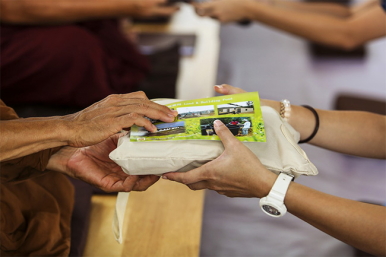
Feb 21, 2017 | Non categorizzato
 A concentration of Medieval towns and villages that are among the most beautiful in the country, ancient traditions, natural treasures, art and traces of an ancient culture that has sown Italy’s history with stories of a hard-working people that is tied to its roots. This is the central Italy that has been hit by an unfortunate series of earthquakes that continue to shake the region. The Italian Province of Fermo includes forty municipalities from the Sibillini Mountains to the sand and pebble beaches along the Adriatic Sea. On a clear night you can see the lights of neighbouring Croatia from the 13th century Dome Cathedral of Fermo. The Archdiocese also has ancient roots: Begun in the late 1500s, but going back to the 3rd century, it is the largest diocese in the region with120 parishes in 58 municipalities of the three Provinces of Ascoli Piceno, Fermo and Macerata. The Focolare’s Diocesan Movement began to take its first steps in the local Church of the region in 1973. As a branch of the Focolare Movement it works at the service of the local Church, offering and spreading the charism of unity in cooperation with other ecclesial groups, in order to make the Church a “Church-Communion”. In the whole territory around Fermo the earthquake caused devastation, evacuation and much fear. Two hundred churches were closed because they became inaccessible. Loredana, from the Diocesan Movement, tells about the experience of being close to the victims: “Along the coast, numerous camps and touristic villages are hosting 25 thousand people. In one camp site at Porto San Elpidio the Civil protection Agency set up an operation centre for this region. The local citizens has hosted more than a thousand people, entire families with children and grandparents, but several thousand moved away from here before being directed to other facilities along the coast. We took up a collection among us animators, to buy basic necessities. We set up a small coffee bar for the volunteers and evacuees. Once this phase was finished, the mayor and the councillor for culture met with representatives from schools to request support in organising workshops and recreational activities. Three of us were there representing the Diocesan Movement, but we had many others behind us that we knew were willing to help. Together with them we organised activities for the children and tutoring for the teenagers, locating teachers for every day and offering desserts prepared by our mothers and grandmothers. Strong friendships were established with teachers, children, teenagers and the elderly. Many evacuees are elderly. In Monte san Giusto, for example, around 120 evacuees were offered hospitality, including 42 from a rest home and 30 in wheelchairs. Two of us offered ourselves – one a social worker and the other a municipal guard – to listen to their needs. There were many personal initiatives. The young people from Porto San Elpidio, for example, made a lot of small Christmas trees that they then gave away to the families at the camp site. In the end, we collected 1,200 eruo for the RImPRESA Project in support of small inland production activities.”
A concentration of Medieval towns and villages that are among the most beautiful in the country, ancient traditions, natural treasures, art and traces of an ancient culture that has sown Italy’s history with stories of a hard-working people that is tied to its roots. This is the central Italy that has been hit by an unfortunate series of earthquakes that continue to shake the region. The Italian Province of Fermo includes forty municipalities from the Sibillini Mountains to the sand and pebble beaches along the Adriatic Sea. On a clear night you can see the lights of neighbouring Croatia from the 13th century Dome Cathedral of Fermo. The Archdiocese also has ancient roots: Begun in the late 1500s, but going back to the 3rd century, it is the largest diocese in the region with120 parishes in 58 municipalities of the three Provinces of Ascoli Piceno, Fermo and Macerata. The Focolare’s Diocesan Movement began to take its first steps in the local Church of the region in 1973. As a branch of the Focolare Movement it works at the service of the local Church, offering and spreading the charism of unity in cooperation with other ecclesial groups, in order to make the Church a “Church-Communion”. In the whole territory around Fermo the earthquake caused devastation, evacuation and much fear. Two hundred churches were closed because they became inaccessible. Loredana, from the Diocesan Movement, tells about the experience of being close to the victims: “Along the coast, numerous camps and touristic villages are hosting 25 thousand people. In one camp site at Porto San Elpidio the Civil protection Agency set up an operation centre for this region. The local citizens has hosted more than a thousand people, entire families with children and grandparents, but several thousand moved away from here before being directed to other facilities along the coast. We took up a collection among us animators, to buy basic necessities. We set up a small coffee bar for the volunteers and evacuees. Once this phase was finished, the mayor and the councillor for culture met with representatives from schools to request support in organising workshops and recreational activities. Three of us were there representing the Diocesan Movement, but we had many others behind us that we knew were willing to help. Together with them we organised activities for the children and tutoring for the teenagers, locating teachers for every day and offering desserts prepared by our mothers and grandmothers. Strong friendships were established with teachers, children, teenagers and the elderly. Many evacuees are elderly. In Monte san Giusto, for example, around 120 evacuees were offered hospitality, including 42 from a rest home and 30 in wheelchairs. Two of us offered ourselves – one a social worker and the other a municipal guard – to listen to their needs. There were many personal initiatives. The young people from Porto San Elpidio, for example, made a lot of small Christmas trees that they then gave away to the families at the camp site. In the end, we collected 1,200 eruo for the RImPRESA Project in support of small inland production activities.”
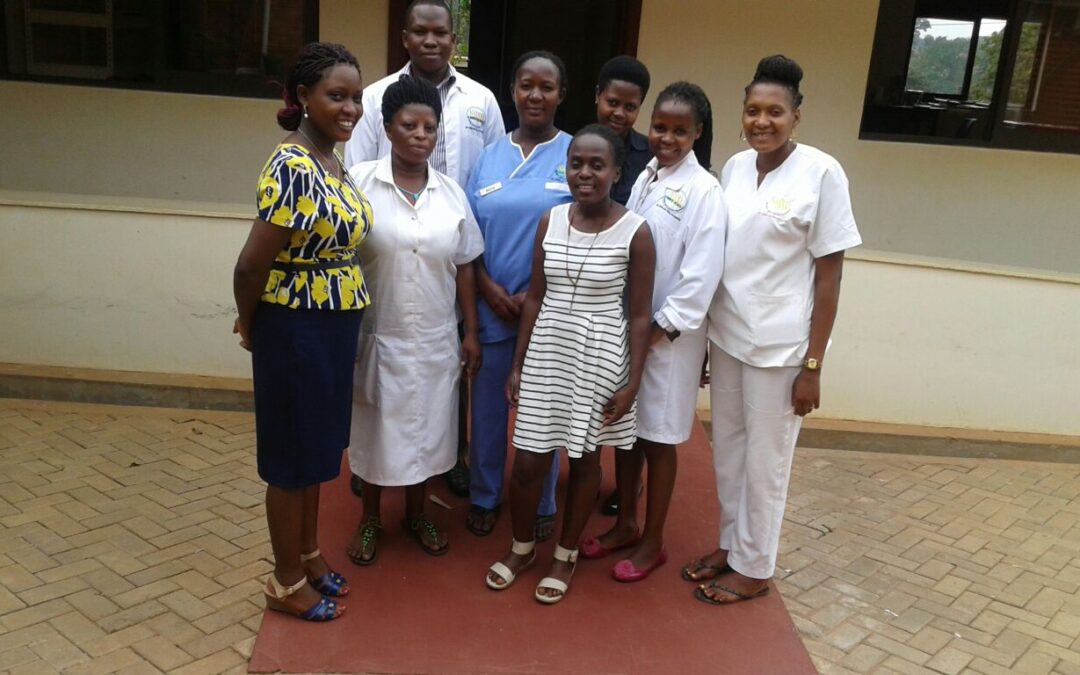
Feb 20, 2017 | Focolare Worldwide
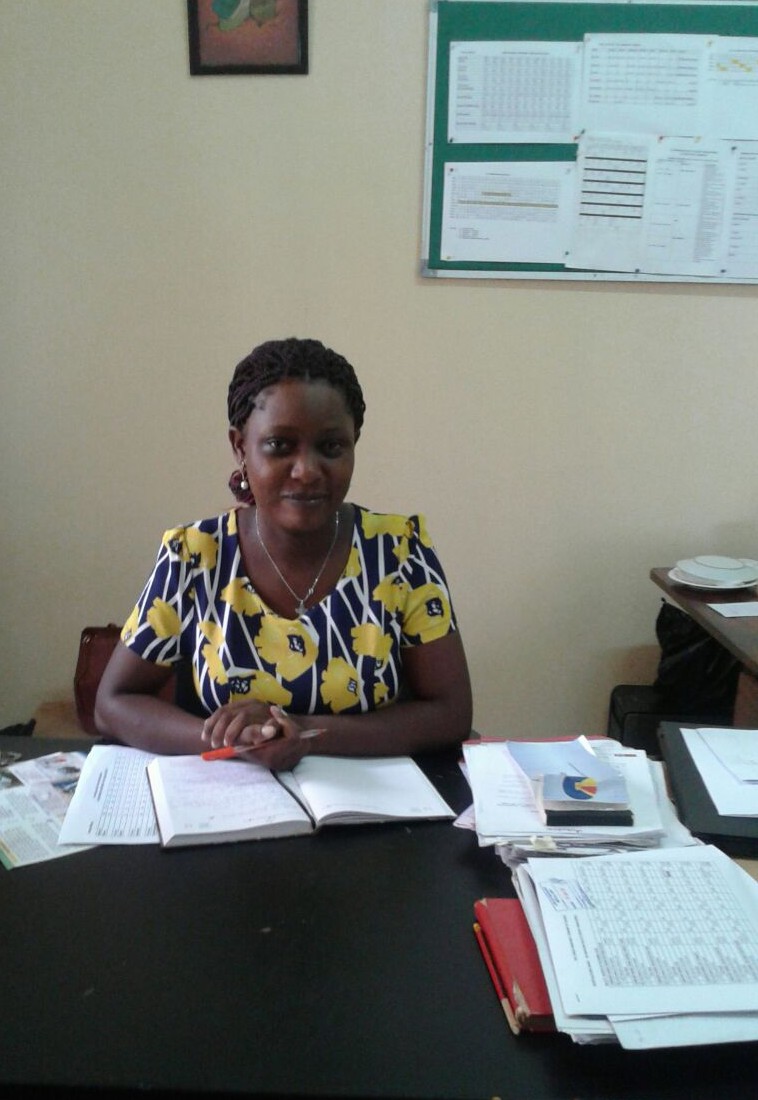 Ugandan business woman Rita Najjingo was among the 1,200 business owners and researchers of economy who were welcomed by Pope Francis on February 4, twenty five years from the start of the Economy of Communion Project (EoC). Seventy three percent of Rita’s country is made up of young people between the ages of 18 and 30, 47% of whom are unemployed. “Many of them try to set up small manufacturing activities,” Rita reports, “but because of a lack of capital and management skills, their businesses fail from start.” The idea of the EoC came to the African continent in recent years and immediately appeared as an answer. In 2015 several Ugandan entrepreneurs and researchers took part in a conference in Nairobi, Kenya, to learn about this economic project that puts the person first. When they went back to Uganda they talked with the local community and the first projects began in Ibanda, the western part of the country with a form of micro-credit that began to support a school for ex-cons; in Lira, the north, a home was built for elderly women, along with the cultivation of garlic, and so on. In Kampala,” Rita recounts, “there was the idea of involving the patients at a neary Focolare-run health centre which had a secure source of income. The idea was to be able to grant loans with their savings that they put in common, with loans for people who did not have enough capital to start up a manufacturing activity. An expert gave a week-long course and a savings and loan association was begun.
Ugandan business woman Rita Najjingo was among the 1,200 business owners and researchers of economy who were welcomed by Pope Francis on February 4, twenty five years from the start of the Economy of Communion Project (EoC). Seventy three percent of Rita’s country is made up of young people between the ages of 18 and 30, 47% of whom are unemployed. “Many of them try to set up small manufacturing activities,” Rita reports, “but because of a lack of capital and management skills, their businesses fail from start.” The idea of the EoC came to the African continent in recent years and immediately appeared as an answer. In 2015 several Ugandan entrepreneurs and researchers took part in a conference in Nairobi, Kenya, to learn about this economic project that puts the person first. When they went back to Uganda they talked with the local community and the first projects began in Ibanda, the western part of the country with a form of micro-credit that began to support a school for ex-cons; in Lira, the north, a home was built for elderly women, along with the cultivation of garlic, and so on. In Kampala,” Rita recounts, “there was the idea of involving the patients at a neary Focolare-run health centre which had a secure source of income. The idea was to be able to grant loans with their savings that they put in common, with loans for people who did not have enough capital to start up a manufacturing activity. An expert gave a week-long course and a savings and loan association was begun. 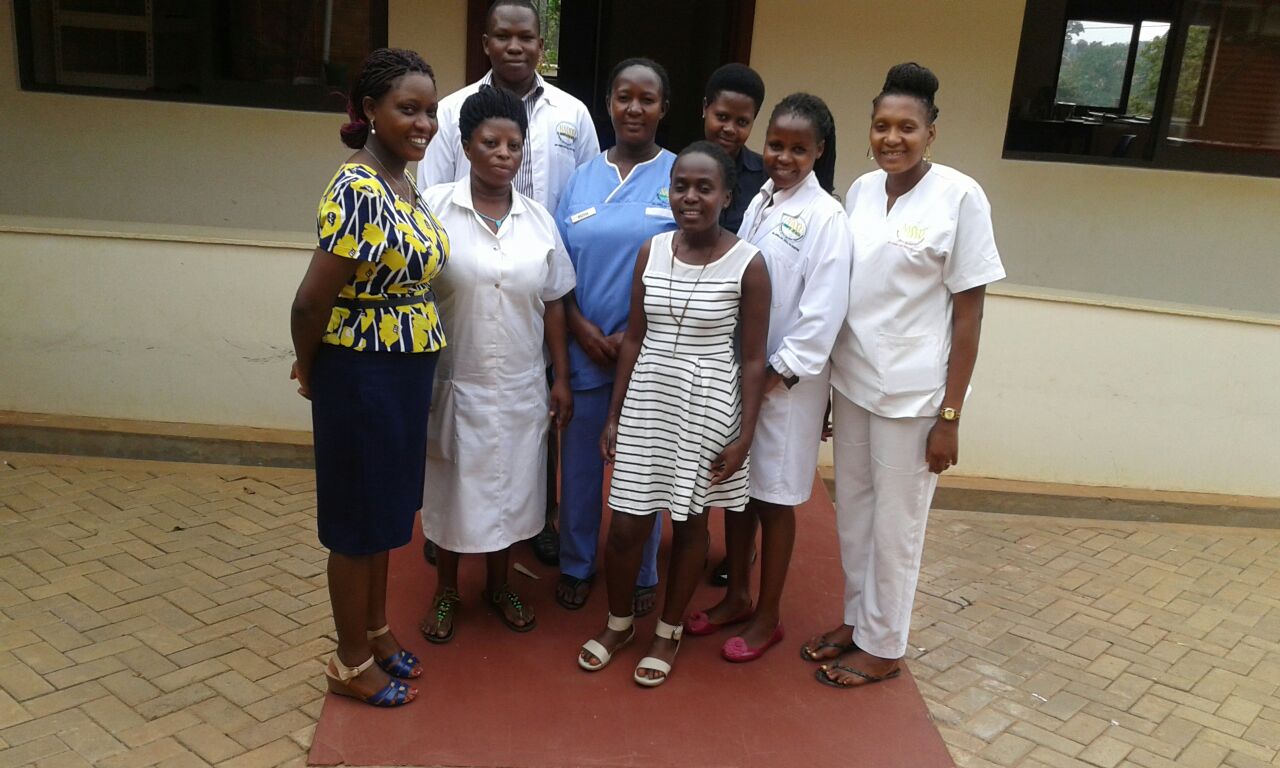 Typically the amount that is given in loan is never more than three times the capital the applican has on hand. The repayment starts after four weeks, leaving a small percentage for the increase of the share capital. Within three months, the debt is fully repaid. In granting a loan the promoter group enquires about the type of business that applicants intend to start, giving advice and accompanying them in their first steps. Over time, a group of experts in management has been formed that can also offer advice on managing, marketing and sustainability. One person asked for the loan to make handcrafted bags, another young person to buy a motorcycle he could rent out and also drive for pay, with a second loan and the sale of the old bike, he bought a more efficient one. He is now in charge of buying and selling used motorbikes, with help of two young men whom he hired. A member of the community has invested the loan in the purchase of sesame plants that are sold for various food uses. He too has been able to hire young people who help in delivery and removal of goods, thus facilitating things for manufacturers. With this loan activity, Rita continued, she was also able to create a fully registered company in charge of stationary and office supplies. After having used up the first loan, I got another to expand the business with online money transfers. Currently, I have four centres that have hired 4 young women, 3 of whom are single mothers.” A motorbike, small house, some garlic and sesame seeds . . . small signs, Pope Francis called them, in his speech to the EoC, seeds of change: “Change in the order of the spirit and therefore of life are not linked to big numbers. The little flock, the lamp, the coin, a ring, a pearl, some salt, leaven: these are the images of the Kingdom that we find in the Gospel. It doesn’t take many people to change our history, our life.” (Vatican City, February 4, 2017)
Typically the amount that is given in loan is never more than three times the capital the applican has on hand. The repayment starts after four weeks, leaving a small percentage for the increase of the share capital. Within three months, the debt is fully repaid. In granting a loan the promoter group enquires about the type of business that applicants intend to start, giving advice and accompanying them in their first steps. Over time, a group of experts in management has been formed that can also offer advice on managing, marketing and sustainability. One person asked for the loan to make handcrafted bags, another young person to buy a motorcycle he could rent out and also drive for pay, with a second loan and the sale of the old bike, he bought a more efficient one. He is now in charge of buying and selling used motorbikes, with help of two young men whom he hired. A member of the community has invested the loan in the purchase of sesame plants that are sold for various food uses. He too has been able to hire young people who help in delivery and removal of goods, thus facilitating things for manufacturers. With this loan activity, Rita continued, she was also able to create a fully registered company in charge of stationary and office supplies. After having used up the first loan, I got another to expand the business with online money transfers. Currently, I have four centres that have hired 4 young women, 3 of whom are single mothers.” A motorbike, small house, some garlic and sesame seeds . . . small signs, Pope Francis called them, in his speech to the EoC, seeds of change: “Change in the order of the spirit and therefore of life are not linked to big numbers. The little flock, the lamp, the coin, a ring, a pearl, some salt, leaven: these are the images of the Kingdom that we find in the Gospel. It doesn’t take many people to change our history, our life.” (Vatican City, February 4, 2017)
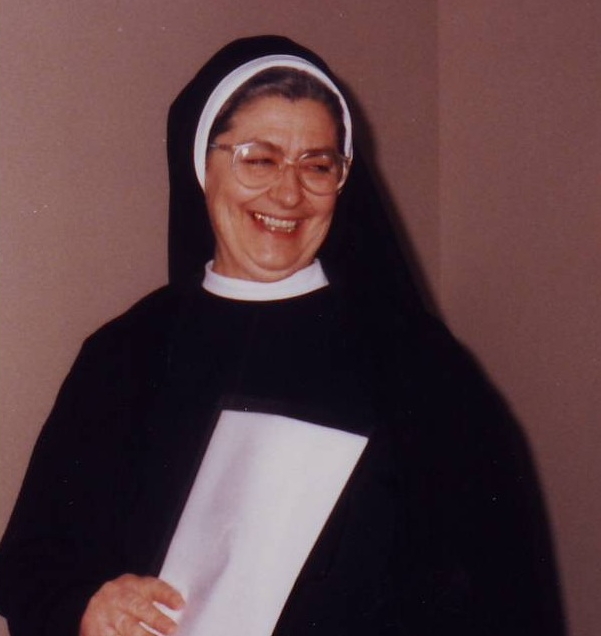
Feb 19, 2017 | Non categorizzato
 Born in a prestigious family in Rome, the institute chosen for her education was the Holy Spirit Institute run by the Daughters of the Immaculate Conception. In the institute she personally knew the foundress, now Blessed, and soon she felt the desire to give herself totally to God. Her family did not accept her choice, and after she escaped to go to the novitiate twice, she was forced to return home. Then due to her firm decision, she managed to convince her parents and make her dream come true. At the conclusion of her training in Northern Italy, she returned to Rome to teach in the school she had attended as a child and adolescent. Jovial and playful, Sr. Leopolda was able to conquer her students and with her smart remarks managed to downplay even the most complicated situations. In the 1970s she came across the spirituality of the Focolare and in it, discovered a sign of the times for the Church. Fascinated by the vision of Chiara Lubich who considered every charism a gift of love for the others, she felt the urge to create a current of communion among consecrated women of various religious families. Due to her moral and spiritual gifts, vast culture, and the great capacity to enhance the importance of people, in 1983 she was asked to guide the Congregation for 12 years. She personally met the founder of the Focolare, who in 1989 asked her to lead the Movement of the Religious at international levels, and promote communion among the Mother Generals who appreciated the spirituality of unity. Mother Leopolda accepted Chiara’s invitation with joy and responsibility, and wove a tight network of religious bound by the spirit of communion. She programmed and prepared annual meetings for consecrated women and mother generals. When her mandate to guide her congregation ended, she again took up her commitment in the educational field. The parents of her students considered her, “the most gentle and nicest Director of all the schools in the world.” When she fell ill, she was ready to say her “yes” to the God she had followed since her youth. She let Him guide her by the hand, offering all for the Church, her congregation, and the consecrated women she had met in life. In the more difficult moments she took comfort in the spiritual writings of Chiara, surrounded by her co-religious and the focolarine who were by her side up to the end. The doctors and staff of the hospital were struck by her testimony of serenity and total abandonment to God. Sr. Leopolda passed away on 1 January 2017, at the age of 87. The Focolare Movement remembers her with immense gratitude for her life spent entirely to diffuse among the religious, the spirit of communion that arises from the Charism of Unity.
Born in a prestigious family in Rome, the institute chosen for her education was the Holy Spirit Institute run by the Daughters of the Immaculate Conception. In the institute she personally knew the foundress, now Blessed, and soon she felt the desire to give herself totally to God. Her family did not accept her choice, and after she escaped to go to the novitiate twice, she was forced to return home. Then due to her firm decision, she managed to convince her parents and make her dream come true. At the conclusion of her training in Northern Italy, she returned to Rome to teach in the school she had attended as a child and adolescent. Jovial and playful, Sr. Leopolda was able to conquer her students and with her smart remarks managed to downplay even the most complicated situations. In the 1970s she came across the spirituality of the Focolare and in it, discovered a sign of the times for the Church. Fascinated by the vision of Chiara Lubich who considered every charism a gift of love for the others, she felt the urge to create a current of communion among consecrated women of various religious families. Due to her moral and spiritual gifts, vast culture, and the great capacity to enhance the importance of people, in 1983 she was asked to guide the Congregation for 12 years. She personally met the founder of the Focolare, who in 1989 asked her to lead the Movement of the Religious at international levels, and promote communion among the Mother Generals who appreciated the spirituality of unity. Mother Leopolda accepted Chiara’s invitation with joy and responsibility, and wove a tight network of religious bound by the spirit of communion. She programmed and prepared annual meetings for consecrated women and mother generals. When her mandate to guide her congregation ended, she again took up her commitment in the educational field. The parents of her students considered her, “the most gentle and nicest Director of all the schools in the world.” When she fell ill, she was ready to say her “yes” to the God she had followed since her youth. She let Him guide her by the hand, offering all for the Church, her congregation, and the consecrated women she had met in life. In the more difficult moments she took comfort in the spiritual writings of Chiara, surrounded by her co-religious and the focolarine who were by her side up to the end. The doctors and staff of the hospital were struck by her testimony of serenity and total abandonment to God. Sr. Leopolda passed away on 1 January 2017, at the age of 87. The Focolare Movement remembers her with immense gratitude for her life spent entirely to diffuse among the religious, the spirit of communion that arises from the Charism of Unity.
Feb 18, 2017 | Non categorizzato
https://vimeo.com/204141968
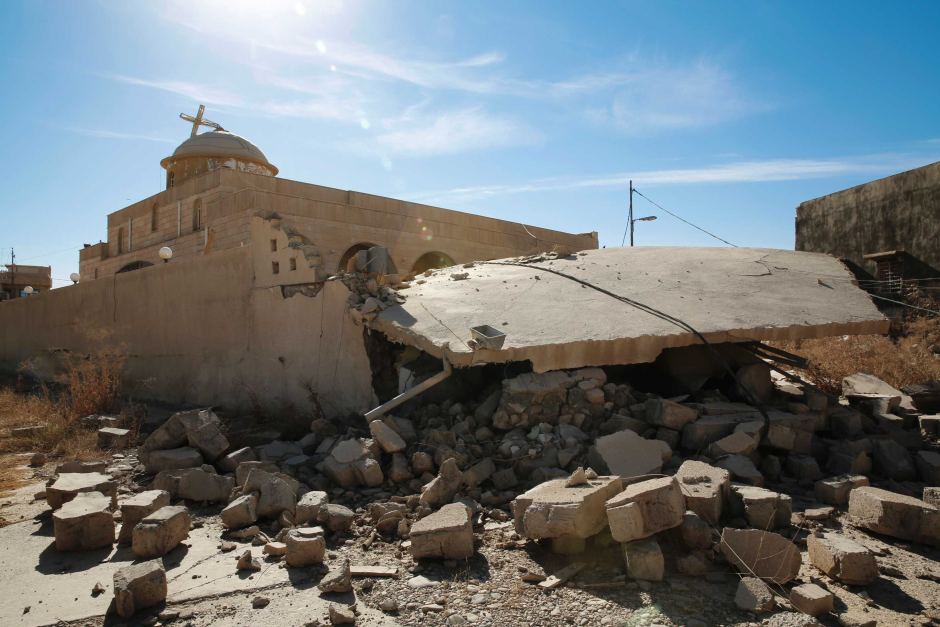
Feb 17, 2017 | Non categorizzato
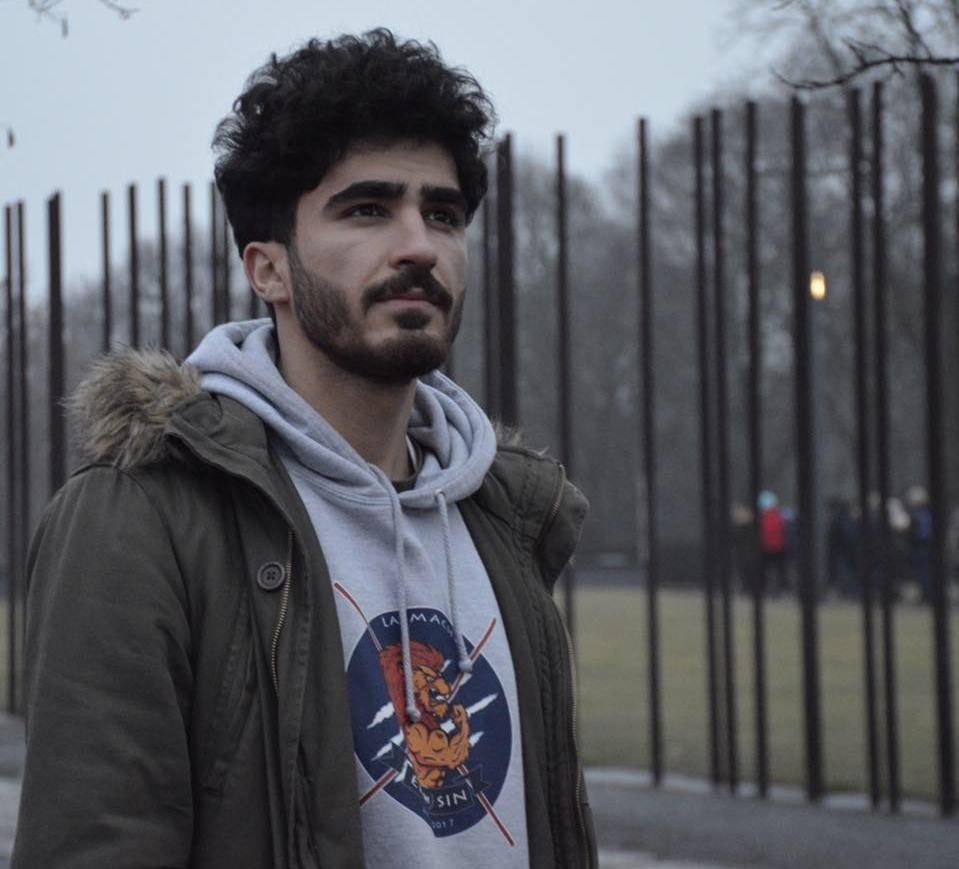 Up until the age of 18 I lived a normal life between house, school, sport, parish and my dreams. But one day, after the withdrawal of the Kurdish army, the resistance didn’t last long and my city of Qaraqosh fell. The so-called Islamic State (ISIS) took over and everything fell apart. Occupied for two years by the black flags of ISIS my birthplace was named the capital of ISIS for the Nineveh Plains. Qaraqosh had been the most important Christian city in Iraq with more than sixty thousand inhabitants. And even though it was liberated in October 2016, it was now a ghost town. But let’s go back a bit. On August 6, 2014 we had to leave our home without even packing our bags, only with the clothes on our back. We had been put in front of a choice: become Muslim, pay a bribe or have our heads cut off. We were fortunate to stay alive! From then on it was a hard adventure for us. And inside me there were mixed feelings of anger, resignation and exasperation, to the point that I even wondered how God could allow us to live such a hard trial. But it was an important life lesson that led me, not without effort, to then make a great discovery.
Up until the age of 18 I lived a normal life between house, school, sport, parish and my dreams. But one day, after the withdrawal of the Kurdish army, the resistance didn’t last long and my city of Qaraqosh fell. The so-called Islamic State (ISIS) took over and everything fell apart. Occupied for two years by the black flags of ISIS my birthplace was named the capital of ISIS for the Nineveh Plains. Qaraqosh had been the most important Christian city in Iraq with more than sixty thousand inhabitants. And even though it was liberated in October 2016, it was now a ghost town. But let’s go back a bit. On August 6, 2014 we had to leave our home without even packing our bags, only with the clothes on our back. We had been put in front of a choice: become Muslim, pay a bribe or have our heads cut off. We were fortunate to stay alive! From then on it was a hard adventure for us. And inside me there were mixed feelings of anger, resignation and exasperation, to the point that I even wondered how God could allow us to live such a hard trial. But it was an important life lesson that led me, not without effort, to then make a great discovery.  We started out in the direction of Iraqi Kurdistan together with a crowd of refugees who were moving on foot.. I can still see their tears, the soldiers, people sleeping along the road . . . a road to Erbil that usually takes a half hour, now, due to the road blocks and in spite of the fact that we were lucky enough to have a vehicle, took us 12 hours. We went towards Dohuk where we spent about 2 months. It was a painful period that we lived through in the hope of returning home. In those difficult moments, I realized that if I stayed close in my own suffering, nothing would change and I wouldn’t move on. So I decided to live the present moment, deciding to try to bring a smile to the face of the neighbour beside me, to try to bring some change in that way in spite of everything. Near me were people of the Yazidi religion who were more needy than us. Their people had been slaughtered by ISIS, because they didn’t have the means to escape: men killed, women raped and sold. The ones who did manage to escape were in a pitiful state. I lived along with them and tried to forget my own wounds to console them. After the years of exile, my parents had decided to go to France, because that country had extended its hand. It was a hard decision: to stay in our own land with an uncertain future, or accept our exile and begin our life again in a new country that had a different culture. We were well aware of the problems that were awaiting us beginning with the language. We arrived in France on October 26, 2014. At first it wasn’t easy, but we never felt abandoned. Someone took care of us and cleared our path. His unseen hand dried our tears and lightened our pain. Yes, it was Jesus who died for each one of us! How could we respond to His love? Now that this painful adventure has led me to discover that God is Love, that it is He who gives meaning to my life. Now, I want to build peace starting from the little things.
We started out in the direction of Iraqi Kurdistan together with a crowd of refugees who were moving on foot.. I can still see their tears, the soldiers, people sleeping along the road . . . a road to Erbil that usually takes a half hour, now, due to the road blocks and in spite of the fact that we were lucky enough to have a vehicle, took us 12 hours. We went towards Dohuk where we spent about 2 months. It was a painful period that we lived through in the hope of returning home. In those difficult moments, I realized that if I stayed close in my own suffering, nothing would change and I wouldn’t move on. So I decided to live the present moment, deciding to try to bring a smile to the face of the neighbour beside me, to try to bring some change in that way in spite of everything. Near me were people of the Yazidi religion who were more needy than us. Their people had been slaughtered by ISIS, because they didn’t have the means to escape: men killed, women raped and sold. The ones who did manage to escape were in a pitiful state. I lived along with them and tried to forget my own wounds to console them. After the years of exile, my parents had decided to go to France, because that country had extended its hand. It was a hard decision: to stay in our own land with an uncertain future, or accept our exile and begin our life again in a new country that had a different culture. We were well aware of the problems that were awaiting us beginning with the language. We arrived in France on October 26, 2014. At first it wasn’t easy, but we never felt abandoned. Someone took care of us and cleared our path. His unseen hand dried our tears and lightened our pain. Yes, it was Jesus who died for each one of us! How could we respond to His love? Now that this painful adventure has led me to discover that God is Love, that it is He who gives meaning to my life. Now, I want to build peace starting from the little things.
Feb 16, 2017 | Non categorizzato
https://vimeo.com/204142200
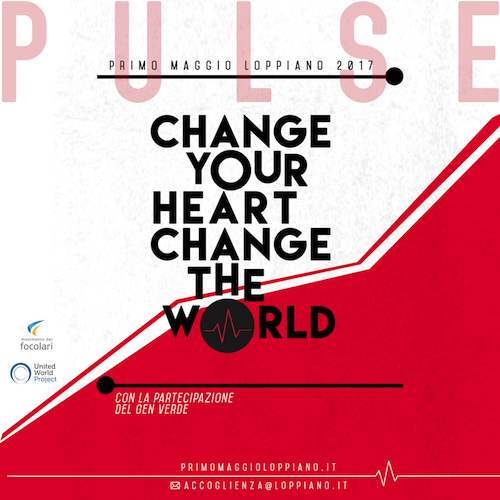
Feb 15, 2017 | Non categorizzato
 The worldwide appointment which inaugurates this year’s edition of United World Week is an event whereby young people from over 40 nations come together in unity in order to have the finger on the pulse on humanitarian issues. The program includes choreographic expressions, life experiences and spaces for dialogue on politics, economy, art, religion, culture, social commitment for peace. 1st MAY EVENT PROGRAM 10.00 am -3.15 pm – Welcome and start of program
The worldwide appointment which inaugurates this year’s edition of United World Week is an event whereby young people from over 40 nations come together in unity in order to have the finger on the pulse on humanitarian issues. The program includes choreographic expressions, life experiences and spaces for dialogue on politics, economy, art, religion, culture, social commitment for peace. 1st MAY EVENT PROGRAM 10.00 am -3.15 pm – Welcome and start of program
Workshop: Peace and … Religion – Economy – Politics – Art – Education – Nature
3.30 – 4.30 pm – Many pulses in the one world: stories of peace 4.45 pm – Explosion of peace: music4peace Information and bookings: www.primomaggioloppiano.it FB primomaggioloppiano https://www.facebook.com/primomaggioloppiano/videos/1391995820874604/
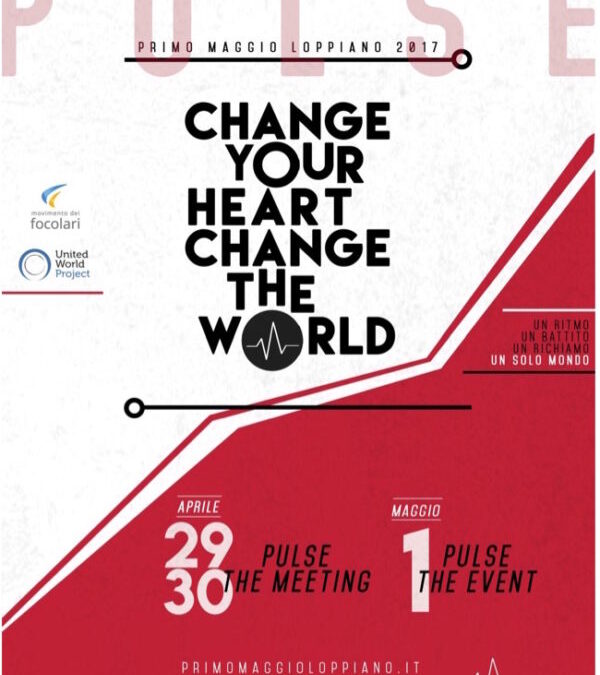
Feb 15, 2017 | Non categorizzato
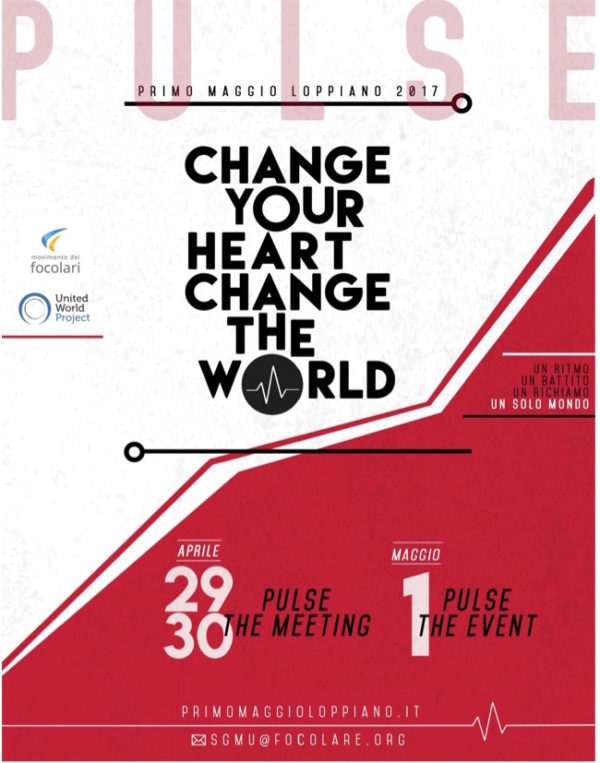 For over 20 years, United World Week has been an event which gathers young people from all over the world who, through a variety actions, public meetings, conferences and cultural debates, commit themselves to having an influence on public opinion in the host country, and in together giving witness that a united world is possible, they leave a tangible sign of this unity in the cities and institutions which took part. This year the 1st May event will be launched from Loppiano and it will be preceded by the international meeting for Youth for a United World. Program of Youth for a United World Meeting (29 – 30 April) 2 days dedicated to meetings, reflections, learning, assimilating, envisaging a new world where peace is the universal law 800 young people from around the world who are part of Youth for a United World; 3 workshops dedicated to welcoming and integration, social commitment, peace expressed through art; 4 forums focussed on: Peace and religious traditions; Economics and Politics; Education to Peace; Peace and Nature. 1st May Program 10.00 am – 3.15 pm – Welcome and start of program Workshop: Peace and … Religion – Economy – Politics – Art – Education – Nature 3.30 – 4.30 pm – Many pulse beats in the one world: Stories of Peace 4.45 pm – Explosion of peace: music4peace Information and bookings: www.primomaggioloppiano.it FB primomaggioloppiano
For over 20 years, United World Week has been an event which gathers young people from all over the world who, through a variety actions, public meetings, conferences and cultural debates, commit themselves to having an influence on public opinion in the host country, and in together giving witness that a united world is possible, they leave a tangible sign of this unity in the cities and institutions which took part. This year the 1st May event will be launched from Loppiano and it will be preceded by the international meeting for Youth for a United World. Program of Youth for a United World Meeting (29 – 30 April) 2 days dedicated to meetings, reflections, learning, assimilating, envisaging a new world where peace is the universal law 800 young people from around the world who are part of Youth for a United World; 3 workshops dedicated to welcoming and integration, social commitment, peace expressed through art; 4 forums focussed on: Peace and religious traditions; Economics and Politics; Education to Peace; Peace and Nature. 1st May Program 10.00 am – 3.15 pm – Welcome and start of program Workshop: Peace and … Religion – Economy – Politics – Art – Education – Nature 3.30 – 4.30 pm – Many pulse beats in the one world: Stories of Peace 4.45 pm – Explosion of peace: music4peace Information and bookings: www.primomaggioloppiano.it FB primomaggioloppiano

Feb 15, 2017 | Non categorizzato
 The meeting aims to be a voyage of discovery whereby ideas are explored for changing the course of history. In their quest to be a node in the worldwide network, Youth for a United World are committed to working alongside other associations and groups. The actions of YFUW, referred to as “fragments of fraternity”, are collected up in the United World Project, which since 2012 has been connecting up people from all latitudes who have chosen universal brotherhood as a way of life. The program of the meeting which precedes United World Week (1-10 May 2017) which will kickstart with the 1st May event 2 days dedicated to meetings, reflections, learning, assimilating, envisaging a new world where peace is the universal law 800 young people from around the world who are part of Youth for a United World; 3 workshops dedicated to welcoming and integration, social commitment, peace expressed through art; 4 forums focussed on: Peace and religious traditions; Economics and Politics; Education to Peace; Peace and Nature. 29 April 3.00 pm – Welcome: Peace in the world 5.00 – Peace in our cities and nations 6.45 – Group meetings 9.15 – Evening program 30 April 9.15 am – Peace within us 10.45 – Dialogue 12.30 – Prayer 3.00 pm – Workshop and forum 6.45 – Group meetings 9.15 – Evening program Partner organisations: Sophia University Institute, “Non Dalla Guerra”, “Nuovi Orizzonti”, “Rondine”, Action for a United World, “Italia che cambia”, Economy of Communion, Living Peace, EcoOne, DanceLab, La Pira Centre (Florence), Moslem Youth, Assisi Group, “Barbiana”. More information: www.primomaggioloppiano.it – FB primomaggioloppiano Video clip: https://www.facebook.com/primomaggioloppiano/videos/1347355652005288/
The meeting aims to be a voyage of discovery whereby ideas are explored for changing the course of history. In their quest to be a node in the worldwide network, Youth for a United World are committed to working alongside other associations and groups. The actions of YFUW, referred to as “fragments of fraternity”, are collected up in the United World Project, which since 2012 has been connecting up people from all latitudes who have chosen universal brotherhood as a way of life. The program of the meeting which precedes United World Week (1-10 May 2017) which will kickstart with the 1st May event 2 days dedicated to meetings, reflections, learning, assimilating, envisaging a new world where peace is the universal law 800 young people from around the world who are part of Youth for a United World; 3 workshops dedicated to welcoming and integration, social commitment, peace expressed through art; 4 forums focussed on: Peace and religious traditions; Economics and Politics; Education to Peace; Peace and Nature. 29 April 3.00 pm – Welcome: Peace in the world 5.00 – Peace in our cities and nations 6.45 – Group meetings 9.15 – Evening program 30 April 9.15 am – Peace within us 10.45 – Dialogue 12.30 – Prayer 3.00 pm – Workshop and forum 6.45 – Group meetings 9.15 – Evening program Partner organisations: Sophia University Institute, “Non Dalla Guerra”, “Nuovi Orizzonti”, “Rondine”, Action for a United World, “Italia che cambia”, Economy of Communion, Living Peace, EcoOne, DanceLab, La Pira Centre (Florence), Moslem Youth, Assisi Group, “Barbiana”. More information: www.primomaggioloppiano.it – FB primomaggioloppiano Video clip: https://www.facebook.com/primomaggioloppiano/videos/1347355652005288/
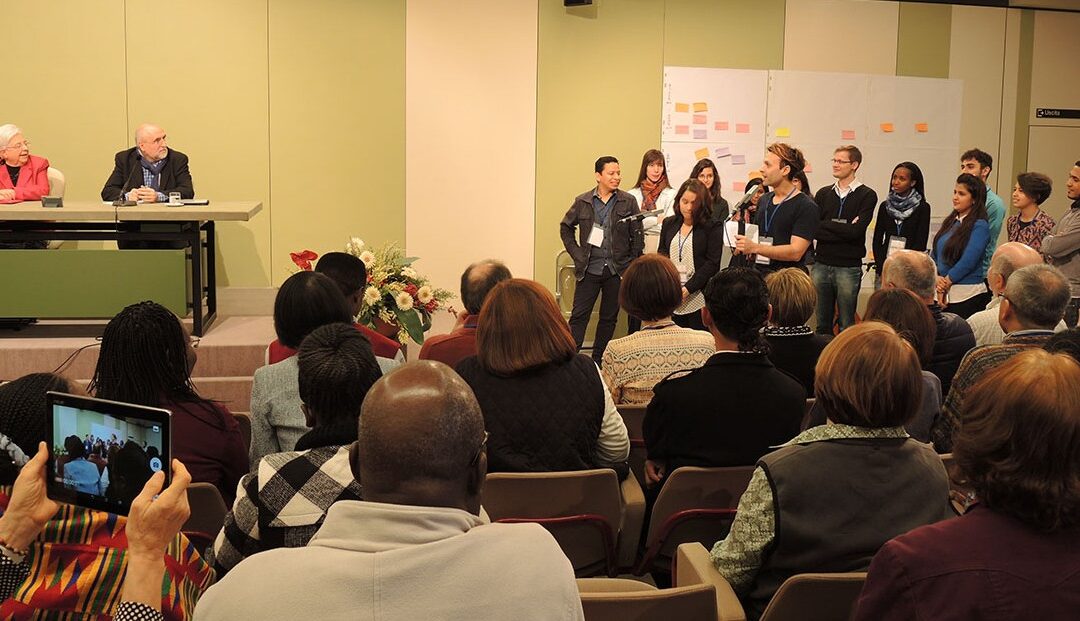
Feb 15, 2017 | Non categorizzato
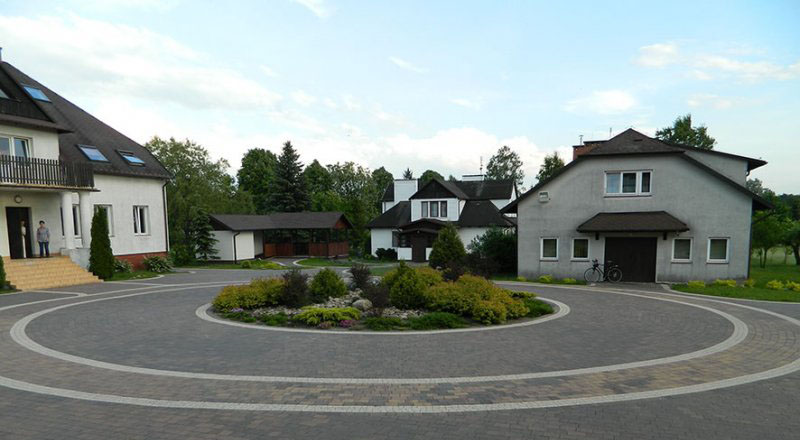 Cittadelle, literally “citadels”, but translated here as “Little Towns,” are small-scale models of society, with sharing among generations, schools, offices, businesses and centers of art. But the first rule of these communities is mutual love among their members. They are cities on a hill, cities of the future, ideal cities – only that they’re real. When you visit them you see concrete and tangible examples of a society healed of rivalry, competition, war, lawlessness and hatred. They are living incarnations of the ideal of a united world, “luminous examples suspended in time” of human communities that look towards a future of peace. Utopian? It wouldn’t seem so, walking the corridors of the Focolare’s international center in Castel Gandolfo, Italy, where a hundred young people and adults from little cities around the world got together over the week of February 12th. It was the first international gathering of these model cities.
Cittadelle, literally “citadels”, but translated here as “Little Towns,” are small-scale models of society, with sharing among generations, schools, offices, businesses and centers of art. But the first rule of these communities is mutual love among their members. They are cities on a hill, cities of the future, ideal cities – only that they’re real. When you visit them you see concrete and tangible examples of a society healed of rivalry, competition, war, lawlessness and hatred. They are living incarnations of the ideal of a united world, “luminous examples suspended in time” of human communities that look towards a future of peace. Utopian? It wouldn’t seem so, walking the corridors of the Focolare’s international center in Castel Gandolfo, Italy, where a hundred young people and adults from little cities around the world got together over the week of February 12th. It was the first international gathering of these model cities. 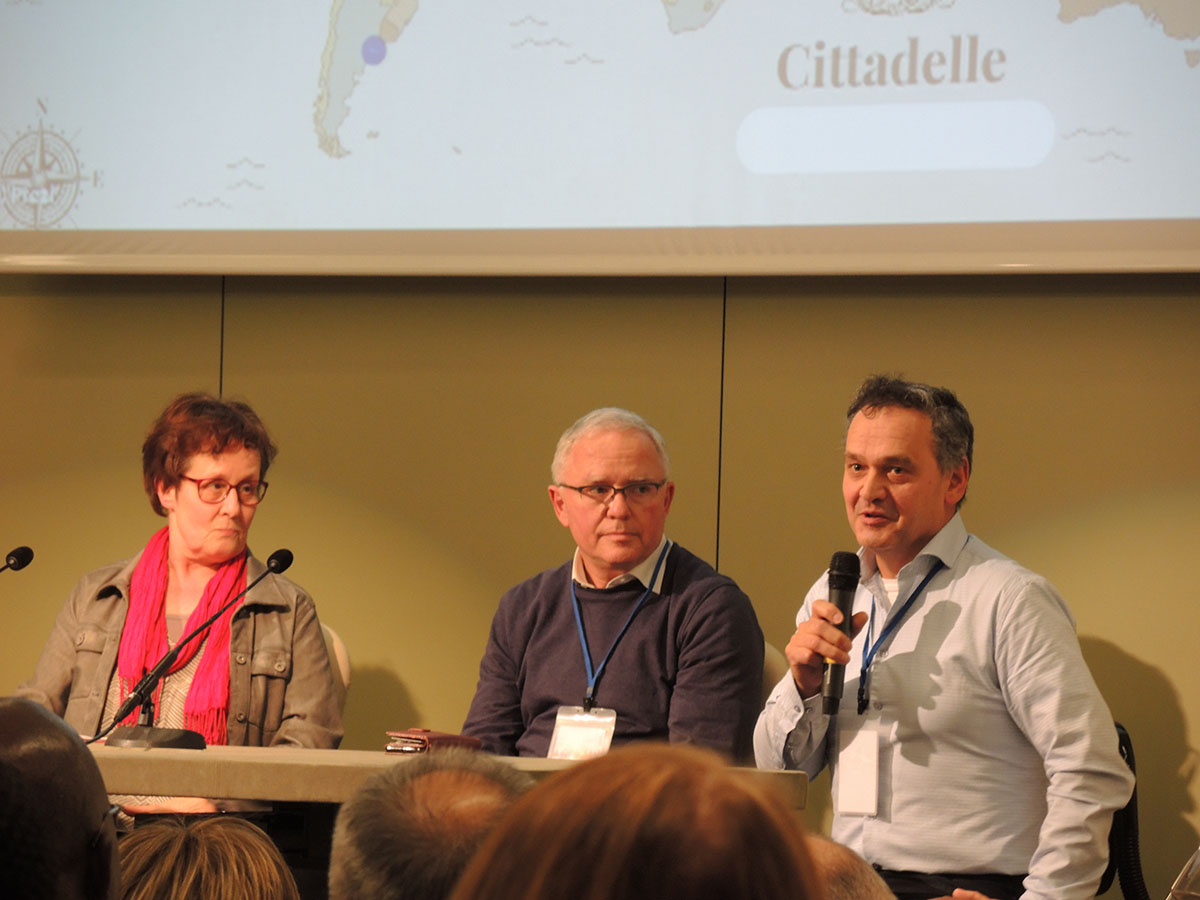 Each has its own story, its own personality that was shaped by the culture and social context in which it grew, with its own number of members, challenges and developments. For example, the Focolare Moviment‘s little town in Thailand is called “Golden Rule” because of a law that is found in every culture and religious tradition: Do unto others as you would have them do unto you. But they all share in common the same inspirational spark, the same strand of DNA that makes them all places of witness, in which it is possible to experience what the world would be like if everyone lived the Gospel, places where God’s invisible presence seems to become visible to human eyes. The presentations were like a trip around the world: from “El Diamante” in Mexico to Tagytay in the Philippines; from Fontem in Cameroon to Curryhills in Ireland; from Ottmaring in Germany to “Faro“ in Croatia; from Hyde Park in the United States to Loppiano in Italy. Together they form a network across the map. Participants from around the world discussed common issues such as governance, organization, economic sustainability, relationship with the local environment and future plans. One emerging feature is the growing connection with the local environment, both on the professional level (such as the Preset-Participation Project, the Resilience and Employability through Sustainablity Project, and the Entrepreneurship and Training Project at the permanent Mariapolis in Argentina) and on the human and spiritual level through ecumenical and interreligious dialogue. Young people make important contributions, such as in the innovative management system at Marienkron, Holland
Each has its own story, its own personality that was shaped by the culture and social context in which it grew, with its own number of members, challenges and developments. For example, the Focolare Moviment‘s little town in Thailand is called “Golden Rule” because of a law that is found in every culture and religious tradition: Do unto others as you would have them do unto you. But they all share in common the same inspirational spark, the same strand of DNA that makes them all places of witness, in which it is possible to experience what the world would be like if everyone lived the Gospel, places where God’s invisible presence seems to become visible to human eyes. The presentations were like a trip around the world: from “El Diamante” in Mexico to Tagytay in the Philippines; from Fontem in Cameroon to Curryhills in Ireland; from Ottmaring in Germany to “Faro“ in Croatia; from Hyde Park in the United States to Loppiano in Italy. Together they form a network across the map. Participants from around the world discussed common issues such as governance, organization, economic sustainability, relationship with the local environment and future plans. One emerging feature is the growing connection with the local environment, both on the professional level (such as the Preset-Participation Project, the Resilience and Employability through Sustainablity Project, and the Entrepreneurship and Training Project at the permanent Mariapolis in Argentina) and on the human and spiritual level through ecumenical and interreligious dialogue. Young people make important contributions, such as in the innovative management system at Marienkron, Holland 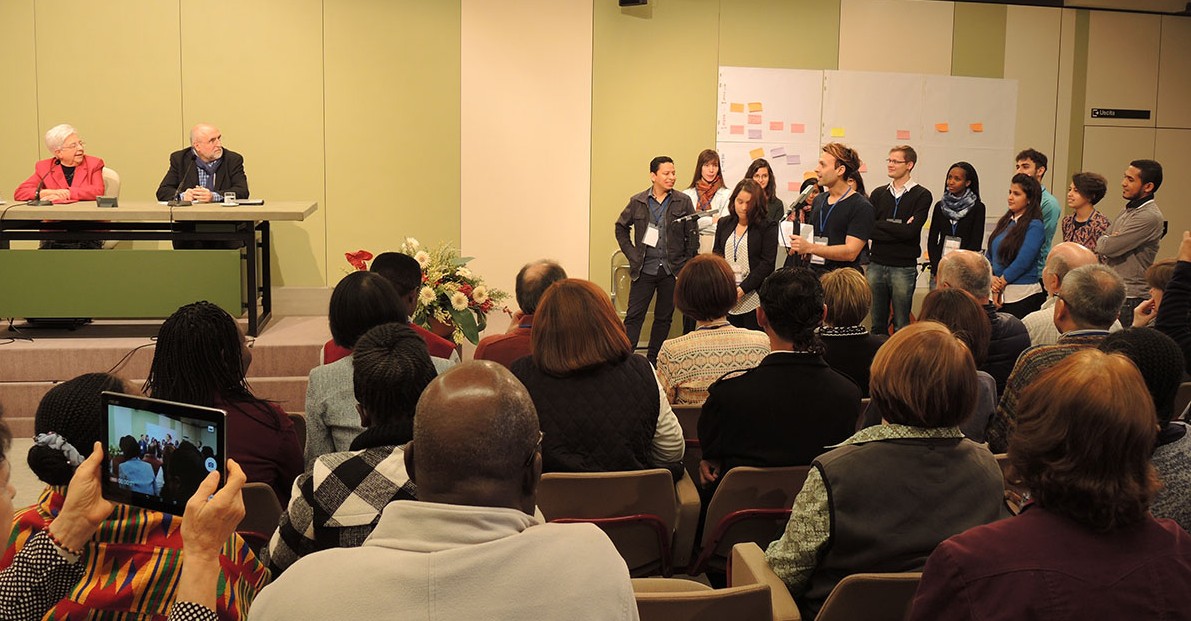 Clara Zonlini and Vit Valtr, who coordinate the Focolare’s permanent Mariapolises around the world, underscored at the close of the week: “A key element for bringing these little cities ahead is an extended form of responsibility. . . . There aren’t any cliques: Each one is complete in itself, with its own identity. And even if some of them don’t have certain elements like schools or businesses, what really matters is the presence of Jesus among the members.” What are the future prospects after such and intense and fruitful week together? Clara and Vit: “To return to the original identity of the Mariapolis (city of Mary), to give that specific witness, which is the witness to the whole Work of Mary,” taking part in ecumenical dialogue, interreligious dialogue, and dialogue with every person of goodwill within each local context. “There was also unanimity in the desire to be connected: each little city in sync with the respective Focolare region. These days together have shown the importance of reciprocity and how the experience of one can be of help to the other, often giving important insights into solutions to a possible problem.” So, it’s not a utopia; the place exists. Indeed, at least twenty-five places exist.
Clara Zonlini and Vit Valtr, who coordinate the Focolare’s permanent Mariapolises around the world, underscored at the close of the week: “A key element for bringing these little cities ahead is an extended form of responsibility. . . . There aren’t any cliques: Each one is complete in itself, with its own identity. And even if some of them don’t have certain elements like schools or businesses, what really matters is the presence of Jesus among the members.” What are the future prospects after such and intense and fruitful week together? Clara and Vit: “To return to the original identity of the Mariapolis (city of Mary), to give that specific witness, which is the witness to the whole Work of Mary,” taking part in ecumenical dialogue, interreligious dialogue, and dialogue with every person of goodwill within each local context. “There was also unanimity in the desire to be connected: each little city in sync with the respective Focolare region. These days together have shown the importance of reciprocity and how the experience of one can be of help to the other, often giving important insights into solutions to a possible problem.” So, it’s not a utopia; the place exists. Indeed, at least twenty-five places exist.
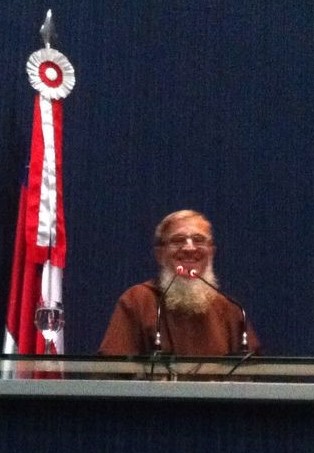
Feb 14, 2017 | Non categorizzato

On 10 February 2017 in the Amazonas Legislative Assembly Hall in Manaus, Brother Gino Alberati received the title of Amazonas citizen, a merited award for the 47 years of the mission spent for the people in Amazonas, Brazil. An untiring and authentic Capuchin, he lived all these years in the spirit of unity which characterises the Focolare Movement. Deputy José Ricardo Wending, a member of the group of politicians who promote the Political Movement for Unity (MPPU), inspired precisely by this movement had mainly conceived this important award. The award ceremony was simple and fraternal. The protocol rituals were set aside, overcome by the atmosphere of fraternity created amongst all those present. In his simple and unofficial speech, Brother Gino underlined his calling to fraternity, typical of his being a son of St. Francis of Assisi. He also transmitted the simplicity and depth of the charism of unity of Chiara Lubich, whom he had met when he was a young friar about to leave for Brazil. 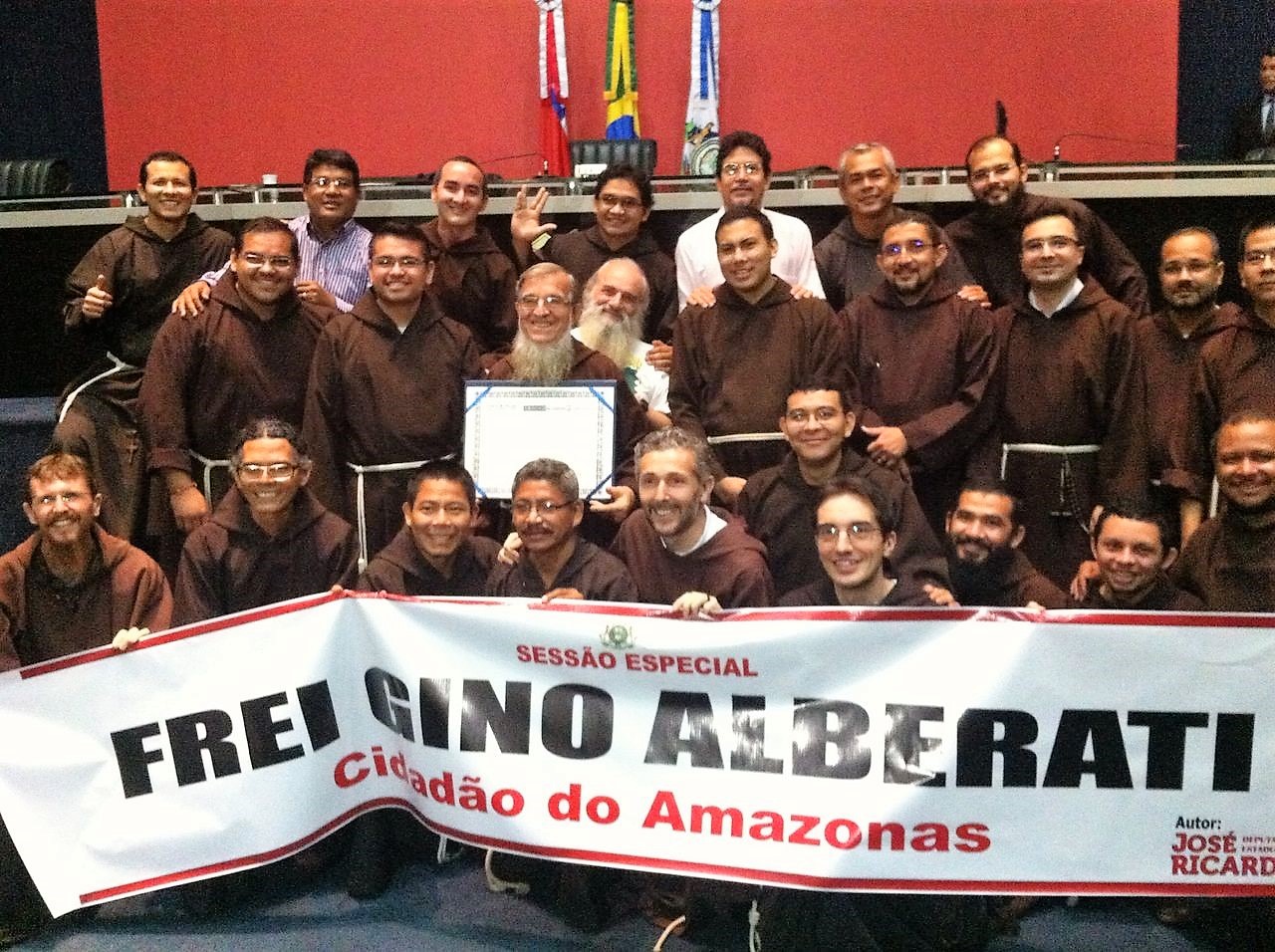 These 47 years passed in Brazil have confirmed what he said. His tenor voice, which never failed to resound in the midst of the Amazon forest, also echoed in this Assembly Hall, because he sang the Hail Mary, which moved all those present. Besides the civil and religious authorities, also a group of Capuchin brothers and some members of the Work of Mary attended the event. The various speeches that followed underlined the precious service that the missionaries rendered to the Church, not only in evangelisation but especially in human promotion and concrete love for others, especially in the fields of education and health, which are so fragile and jeopardized in these lands Source: Blog CROM
These 47 years passed in Brazil have confirmed what he said. His tenor voice, which never failed to resound in the midst of the Amazon forest, also echoed in this Assembly Hall, because he sang the Hail Mary, which moved all those present. Besides the civil and religious authorities, also a group of Capuchin brothers and some members of the Work of Mary attended the event. The various speeches that followed underlined the precious service that the missionaries rendered to the Church, not only in evangelisation but especially in human promotion and concrete love for others, especially in the fields of education and health, which are so fragile and jeopardized in these lands Source: Blog CROM

Feb 14, 2017 | Non categorizzato
 In the first months of marriage, happy and very much in love, everything seemed to go smoothly. But soon the tensions between me and my husband became more and more frequent and made me increasingly sad. I certainly made a lot of mistakes, but tried just the same to keep up the relationship, convinced that love would not end. We went on amid ups and downs. After five years we had a baby girl and then a boy. Our daughter was born with a congenital disease, and this meant many hospitalizations, even far from home. Also our son had weak health and was often also hospitalized. A delicate operation, however, resolved my daughter’s condition, but those had been very taxing years. My husband felt crushed by this situation and said he could no longer cope with all these problems. When I realised that he had fallen in love with my best friend, it was already too late to make him reverse his decisions. And so, after 13 years of marriage, I was left alone with two children of eight and five. I was so upset I no longer wished to live. I wasn’t afraid of death and with a powerful dose of drugs tried to commit suicide. But my plan failed and after 10 days in the hospital I was discharged. It was at this point that through the spirituality of the Focolare, I discovered God who is love. The Gospel had started to penetrate into my life, and I began to experience the joy of those who try to live it. The children suffered a lot due to our separation and I had quite a hard time also with them. But God never stopped guiding my life and placed along my way, people who helped me overcome the many problems I encountered, such as the burning desire to have someone by my side and the love of a man, or the desire to enjoy myself or simply just to cater to myself alone. And always, the light returned to illuminate my life, even when I had to face the most tragic experience for a parent: seeing my beloved daughter die in an accident at the age of 21. In that moment I was desperate with pain, but I asked God for the strength to repeat my “yes” to Him. And He did not leave me in desperation. I immediately felt his presence beside me. Ever since she had left us, I have received many signs of God’s love, and even if I cannot see her or hug her, I am at peace. Since she had wanted to become a teacher and was about to graduate, thanks to the generosity of many, a literacy project was created in the Ivory Coast, and adopted for some years also by the parish. Now the idea is that of building a school and the commitment is being brought ahead. God’s love manifests itself also when friends of my daughter share with me their experiences: inviting me to their graduation, coming to visit me, bringing me out to have a pizza together, asking me for advice and calling me “Second mom.” Currently my son still lives with me and I am happy to open my heart to the needs of others. When I find out about people from other cities who are hospitalised in the cancer hospital nearby, I do my best to stay by them, trying to be a small ray of that love God has for me. One day I found the strength to forgive my husband, and was able not to judge him. Since then I have felt free and liberated from the great weight oppressing me, and though it still has not completely disappeared, not even divorce will make me say that he is no longer my husband. I always remember what my daughter used to say: «Mom, your renunciation of marrying again will be dad’s salvation» and I am sure that these words will come true.
In the first months of marriage, happy and very much in love, everything seemed to go smoothly. But soon the tensions between me and my husband became more and more frequent and made me increasingly sad. I certainly made a lot of mistakes, but tried just the same to keep up the relationship, convinced that love would not end. We went on amid ups and downs. After five years we had a baby girl and then a boy. Our daughter was born with a congenital disease, and this meant many hospitalizations, even far from home. Also our son had weak health and was often also hospitalized. A delicate operation, however, resolved my daughter’s condition, but those had been very taxing years. My husband felt crushed by this situation and said he could no longer cope with all these problems. When I realised that he had fallen in love with my best friend, it was already too late to make him reverse his decisions. And so, after 13 years of marriage, I was left alone with two children of eight and five. I was so upset I no longer wished to live. I wasn’t afraid of death and with a powerful dose of drugs tried to commit suicide. But my plan failed and after 10 days in the hospital I was discharged. It was at this point that through the spirituality of the Focolare, I discovered God who is love. The Gospel had started to penetrate into my life, and I began to experience the joy of those who try to live it. The children suffered a lot due to our separation and I had quite a hard time also with them. But God never stopped guiding my life and placed along my way, people who helped me overcome the many problems I encountered, such as the burning desire to have someone by my side and the love of a man, or the desire to enjoy myself or simply just to cater to myself alone. And always, the light returned to illuminate my life, even when I had to face the most tragic experience for a parent: seeing my beloved daughter die in an accident at the age of 21. In that moment I was desperate with pain, but I asked God for the strength to repeat my “yes” to Him. And He did not leave me in desperation. I immediately felt his presence beside me. Ever since she had left us, I have received many signs of God’s love, and even if I cannot see her or hug her, I am at peace. Since she had wanted to become a teacher and was about to graduate, thanks to the generosity of many, a literacy project was created in the Ivory Coast, and adopted for some years also by the parish. Now the idea is that of building a school and the commitment is being brought ahead. God’s love manifests itself also when friends of my daughter share with me their experiences: inviting me to their graduation, coming to visit me, bringing me out to have a pizza together, asking me for advice and calling me “Second mom.” Currently my son still lives with me and I am happy to open my heart to the needs of others. When I find out about people from other cities who are hospitalised in the cancer hospital nearby, I do my best to stay by them, trying to be a small ray of that love God has for me. One day I found the strength to forgive my husband, and was able not to judge him. Since then I have felt free and liberated from the great weight oppressing me, and though it still has not completely disappeared, not even divorce will make me say that he is no longer my husband. I always remember what my daughter used to say: «Mom, your renunciation of marrying again will be dad’s salvation» and I am sure that these words will come true.







 As a child, he dreamt of being a pilot, but an attraction to the priesthood stuck with him from the time he was eleven. He was born on May 17, 1932 in Lisnice, the Province of Pisek in Southern Bohemia. From 1952 to 1953 he was a worker. In 1960, following his graduation, he worked as an archivist but soon abandoned that occupation to study theology. In 1968 he was ordained to the priesthood. During a visit to East Germany in the 1960s, he met a layman and some priests who were living the
As a child, he dreamt of being a pilot, but an attraction to the priesthood stuck with him from the time he was eleven. He was born on May 17, 1932 in Lisnice, the Province of Pisek in Southern Bohemia. From 1952 to 1953 he was a worker. In 1960, following his graduation, he worked as an archivist but soon abandoned that occupation to study theology. In 1968 he was ordained to the priesthood. During a visit to East Germany in the 1960s, he met a layman and some priests who were living the 























 While waiting to meet Pope Francis in Paul VI Hall the anticipation of the 1200 members of the Economy of Communion (EoC) was calmed by several testimonies from entrepreneurs including Clem Fritschi who began like this: “Mine is not the story of a successful man of business, but a love story. After finishing my studies in Switzerland I worked as a warehouseman in London, to learn English. That’s where I met Margherita. We fell in love and, since she’s from Turin, I decided to find work in Italy. Two years later we got married and had two children. All of a sudden the company I was working for decided to close down. Then a few colleagues and I put together our settlements in order to keep the place going.” That’s how Ridix began, a company that has been offering cutting-edge products on the Italian market in the field of precision engineering since 1969.
While waiting to meet Pope Francis in Paul VI Hall the anticipation of the 1200 members of the Economy of Communion (EoC) was calmed by several testimonies from entrepreneurs including Clem Fritschi who began like this: “Mine is not the story of a successful man of business, but a love story. After finishing my studies in Switzerland I worked as a warehouseman in London, to learn English. That’s where I met Margherita. We fell in love and, since she’s from Turin, I decided to find work in Italy. Two years later we got married and had two children. All of a sudden the company I was working for decided to close down. Then a few colleagues and I put together our settlements in order to keep the place going.” That’s how Ridix began, a company that has been offering cutting-edge products on the Italian market in the field of precision engineering since 1969. 










 Immersed in this metropolis, the
Immersed in this metropolis, the 

 Federico: An Italian and Uruguayan: what are the chances? Yet we happened to meet, seven years ago, at a Latin American center in Rome. I was there to give a hand running things, she to speak her language a bit. Our eyes met and we started to build a home together. Economic constraints, however, pushed us to leave the big city for my parents’ small village, especially because one of our greatest wishes was about to come true: our son was on the way. There was much happiness, but the stress of the birth and the rapid life changes didn’t give us any time to breathe. Laura: As if that were not enough, my mother, who was taking care of my invalid father and my little brother, became seriously ill. I needed to immediately go to
Federico: An Italian and Uruguayan: what are the chances? Yet we happened to meet, seven years ago, at a Latin American center in Rome. I was there to give a hand running things, she to speak her language a bit. Our eyes met and we started to build a home together. Economic constraints, however, pushed us to leave the big city for my parents’ small village, especially because one of our greatest wishes was about to come true: our son was on the way. There was much happiness, but the stress of the birth and the rapid life changes didn’t give us any time to breathe. Laura: As if that were not enough, my mother, who was taking care of my invalid father and my little brother, became seriously ill. I needed to immediately go to 

 How important was it for you to meet
How important was it for you to meet 

 Last January, a
Last January, a  Sikhs and members of the Focolare recently took part together in an interreligious conference. Bhai Sahib Ji presented a project for promoting forgiveness and reconciliation. The event was an opportunity to strengthen friendships between members of different religions and beliefs, who now continue to stay in contact.
Sikhs and members of the Focolare recently took part together in an interreligious conference. Bhai Sahib Ji presented a project for promoting forgiveness and reconciliation. The event was an opportunity to strengthen friendships between members of different religions and beliefs, who now continue to stay in contact. 


 For three days, the school completely changed. Moments of reflection and going in depth were joined with tangible experiences. Divided into groups, students of different ages lived side by side with teachers and those attending, sharing the various moments of the day: cooking, washing dishes, tidying up the meeting hall, cleaning toilets and the school playground. For some it was their first time; they had never done anything like it. Even the school’s principal washed dishes! A large book was prepared for the students to capture their comments. It tells of three days of true living. The retreat changed their lives, they say. “The unity we lived during those days struck us from the very first moment that you set foot in our school.” It was a unity that the words of
For three days, the school completely changed. Moments of reflection and going in depth were joined with tangible experiences. Divided into groups, students of different ages lived side by side with teachers and those attending, sharing the various moments of the day: cooking, washing dishes, tidying up the meeting hall, cleaning toilets and the school playground. For some it was their first time; they had never done anything like it. Even the school’s principal washed dishes! A large book was prepared for the students to capture their comments. It tells of three days of true living. The retreat changed their lives, they say. “The unity we lived during those days struck us from the very first moment that you set foot in our school.” It was a unity that the words of 



 “We find ourselves here in countries of the United Arab Emirates due to work,” Claudia says. “Our workplaces are often strongly competitive, and it is difficult to integrate because there is little time for relationships that are simple and authentic. “The Catholic Church in Dubai is young, lively, joyous and not overly complicated. More than 2,000 faithful participate in and focus on daily mass – mostly from the Philippines, Pakistan and India. “Our local Focolare community is also made up mostly of migrants, and we try to give witness to the Gospel in the circles we move through, bringing love and unity around us. There are many who know about and live the
“We find ourselves here in countries of the United Arab Emirates due to work,” Claudia says. “Our workplaces are often strongly competitive, and it is difficult to integrate because there is little time for relationships that are simple and authentic. “The Catholic Church in Dubai is young, lively, joyous and not overly complicated. More than 2,000 faithful participate in and focus on daily mass – mostly from the Philippines, Pakistan and India. “Our local Focolare community is also made up mostly of migrants, and we try to give witness to the Gospel in the circles we move through, bringing love and unity around us. There are many who know about and live the 

 Ugandan business woman Rita Najjingo was among the 1,200 business owners and researchers of economy who were welcomed by Pope Francis on February 4, twenty five years from the start of the
Ugandan business woman Rita Najjingo was among the 1,200 business owners and researchers of economy who were welcomed by Pope Francis on February 4, twenty five years from the start of the 












